Frequent persons on Romania's street signs
countries
565 names / 5089 streets
Mihai Eminescu
 116
Mihai Eminescu was a Romanian Romantic poet from Moldavia, novelist, and journalist, generally regarded as the most famous and influential Romanian poet. Eminescu was an active member of the Junimea...
116
Mihai Eminescu was a Romanian Romantic poet from Moldavia, novelist, and journalist, generally regarded as the most famous and influential Romanian poet. Eminescu was an active member of the Junimea...
Tudor Vladimirescu
 114
Tudor Vladimirescu was a Romanian revolutionary hero, the leader of the Wallachian uprising of 1821 and of the Pandur militia. He is also known as Tudor din Vladimiri or, occasionally, as Domnul...
114
Tudor Vladimirescu was a Romanian revolutionary hero, the leader of the Wallachian uprising of 1821 and of the Pandur militia. He is also known as Tudor din Vladimiri or, occasionally, as Domnul...
Michael the Brave
 105
Michael the Brave, born as Mihai Pătrașcu, was the Prince of Wallachia, Prince of Moldavia (1600) and de facto ruler of Transylvania (1599–1600). He is considered one of Romania's greatest national...
105
Michael the Brave, born as Mihai Pătrașcu, was the Prince of Wallachia, Prince of Moldavia (1600) and de facto ruler of Transylvania (1599–1600). He is considered one of Romania's greatest national...
Stephen the Great
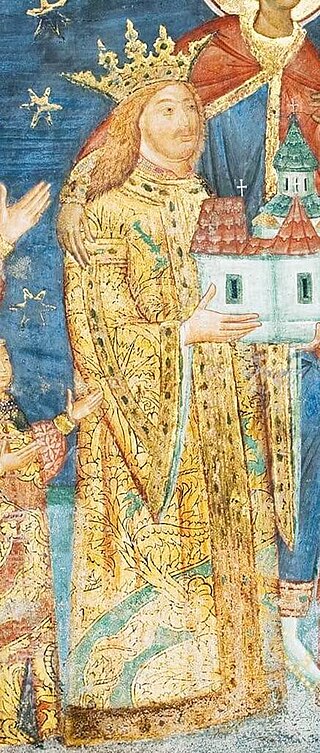 96
Stephen III, commonly known as Stephen the Great ; died on 2 July 1504), was Voivode of Moldavia from 1457 to 1504. He was the son of and co-ruler with Bogdan II, who was murdered in 1451 in a...
96
Stephen III, commonly known as Stephen the Great ; died on 2 July 1504), was Voivode of Moldavia from 1457 to 1504. He was the son of and co-ruler with Bogdan II, who was murdered in 1451 in a...
Alexandru Ioan Cuza
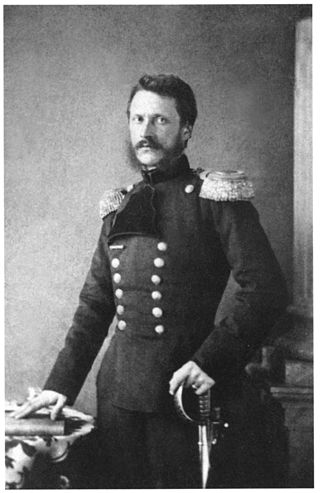 95
Alexandru Ioan Cuza was the first domnitor (ruler) of the Romanian Principalities through his double election as prince of Moldavia on 5 January 1859 and prince of Wallachia on 24 January 1859, which...
95
Alexandru Ioan Cuza was the first domnitor (ruler) of the Romanian Principalities through his double election as prince of Moldavia on 5 January 1859 and prince of Wallachia on 24 January 1859, which...
Nicolae Bălcescu
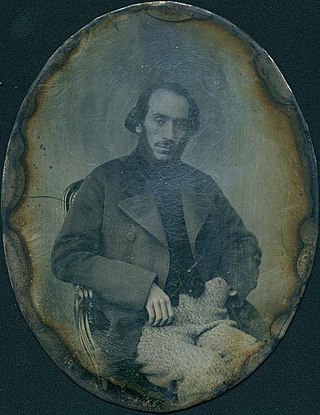 92
Nicolae Bălcescu was a Romanian Wallachian soldier, historian, journalist, and leader of the 1848 Wallachian Revolution.
92
Nicolae Bălcescu was a Romanian Wallachian soldier, historian, journalist, and leader of the 1848 Wallachian Revolution.
Avram Iancu
 83
Avram Iancu was a Transylvanian Romanian lawyer who played an important role in the local chapter of the Austrian Empire Revolutions of 1848–1849. He was especially active in the Țara Moților region...
83
Avram Iancu was a Transylvanian Romanian lawyer who played an important role in the local chapter of the Austrian Empire Revolutions of 1848–1849. He was especially active in the Țara Moților region...
Trajan
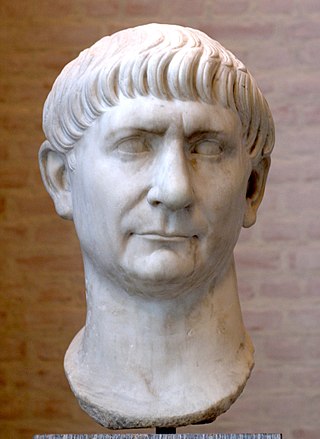 83
Trajan was a Roman emperor from AD 98 to 117, the second of the Five Good Emperors of the Nerva–Antonine dynasty. He was a philanthropic ruler and a successful soldier-emperor who led the Roman...
83
Trajan was a Roman emperor from AD 98 to 117, the second of the Five Good Emperors of the Nerva–Antonine dynasty. He was a philanthropic ruler and a successful soldier-emperor who led the Roman...
Vasile Alecsandri
 75
Vasile Alecsandri was a Romanian patriot, poet, dramatist, politician and diplomat. He was one of the key figures during the 1848 revolutions in Moldavia and Wallachia. He fought for the unification...
75
Vasile Alecsandri was a Romanian patriot, poet, dramatist, politician and diplomat. He was one of the key figures during the 1848 revolutions in Moldavia and Wallachia. He fought for the unification...
George Coșbuc
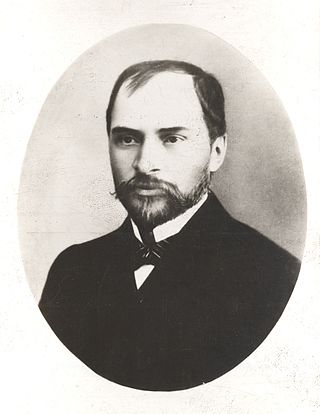 74
George Coșbuc was a Romanian poet, translator, teacher, and journalist, best remembered for his verses describing, praising and eulogizing rural life, its many travails but also its occasions for...
74
George Coșbuc was a Romanian poet, translator, teacher, and journalist, best remembered for his verses describing, praising and eulogizing rural life, its many travails but also its occasions for...
Vasile Ursu Nicola
 74
Vasile Ursu Nicola (1731 in Arada, Principality of Transylvania – 28 February 1785 in Karlsburg, commonly known as Horea was a Transylvanian peasant who, with Ion Oarga and Marcu Giurgiu, led the...
74
Vasile Ursu Nicola (1731 in Arada, Principality of Transylvania – 28 February 1785 in Karlsburg, commonly known as Horea was a Transylvanian peasant who, with Ion Oarga and Marcu Giurgiu, led the...
György Dózsa
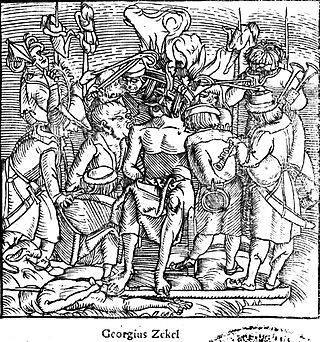 69
György Dózsa was a Székely man-at-arms from Transylvania, Kingdom of Hungary who led a peasants' revolt against the kingdom's landed nobility during the reign of King Vladislaus II of Hungary. The...
69
György Dózsa was a Székely man-at-arms from Transylvania, Kingdom of Hungary who led a peasants' revolt against the kingdom's landed nobility during the reign of King Vladislaus II of Hungary. The...
Ion Creangă
 65
Ion Creangă was a Moldavian, later Romanian writer, raconteur and schoolteacher. A main figure in 19th-century Romanian literature, he is best known for his Childhood Memories volume, his novellas...
65
Ion Creangă was a Moldavian, later Romanian writer, raconteur and schoolteacher. A main figure in 19th-century Romanian literature, he is best known for his Childhood Memories volume, his novellas...
Mihail Kogălniceanu
 63
Mihail Kogălniceanu was a Romanian liberal statesman, lawyer, historian and publicist; he became Prime Minister of Romania on October 11, 1863, after the 1859 union of the Danubian Principalities...
63
Mihail Kogălniceanu was a Romanian liberal statesman, lawyer, historian and publicist; he became Prime Minister of Romania on October 11, 1863, after the 1859 union of the Danubian Principalities...
Ion Luca Caragiale
 60
Ion Luca Caragiale, commonly referred to as I. L. Caragiale, was a Romanian playwright, short story writer, poet, theater manager, political commentator and journalist. Leaving behind an important...
60
Ion Luca Caragiale, commonly referred to as I. L. Caragiale, was a Romanian playwright, short story writer, poet, theater manager, political commentator and journalist. Leaving behind an important...
Nicolae Iorga
 59
Nicolae Iorga was a Romanian politician who held top posts, including Prime Minister and president of the Senate. He was also a historian, literary critic, memoirist, albanologist, poet and...
59
Nicolae Iorga was a Romanian politician who held top posts, including Prime Minister and president of the Senate. He was also a historian, literary critic, memoirist, albanologist, poet and...
Ion Oargă Cloșca
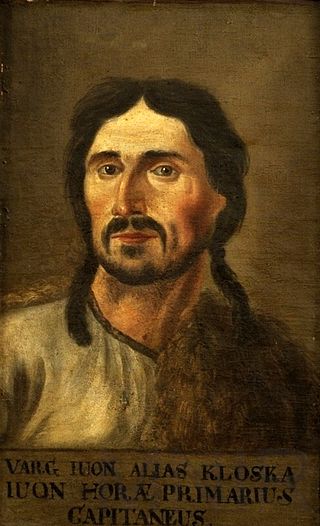 59
Ion Oargă, poreclit Cloșca, a fost împreună cu Horea și Crișan lider al răscoalei de la 1784.
59
Ion Oargă, poreclit Cloșca, a fost împreună cu Horea și Crișan lider al răscoalei de la 1784.
Decebalus
 57
Decebalus, sometimes referred to as Diurpaneus, was the last Dacian king. He is famous for fighting three wars, with varying success, against the Roman Empire under two emperors. After raiding south...
57
Decebalus, sometimes referred to as Diurpaneus, was the last Dacian king. He is famous for fighting three wars, with varying success, against the Roman Empire under two emperors. After raiding south...
Crișan
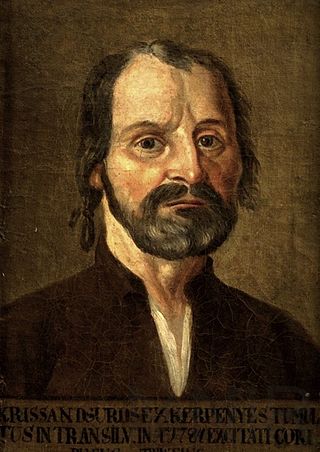 55
Gheorghe Giurgiu, cunoscut sub numele de Gheorghe Crișan sau Crișan, a fost, împreună cu Horea și Cloșca, unul dintre conducătorii răscoalei din Transilvania din 1784.
55
Gheorghe Giurgiu, cunoscut sub numele de Gheorghe Crișan sau Crișan, a fost, împreună cu Horea și Cloșca, unul dintre conducătorii răscoalei din Transilvania din 1784.
Aurel Vlaicu
 51
Aurel Vlaicu was a Romanian engineer, inventor, airplane constructor, and early pilot.
51
Aurel Vlaicu was a Romanian engineer, inventor, airplane constructor, and early pilot.
Nicolae Titulescu
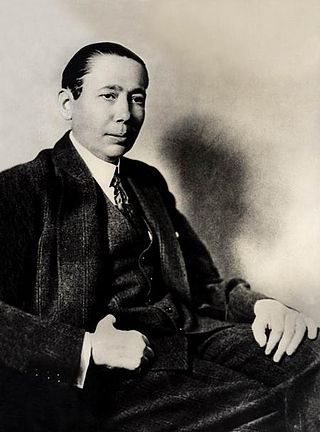 47
Nicolae Titulescu was a Romanian politician and diplomat, at various times ambassador, finance minister, and foreign minister, and for two terms president of the General Assembly of the League of...
47
Nicolae Titulescu was a Romanian politician and diplomat, at various times ambassador, finance minister, and foreign minister, and for two terms president of the General Assembly of the League of...
George Enescu
 42
George Enescu, known in France as Georges Enesco, was a Romanian composer, violinist, conductor, and teacher and is regarded as one of the greatest musicians in Romanian history.
42
George Enescu, known in France as Georges Enesco, was a Romanian composer, violinist, conductor, and teacher and is regarded as one of the greatest musicians in Romanian history.
Dimitrie Cantemir
 40
Dimitrie or Demetrius Cantemir, also known by other spellings, was a Moldavian prince, statesman, and man of letters. He twice served as voivode of Moldavia. During his second term he allied his...
40
Dimitrie or Demetrius Cantemir, also known by other spellings, was a Moldavian prince, statesman, and man of letters. He twice served as voivode of Moldavia. During his second term he allied his...
Alexandru Vlahuță
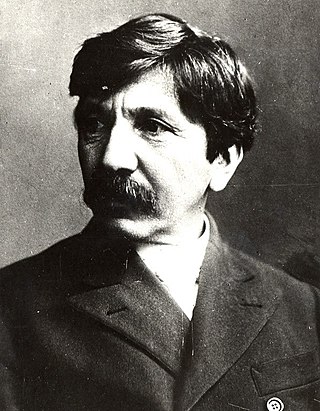 39
Alexandru Vlahuță was a Romanian writer. His best known work is România pitorească, an overview of Romania's landscape in the form of a travelogue. He was also the main editor of Sămănătorul...
39
Alexandru Vlahuță was a Romanian writer. His best known work is România pitorească, an overview of Romania's landscape in the form of a travelogue. He was also the main editor of Sămănătorul...
Ana Ipătescu
 38
Ana Ipătescu (1805–1875) was a Romanian revolutionary who participated in the Wallachian Revolution of 1848.
38
Ana Ipătescu (1805–1875) was a Romanian revolutionary who participated in the Wallachian Revolution of 1848.
Nicolae Grigorescu
 36
Nicolae Grigorescu was one of the founders of modern Romanian painting.
36
Nicolae Grigorescu was one of the founders of modern Romanian painting.
Mircea the Elder
 36
Mircea the Elder was the Voivode of Wallachia from 1386 until his death in 1418. He was the son of Radu I of Wallachia and brother of Dan I of Wallachia, after whose death he inherited the throne.
36
Mircea the Elder was the Voivode of Wallachia from 1386 until his death in 1418. He was the son of Radu I of Wallachia and brother of Dan I of Wallachia, after whose death he inherited the throne.
Andrei Mureșanu
 36
Andrei Mureșanu was a Romanian poet and revolutionary of Transylvania.
36
Andrei Mureșanu was a Romanian poet and revolutionary of Transylvania.
Matei Basarab
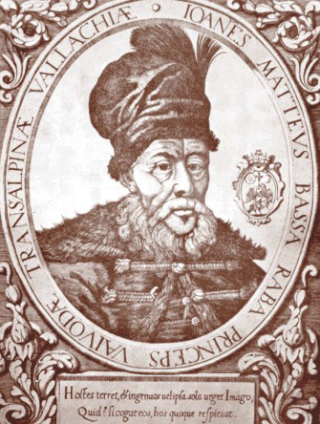 34
Matei Basarab was a Wallachian Voivode (Prince) between 1632 and 1654.
34
Matei Basarab was a Wallachian Voivode (Prince) between 1632 and 1654.
Ecaterina Teodoroiu
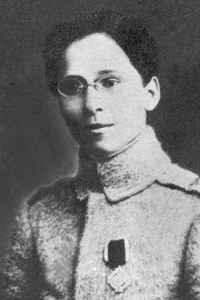 33
Ecaterina Teodoroiu was a Romanian woman who fought on the front and died in World War I, and is regarded as a heroine of Romania.
33
Ecaterina Teodoroiu was a Romanian woman who fought on the front and died in World War I, and is regarded as a heroine of Romania.
Simion Bărnuțiu
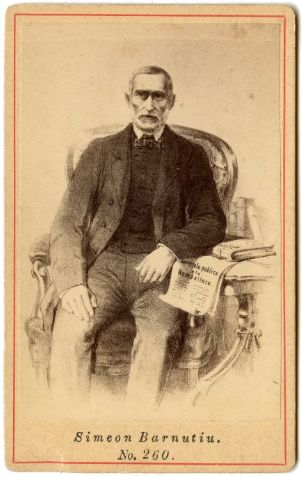 33
Simion Bărnuțiu was a Transylvanian, later Romanian historian, academic, philosopher, jurist, and liberal politician. A leader of the 1848 revolutionary movement of Transylvanian Romanians, he...
33
Simion Bărnuțiu was a Transylvanian, later Romanian historian, academic, philosopher, jurist, and liberal politician. A leader of the 1848 revolutionary movement of Transylvanian Romanians, he...
Vlad the Impaler
 33
Vlad III, commonly known as Vlad the Impaler or Vlad Dracula, was Voivode of Wallachia three times between 1448 and his death in 1476/77. He is often considered one of the most important rulers in...
33
Vlad III, commonly known as Vlad the Impaler or Vlad Dracula, was Voivode of Wallachia three times between 1448 and his death in 1476/77. He is often considered one of the most important rulers in...
Constantin Brâncoveanu
 32
Constantin Brâncoveanu was Prince of Wallachia between 1688 and 1714.
32
Constantin Brâncoveanu was Prince of Wallachia between 1688 and 1714.
Petru Rareș
 31
Petru Rareș, sometimes known as Petryła or Peter IV, was twice voivode of Moldavia: 20 January 1527 to 18 September 1538 and 19 February 1541 to 3 September 1546. He was an illegitimate child born to...
31
Petru Rareș, sometimes known as Petryła or Peter IV, was twice voivode of Moldavia: 20 January 1527 to 18 September 1538 and 19 February 1541 to 3 September 1546. He was an illegitimate child born to...
Constantin Dobrogeanu-Gherea
 30
Constantin Dobrogeanu-Gherea was a Romanian Marxist theorist, politician, sociologist, literary critic, and journalist. He was also an entrepreneur in the city of Ploiești. Constantin...
30
Constantin Dobrogeanu-Gherea was a Romanian Marxist theorist, politician, sociologist, literary critic, and journalist. He was also an entrepreneur in the city of Ploiești. Constantin...
Octavian Goga
 30
Octavian Goga was a Romanian far-right politician, poet, playwright, journalist, and translator.
30
Octavian Goga was a Romanian far-right politician, poet, playwright, journalist, and translator.
Gheorghe Lazăr
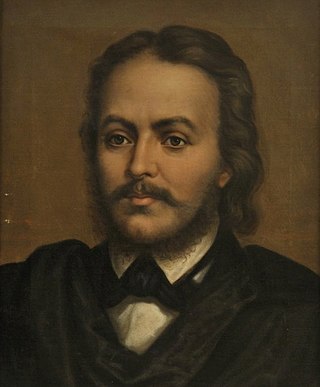 29
Gheorghe Lazăr, was a Transylvanian Romanian scholar, the founder of the first Romanian language school in Bucharest, 1817.
29
Gheorghe Lazăr, was a Transylvanian Romanian scholar, the founder of the first Romanian language school in Bucharest, 1817.
Lucian Blaga
 29
Lucian Blaga was a Romanian philosopher, poet, playwright, poetry translator and novelist. He was a commanding personality of the Romanian culture of the interbellum period.
29
Lucian Blaga was a Romanian philosopher, poet, playwright, poetry translator and novelist. He was a commanding personality of the Romanian culture of the interbellum period.
Popa Șapcă
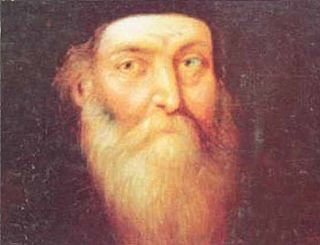 29
Popa Șapcă a fost un preot, haiduc și revoluționar român. Cu el se încheie epoca haiducilor și pandurilor celebri din Oltenia.
29
Popa Șapcă a fost un preot, haiduc și revoluționar român. Cu el se încheie epoca haiducilor și pandurilor celebri din Oltenia.
Liviu Rebreanu
 28
Liviu Rebreanu was a Romanian novelist, playwright, short story writer, and journalist.
28
Liviu Rebreanu was a Romanian novelist, playwright, short story writer, and journalist.
Miron Costin
 28
Miron Costin was a Moldavian (Romanian) political figure and chronicler. His main work, Letopiseţul Ţărâi Moldovei [de la Aron Vodă încoace] was meant to extend Grigore Ureche's narrative, covering...
28
Miron Costin was a Moldavian (Romanian) political figure and chronicler. His main work, Letopiseţul Ţărâi Moldovei [de la Aron Vodă încoace] was meant to extend Grigore Ureche's narrative, covering...
Mihail Sadoveanu
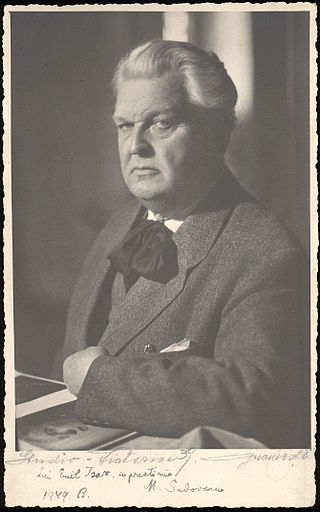 28
Mihail Sadoveanu was a Romanian novelist, short story writer, journalist and political figure, who twice served as acting head of state for the communist republic. One of the most prolific...
28
Mihail Sadoveanu was a Romanian novelist, short story writer, journalist and political figure, who twice served as acting head of state for the communist republic. One of the most prolific...
Andrei Șaguna
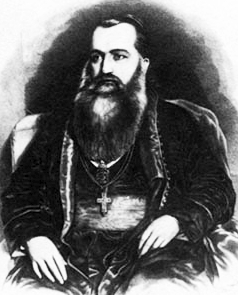 27
Andrei Șaguna was a Metropolitan bishop of the Romanian Orthodox Church in Transylvania, and one of the Romanian community political leaders in the Habsburg monarchy, especially active during the...
27
Andrei Șaguna was a Metropolitan bishop of the Romanian Orthodox Church in Transylvania, and one of the Romanian community political leaders in the Habsburg monarchy, especially active during the...
Petru Maior
 27
Petru Maior was a Romanian writer who is considered one of the most influential personalities of the Age of Enlightenment in Transylvania. Maior was a member of the Greek-Catholic clergy, a...
27
Petru Maior was a Romanian writer who is considered one of the most influential personalities of the Age of Enlightenment in Transylvania. Maior was a member of the Greek-Catholic clergy, a...
Traian Vuia
 27
Traian Vuia or Trajan Vuia was a Romanian inventor and aviation pioneer who designed, built, and tested the first tractor monoplane. He was the first to demonstrate that a flying machine could rise...
27
Traian Vuia or Trajan Vuia was a Romanian inventor and aviation pioneer who designed, built, and tested the first tractor monoplane. He was the first to demonstrate that a flying machine could rise...
Anton Pann
 27
Anton Pann was an Ottoman-born Wallachian composer, musicologist, and Romanian-language poet, also noted for his activities as a printer, translator, and schoolteacher. Pann was an influential...
27
Anton Pann was an Ottoman-born Wallachian composer, musicologist, and Romanian-language poet, also noted for his activities as a printer, translator, and schoolteacher. Pann was an influential...
Ciprian Porumbescu
 26
Ciprian Porumbescu was a Romanian composer born in Șipotele Sucevei in Bukovina. He was among the most celebrated Romanian composers of his time; his popular works include Crai nou, Song of the...
26
Ciprian Porumbescu was a Romanian composer born in Șipotele Sucevei in Bukovina. He was among the most celebrated Romanian composers of his time; his popular works include Crai nou, Song of the...
Iuliu Maniu
 25
Iuliu Maniu was a Romanian lawyer and politician. He was a leader of the National Party of Transylvania and Banat before and after World War I, playing an important role in the Union of Transylvania...
25
Iuliu Maniu was a Romanian lawyer and politician. He was a leader of the National Party of Transylvania and Banat before and after World War I, playing an important role in the Union of Transylvania...
Vasile Lupu
 25
Lupu Coci, known as Vasile Lupu, was a Voivode of Moldavia of Albanian and Greek origin between 1634 and 1653. Lupu had secured the Moldavian throne in 1634 after a series of complicated intrigues...
25
Lupu Coci, known as Vasile Lupu, was a Voivode of Moldavia of Albanian and Greek origin between 1634 and 1653. Lupu had secured the Moldavian throne in 1634 after a series of complicated intrigues...
Ion I. C. Brătianu
 24
Ion Ionel Constantin Brătianu was a Romanian politician, leader of the National Liberal Party (PNL), Prime Minister of Romania for five terms, and Foreign Minister on several occasions; he was the...
24
Ion Ionel Constantin Brătianu was a Romanian politician, leader of the National Liberal Party (PNL), Prime Minister of Romania for five terms, and Foreign Minister on several occasions; he was the...
Dragoș, Voivode of Moldavia
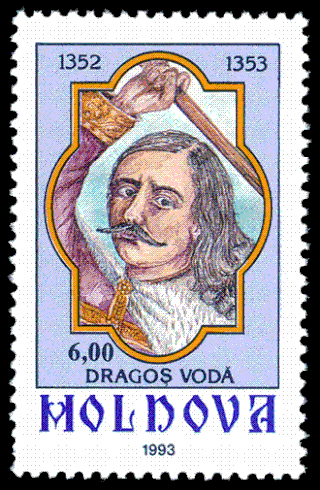 24
Dragoș, also known as Dragoș Vodă, or Dragoș the Founder was the first Voivode of Moldavia, who reigned in the middle of the 14th century, according to the earliest Moldavian chronicles. The same...
24
Dragoș, also known as Dragoș Vodă, or Dragoș the Founder was the first Voivode of Moldavia, who reigned in the middle of the 14th century, according to the earliest Moldavian chronicles. The same...
Victor Babeș
 24
Victor Babeș was a Romanian physician, bacteriologist, academician and professor. One of the founders of modern microbiology, Victor Babeș is author of one of the first treatises of bacteriology in...
24
Victor Babeș was a Romanian physician, bacteriologist, academician and professor. One of the founders of modern microbiology, Victor Babeș is author of one of the first treatises of bacteriology in...
Gheorghe Șincai
 24
Gheorghe Șincai was a Romanian historian, philologist, translator, poet, and representative of the Enlightenment-influenced Transylvanian School.
24
Gheorghe Șincai was a Romanian historian, philologist, translator, poet, and representative of the Enlightenment-influenced Transylvanian School.
Ioan Slavici
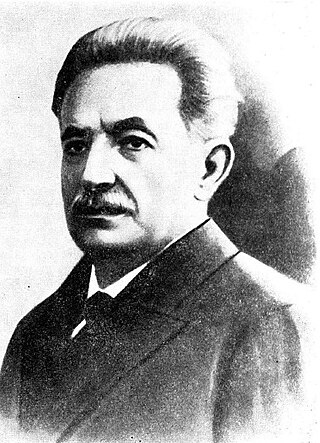 24
Ioan Slavici was a Romanian writer and journalist from Austria-Hungary, later Romania.
24
Ioan Slavici was a Romanian writer and journalist from Austria-Hungary, later Romania.
Sándor Petőfi
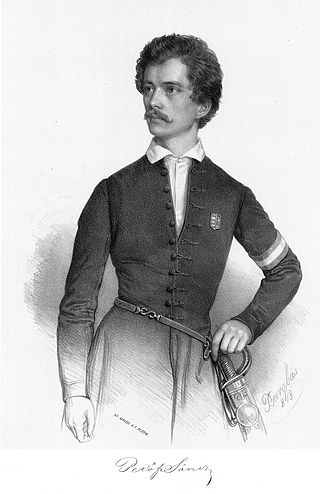 23
Sándor Petőfi was a Hungarian poet and liberal revolutionary. He is considered Hungary's national poet, and was one of the key figures of the Hungarian Revolution of 1848. He is the author of the...
23
Sándor Petőfi was a Hungarian poet and liberal revolutionary. He is considered Hungary's national poet, and was one of the key figures of the Hungarian Revolution of 1848. He is the author of the...
Alexander the Good
 22
Alexander I, commonly known as Alexander the Good was Voivode of Moldavia between 1400 and 1432. He was the son of Roman I and succeeded Iuga to the throne. As ruler he initiated a series of reforms...
22
Alexander I, commonly known as Alexander the Good was Voivode of Moldavia between 1400 and 1432. He was the son of Roman I and succeeded Iuga to the throne. As ruler he initiated a series of reforms...
George Bariț
 20
George Bariț, was an ethnic Romanian Austro-Hungarian historian, philologist, playwright, politician, businessman and journalist, the founder of the Romanian language press in Transylvania.
20
George Bariț, was an ethnic Romanian Austro-Hungarian historian, philologist, playwright, politician, businessman and journalist, the founder of the Romanian language press in Transylvania.
Radu Negru
 20
Negru Vodă, also known as Radu Negru, is the legendary founder of Wallachia.
20
Negru Vodă, also known as Radu Negru, is the legendary founder of Wallachia.
Grigore Alexandrescu
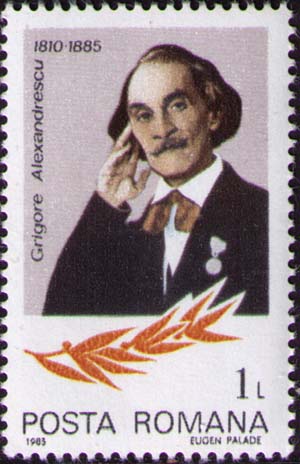 20
Grigore Alexandrescu was a nineteenth-century Romanian poet and translator noted for his fables with political undertones.
20
Grigore Alexandrescu was a nineteenth-century Romanian poet and translator noted for his fables with political undertones.
Eremia Grigorescu
 20
Eremia Teofil Grigorescu was a Romanian general, commander of the 1st Romanian Army during World War I, and Minister of War in the Constantin Coandă cabinet.
20
Eremia Teofil Grigorescu was a Romanian general, commander of the 1st Romanian Army during World War I, and Minister of War in the Constantin Coandă cabinet.
Alexandru Odobescu
 20
Alexandru Ioan Odobescu was a Romanian author, archaeologist and politician.
20
Alexandru Ioan Odobescu was a Romanian author, archaeologist and politician.
Ferdinand I of Romania
 19
Ferdinand I, nicknamed Întregitorul, was King of Romania from 1914 until his death in 1927. Ferdinand was the second son of Leopold, Prince of Hohenzollern, and Infanta Antónia of Portugal, daughter...
19
Ferdinand I, nicknamed Întregitorul, was King of Romania from 1914 until his death in 1927. Ferdinand was the second son of Leopold, Prince of Hohenzollern, and Infanta Antónia of Portugal, daughter...
Bogdan Petriceicu Hasdeu
 19
Bogdan Petriceicu Hasdeu was a Romanian writer and philologist, who pioneered many branches of Romanian philology and history.
19
Bogdan Petriceicu Hasdeu was a Romanian writer and philologist, who pioneered many branches of Romanian philology and history.
Spiru Haret
 19
Spiru C. Haret was a Romanian mathematician, astronomer, and politician. He made a fundamental contribution to the n-body problem in celestial mechanics by proving that using a third degree...
19
Spiru C. Haret was a Romanian mathematician, astronomer, and politician. He made a fundamental contribution to the n-body problem in celestial mechanics by proving that using a third degree...
Ion Dragalina
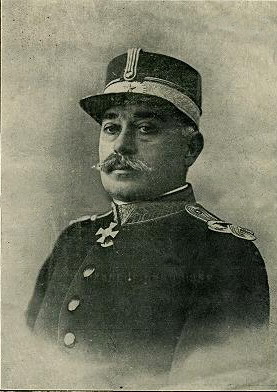 19
Ioan Dragalina was a Romanian general who died during World War I in the First Battle of the Jiu Valley.
19
Ioan Dragalina was a Romanian general who died during World War I in the First Battle of the Jiu Valley.
Theodor Aman
 19
Theodor Aman was a Romanian painter, engraver and art professor. He mostly produced genre and history scenes.
19
Theodor Aman was a Romanian painter, engraver and art professor. He mostly produced genre and history scenes.
Gheorghe Magheru
 18
General Gheorghe Magheru was a Romanian revolutionary and soldier from Wallachia, and political ally of Nicolae Bălcescu.
18
General Gheorghe Magheru was a Romanian revolutionary and soldier from Wallachia, and political ally of Nicolae Bălcescu.
Ștefan Octavian Iosif
 18
Ștefan Octavian Iosif was an Austro-Hungarian-born Romanian poet and translator.
18
Ștefan Octavian Iosif was an Austro-Hungarian-born Romanian poet and translator.
Barbu Ștefănescu Delavrancea
 18
Barbu Ștefănescu Delavrancea; pen name of Barbu Ștefan; April 11, 1858 – April 29, 1918) was a Romanian writer and poet, considered one of the greatest figures in the National awakening of Romania.
18
Barbu Ștefănescu Delavrancea; pen name of Barbu Ștefan; April 11, 1858 – April 29, 1918) was a Romanian writer and poet, considered one of the greatest figures in the National awakening of Romania.
Ștefan Luchian
 18
Ștefan Luchian was a Romanian painter, famous for his landscapes and still life works.
18
Ștefan Luchian was a Romanian painter, famous for his landscapes and still life works.
Alecu Russo
Endre Ady
 17
Endre Ady was a turn-of-the-century Hungarian poet and journalist. Regarded by many as the greatest Hungarian poet of the 20th century, he was noted for his steadfast belief in social progress and...
17
Endre Ady was a turn-of-the-century Hungarian poet and journalist. Regarded by many as the greatest Hungarian poet of the 20th century, he was noted for his steadfast belief in social progress and...
Henri Coandă
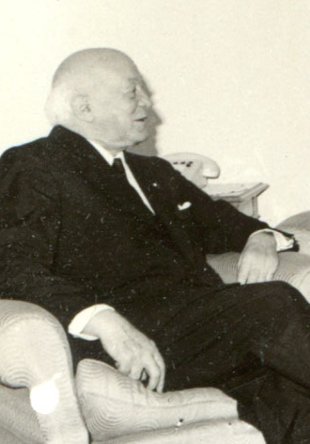 16
Henri Marie Coandă was a Romanian inventor, aerodynamics pioneer, and builder of an experimental aircraft, the Coandă-1910, which never flew. He invented a great number of devices, designed a "flying...
16
Henri Marie Coandă was a Romanian inventor, aerodynamics pioneer, and builder of an experimental aircraft, the Coandă-1910, which never flew. He invented a great number of devices, designed a "flying...
Elena Cuza
 16
Elena Cuza, also known under her semi-official title Elena Doamna, was a Moldavian, later Romanian noblewoman and philanthropist. She was princess consort of the United Principalities and the wife of...
16
Elena Cuza, also known under her semi-official title Elena Doamna, was a Moldavian, later Romanian noblewoman and philanthropist. She was princess consort of the United Principalities and the wife of...
Iosif Vulcan
 16
Iosif Vulcan was an ethnic Romanian Austro-Hungarian magazine editor, poet, playwright, novelist and cultural figure. He founded the literary magazine Familia, which he published for four decades.
16
Iosif Vulcan was an ethnic Romanian Austro-Hungarian magazine editor, poet, playwright, novelist and cultural figure. He founded the literary magazine Familia, which he published for four decades.
Emil Racoviță
 16
Emil Gheorghe Racoviță was a Romanian biologist, zoologist, speleologist, and Antarctic explorer.
16
Emil Gheorghe Racoviță was a Romanian biologist, zoologist, speleologist, and Antarctic explorer.
Gheorghe Asachi
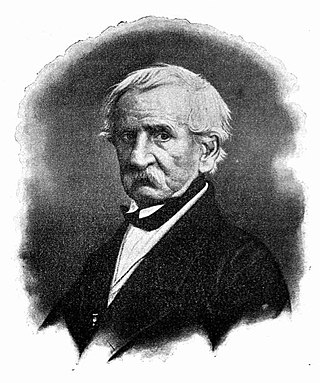 16
Gheorghe Asachi was a Moldavian, later Romanian prose writer, poet, painter, historian, dramatist, engineer, border maker, and translator. An Enlightenment-educated polymath and polyglot, he was one...
16
Gheorghe Asachi was a Moldavian, later Romanian prose writer, poet, painter, historian, dramatist, engineer, border maker, and translator. An Enlightenment-educated polymath and polyglot, he was one...
Bogdan the Founder
 16
Bogdan I, commonly known as Bogdan the Founder, was the first independent ruler, or voivode, of Moldavia in the 1360s. He had initially been the voivode, or head, of the Vlachs in the Voivodeship of...
16
Bogdan I, commonly known as Bogdan the Founder, was the first independent ruler, or voivode, of Moldavia in the 1360s. He had initially been the voivode, or head, of the Vlachs in the Voivodeship of...
Katalin Varga
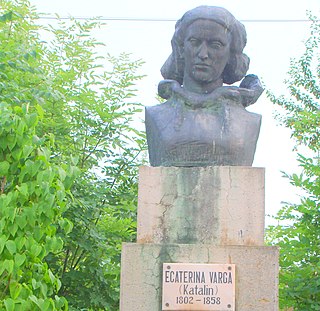 15
Katalin Varga was the leader of the Transylvanian Miners' Movement in the 1840s.
15
Katalin Varga was the leader of the Transylvanian Miners' Movement in the 1840s.
Constantin Brâncuși
 15
Constantin Brâncuși was a Romanian sculptor, painter and photographer who made his career in France. Considered one of the most influential sculptors of the 20th century and a pioneer of modernism,...
15
Constantin Brâncuși was a Romanian sculptor, painter and photographer who made his career in France. Considered one of the most influential sculptors of the 20th century and a pioneer of modernism,...
C. A. Rosetti
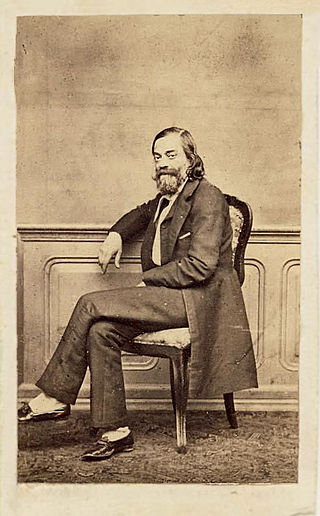 15
Constantin Alexandru Rosetti was a Romanian literary and political leader, born in Bucharest into the princely Rosetti family.
15
Constantin Alexandru Rosetti was a Romanian literary and political leader, born in Bucharest into the princely Rosetti family.
Matthias Corvinus
 15
Matthias Corvinus was King of Hungary and Croatia from 1458 to 1490, as Matthias I. After conducting several military campaigns, he was elected King of Bohemia in 1469 and adopted the title Duke of...
15
Matthias Corvinus was King of Hungary and Croatia from 1458 to 1490, as Matthias I. After conducting several military campaigns, he was elected King of Bohemia in 1469 and adopted the title Duke of...
Lajos Kossuth
 15
Lajos Kossuth de Udvard et Kossuthfalva was a Hungarian nobleman, lawyer, journalist, politician, statesman and governor-president of the Kingdom of Hungary during the revolution of 1848–1849.
15
Lajos Kossuth de Udvard et Kossuthfalva was a Hungarian nobleman, lawyer, journalist, politician, statesman and governor-president of the Kingdom of Hungary during the revolution of 1848–1849.
Mircea Eliade
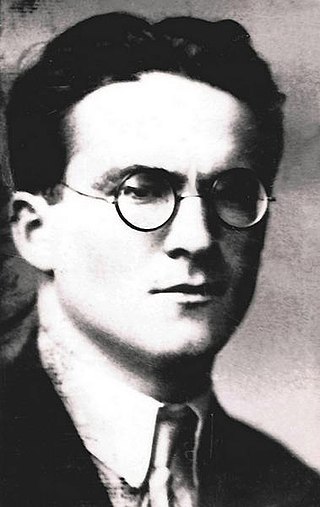 15
Mircea Eliade was a Romanian historian of religion, fiction writer, philosopher, and professor at the University of Chicago. One of the most influential scholars of religion of the 20th century and...
15
Mircea Eliade was a Romanian historian of religion, fiction writer, philosopher, and professor at the University of Chicago. One of the most influential scholars of religion of the 20th century and...
Vasile Pârvan
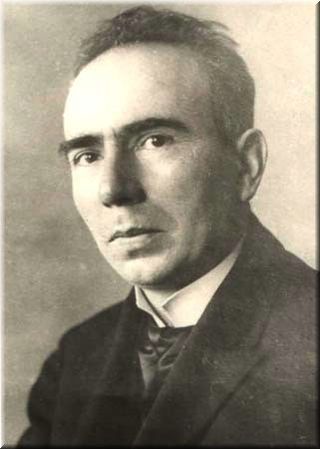 15
Vasile Pârvan was a Romanian historian and archaeologist.
15
Vasile Pârvan was a Romanian historian and archaeologist.
Dimitrie Bolintineanu
 15
Dimitrie Bolintineanu was a Romanian poet, though he wrote in many other styles as well, diplomat, politician, and a participant in the revolution of 1848. He was of Aromanian origin. His poems of...
15
Dimitrie Bolintineanu was a Romanian poet, though he wrote in many other styles as well, diplomat, politician, and a participant in the revolution of 1848. He was of Aromanian origin. His poems of...
Grigore Ureche
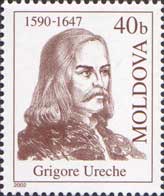 15
Grigore Ureche was a Moldavian chronicler who wrote on Moldavian history in his Letopisețul Țării Moldovei, covering the period from 1359 to 1594.
15
Grigore Ureche was a Moldavian chronicler who wrote on Moldavian history in his Letopisețul Țării Moldovei, covering the period from 1359 to 1594.
Ovid
 14
Publius Ovidius Naso, known in English as Ovid, was a Roman poet who lived during the reign of Augustus. He was a younger contemporary of Virgil and Horace, with whom he is often ranked as one of the...
14
Publius Ovidius Naso, known in English as Ovid, was a Roman poet who lived during the reign of Augustus. He was a younger contemporary of Virgil and Horace, with whom he is often ranked as one of the...
Costache Negri
 14
Costache Negri was a Moldavian, later Romanian writer, politician, and revolutionary.
14
Costache Negri was a Moldavian, later Romanian writer, politician, and revolutionary.
Corneliu Coposu
 14
Corneliu (Cornel) Coposu was a Christian Democratic and liberal conservative Romanian politician, the founder of the Christian Democratic National Peasants' Party, the founder of the Romanian...
14
Corneliu (Cornel) Coposu was a Christian Democratic and liberal conservative Romanian politician, the founder of the Christian Democratic National Peasants' Party, the founder of the Romanian...
Ioan Axente Sever
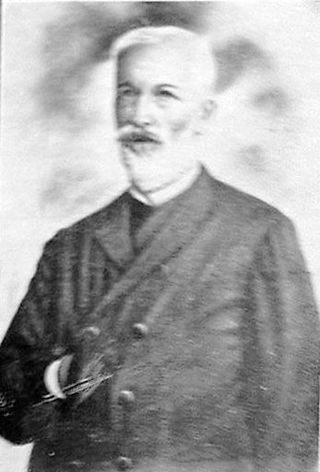 14
Ioan Axente Sever was a Romanian revolutionary in Austria-Hungary who participated in the Transylvanian Revolution of 1848.
14
Ioan Axente Sever was a Romanian revolutionary in Austria-Hungary who participated in the Transylvanian Revolution of 1848.
Iancu Jianu
 14
Iancu Jianu, also Ioniță Jianu, was a Wallachian Romanian hajduk.
14
Iancu Jianu, also Ioniță Jianu, was a Wallachian Romanian hajduk.
Carol I of Romania
 14
Carol I or Charles I of Romania, was the monarch of Romania from 1866 to his death in 1914, ruling as Prince (Domnitor) from 1866 to 1881, and as King from 1881 to 1914. He was elected Prince of the...
14
Carol I or Charles I of Romania, was the monarch of Romania from 1866 to his death in 1914, ruling as Prince (Domnitor) from 1866 to 1881, and as King from 1881 to 1914. He was elected Prince of the...
Petre Ispirescu
 14
Petre Ispirescu was a Romanian editor, folklorist, printer, and publicist. He is best known for his work as a gatherer of Romanian folk tales, recounting them with a remarkable talent.
14
Petre Ispirescu was a Romanian editor, folklorist, printer, and publicist. He is best known for his work as a gatherer of Romanian folk tales, recounting them with a remarkable talent.
George Bacovia
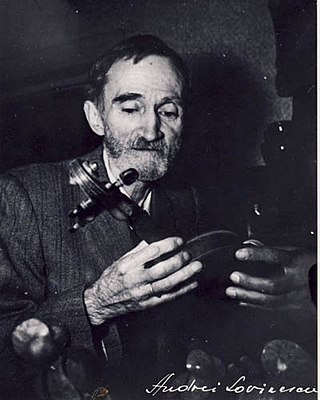 14
George Bacovia was a Romanian symbolist poet. While he initially belonged to the local Symbolist movement, launched as a poet by Alexandru Macedonski with the poem and poetry collection Plumb...
14
George Bacovia was a Romanian symbolist poet. While he initially belonged to the local Symbolist movement, launched as a poet by Alexandru Macedonski with the poem and poetry collection Plumb...
Vasile Conta
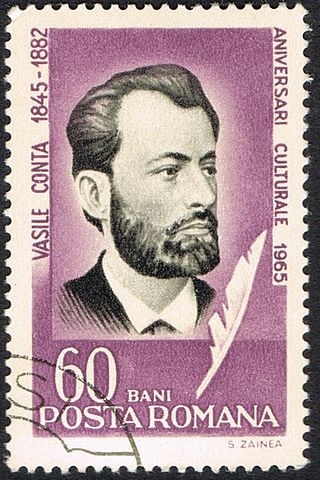 14
Vasile Conta was a Romanian philosopher, poet, and politician.
14
Vasile Conta was a Romanian philosopher, poet, and politician.
Titu Maiorescu
 14
Titu Liviu Maiorescu was a Romanian literary critic and politician, founder of the Junimea Society. As a literary critic, he was instrumental in the development of Romanian culture in the second half...
14
Titu Liviu Maiorescu was a Romanian literary critic and politician, founder of the Junimea Society. As a literary critic, he was instrumental in the development of Romanian culture in the second half...
Barbu Lăutaru
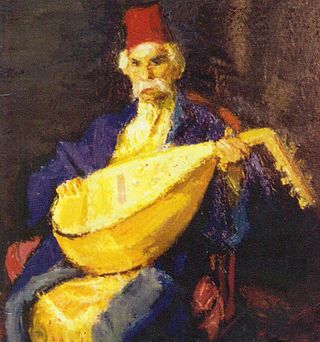 13
Barbu Lăutaru a fost un cântăreț și cobzar român, de etnie romă.
13
Barbu Lăutaru a fost un cântăreț și cobzar român, de etnie romă.
Anghel Saligny
 13
Anghel Saligny was a Romanian engineer, most famous for designing the Fetești-Cernavodă railway bridge (1895) over the Danube, the longest bridge in Europe at that time. He also designed the...
13
Anghel Saligny was a Romanian engineer, most famous for designing the Fetești-Cernavodă railway bridge (1895) over the Danube, the longest bridge in Europe at that time. He also designed the...
Ion Neculce
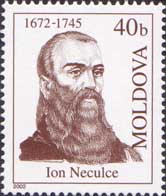 13
Ion Neculce (1672–1745) was a Moldavian chronicler. His main work, Letopisețul Țărâi Moldovei [de la Dabija Vodă până la a doua domnie a lui Constantin Mavrocordat] was meant to extend Miron Costin's...
13
Ion Neculce (1672–1745) was a Moldavian chronicler. His main work, Letopisețul Țărâi Moldovei [de la Dabija Vodă până la a doua domnie a lui Constantin Mavrocordat] was meant to extend Miron Costin's...
Vasile Lucaciu
 12
Vasile Lucaciu was a Romanian Greek-Catholic priest and an advocate of equal rights of Romanians with the Hungarians in Transylvania.
12
Vasile Lucaciu was a Romanian Greek-Catholic priest and an advocate of equal rights of Romanians with the Hungarians in Transylvania.
Vasile Goldiș
 12
Vasile Goldiș was a Romanian politician, social theorist, and member of the Romanian Academy.
12
Vasile Goldiș was a Romanian politician, social theorist, and member of the Romanian Academy.
Ion Rațiu
 12
Ion Rațiu was a Romanian lawyer, diplomat, journalist, businessman, writer, and politician. In addition, he was the official presidential candidate of the Christian Democratic National Peasants'...
12
Ion Rațiu was a Romanian lawyer, diplomat, journalist, businessman, writer, and politician. In addition, he was the official presidential candidate of the Christian Democratic National Peasants'...
Tudor Arghezi
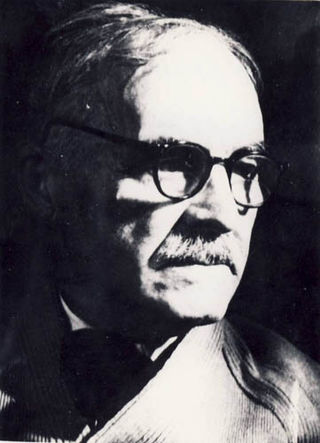 12
Ion Nae Theodorescu was a Romanian writer who wrote under the pen name Tudor Arghezi (Romanian pronunciation: [ˈtudor arˈɡezi]. He is best known for his unique contribution to poetry and children's...
12
Ion Nae Theodorescu was a Romanian writer who wrote under the pen name Tudor Arghezi (Romanian pronunciation: [ˈtudor arˈɡezi]. He is best known for his unique contribution to poetry and children's...
Alexandru Sahia
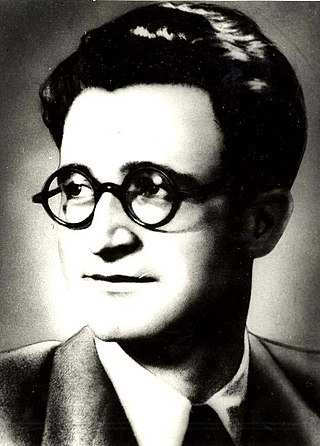 12
Alexandru Sahia was a Romanian journalist and short story writer.
12
Alexandru Sahia was a Romanian journalist and short story writer.
Nichita Stănescu
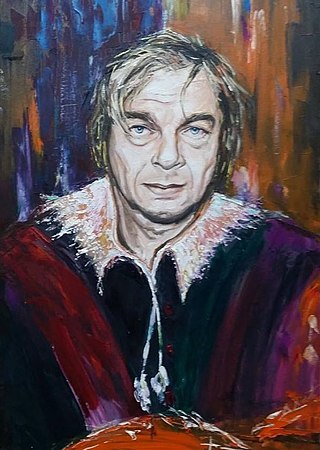 12
Nichita Stănescu was a Romanian poet and essayist.
12
Nichita Stănescu was a Romanian poet and essayist.
George Topîrceanu
 12
George Topîrceanu was a Romanian poet, short story writer, and humourist.
12
George Topîrceanu was a Romanian poet, short story writer, and humourist.
Starina Novak
 11
Starina Novak was a Serb hajduk who distinguished himself in many battles against the Ottoman Empire. He is considered a national hero by both the Serbs and the Romanians.
11
Starina Novak was a Serb hajduk who distinguished himself in many battles against the Ottoman Empire. He is considered a national hero by both the Serbs and the Romanians.
Gheorghe Marinescu
 11
Gheorghe Marinescu was a Romanian neurologist, founder of the Romanian School of Neurology.
11
Gheorghe Marinescu was a Romanian neurologist, founder of the Romanian School of Neurology.
Ion Heliade Rădulescu
 11
Ion Heliade Rădulescu or Ion Heliade was a Wallachian, later Romanian academic, Romantic and Classicist poet, essayist, memoirist, short story writer, newspaper editor and politician. A prolific...
11
Ion Heliade Rădulescu or Ion Heliade was a Wallachian, later Romanian academic, Romantic and Classicist poet, essayist, memoirist, short story writer, newspaper editor and politician. A prolific...
Alexandru Lăpușneanu
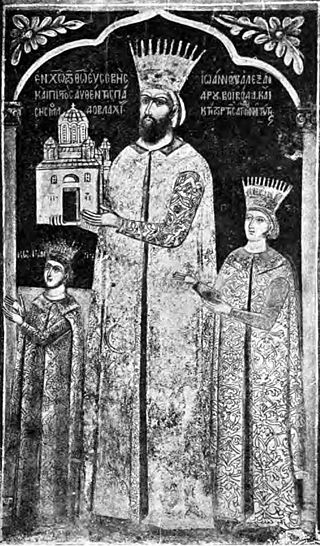 11
Alexandru IV Lăpușneanu was Ruler of Moldavia between September 1552 and 18 November 1561 and then between October 1564 and 5 May 1568. He was the son of Bogdan III the One-Eyed. His wife and consort...
11
Alexandru IV Lăpușneanu was Ruler of Moldavia between September 1552 and 18 November 1561 and then between October 1564 and 5 May 1568. He was the son of Bogdan III the One-Eyed. His wife and consort...
Béla Bartók
 11
Béla Viktor János Bartók was a Hungarian composer, pianist and ethnomusicologist. He is considered one of the most important composers of the 20th century; he and Franz Liszt are regarded as...
11
Béla Viktor János Bartók was a Hungarian composer, pianist and ethnomusicologist. He is considered one of the most important composers of the 20th century; he and Franz Liszt are regarded as...
Panait Cerna
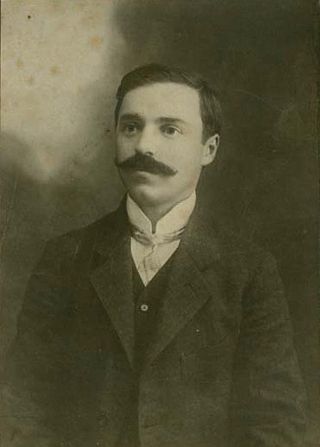 11
Panait Cerna was a Romanian poet, philosopher, literary critic and translator. A native speaker of Bulgarian, Cerna nonetheless wrote in Romanian, and developed a traditionalist style which was...
11
Panait Cerna was a Romanian poet, philosopher, literary critic and translator. A native speaker of Bulgarian, Cerna nonetheless wrote in Romanian, and developed a traditionalist style which was...
Peneș Curcanul
 11
Peneș Curcanul, , este numele unui erou al Războiului de Independență din 1877, fost sergent în Regimentul 13 Dorobanți. Țurcanu a participat ulterior ca voluntar în al Doilea Război Balcanic și în...
11
Peneș Curcanul, , este numele unui erou al Războiului de Independență din 1877, fost sergent în Regimentul 13 Dorobanți. Țurcanu a participat ulterior ca voluntar în al Doilea Război Balcanic și în...
Eftimie Murgu
 11
Eftimie Murgu was a Romanian philosopher and politician who took part in the 1848 Revolutions.
11
Eftimie Murgu was a Romanian philosopher and politician who took part in the 1848 Revolutions.
Aron Pumnul
 11
Aron Pumnul was a Romanian philologist and teacher as well as a national and revolutionary activist in Transylvania and later in Bukovina.
11
Aron Pumnul was a Romanian philologist and teacher as well as a national and revolutionary activist in Transylvania and later in Bukovina.
Ion Andreescu
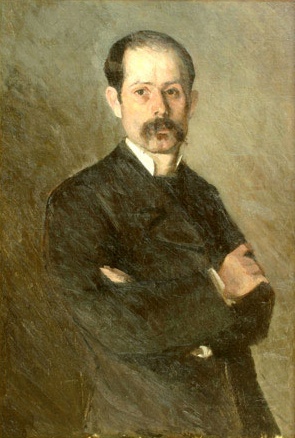 11
Ion Andreescu was a Romanian painter.
11
Ion Andreescu was a Romanian painter.
Carol Davila
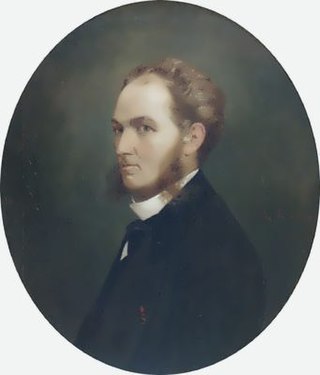 10
Carol Davila was a Romanian physician of Italian ancestry. He is considered to be the father of Romanian medicine.
10
Carol Davila was a Romanian physician of Italian ancestry. He is considered to be the father of Romanian medicine.
Saint George
 10
Saint George, also George of Lydda, was an early Christian martyr who is venerated as a saint in Christianity. According to tradition, he was a soldier in the Roman army. Of Cappadocian Greek origin,...
10
Saint George, also George of Lydda, was an early Christian martyr who is venerated as a saint in Christianity. According to tradition, he was a soldier in the Roman army. Of Cappadocian Greek origin,...
Duiliu Zamfirescu
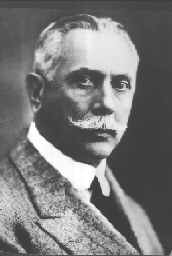 10
Duiliu Zamfirescu was a Romanian novelist, poet, short story writer, lawyer, nationalist politician, journalist, diplomat and memoirist. In 1909, he was elected a member of the Romanian Academy, and,...
10
Duiliu Zamfirescu was a Romanian novelist, poet, short story writer, lawyer, nationalist politician, journalist, diplomat and memoirist. In 1909, he was elected a member of the Romanian Academy, and,...
Cezar Bolliac
 10
Cezar Bolliac or Boliac, Boliak was a Wallachian and Romanian radical political figure, amateur archaeologist, journalist and Romantic poet.
10
Cezar Bolliac or Boliac, Boliak was a Wallachian and Romanian radical political figure, amateur archaeologist, journalist and Romantic poet.
Saint Nicholas
 10
Saint Nicholas of Myra, also known as Nicholas of Bari, was an early Christian bishop of Greek descent from the maritime city of Patara in Anatolia during the time of the Roman Empire. Because of the...
10
Saint Nicholas of Myra, also known as Nicholas of Bari, was an early Christian bishop of Greek descent from the maritime city of Patara in Anatolia during the time of the Roman Empire. Because of the...
Vasile Milea
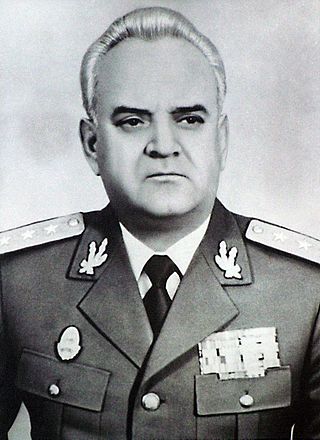 9
Vasile Milea was a Romanian politician and military general who was Nicolae Ceaușescu's Minister of Defence during the Romanian Revolution of 1989 and was involved in the reprisal phase of the...
9
Vasile Milea was a Romanian politician and military general who was Nicolae Ceaușescu's Minister of Defence during the Romanian Revolution of 1989 and was involved in the reprisal phase of the...
Timotei Cipariu
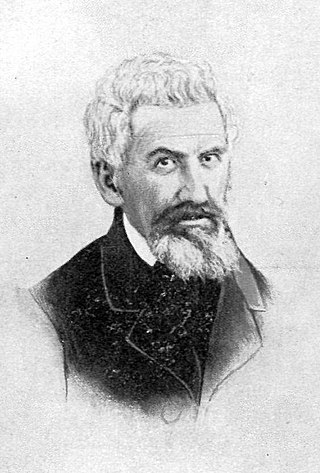 9
Timotei Cipariu was a Transylvanian Romanian scholar, Greek-Catholic cleric, Pașoptist revolutionary, politician in Transylvania, founding member of the Romanian Academy, first vice-president, then...
9
Timotei Cipariu was a Transylvanian Romanian scholar, Greek-Catholic cleric, Pașoptist revolutionary, politician in Transylvania, founding member of the Romanian Academy, first vice-president, then...
David Praporgescu
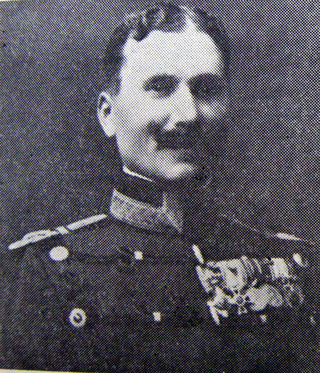 9
David Praporgescu was a Romanian brigadier general during World War I, who was killed in action at the start of the Battle of the Southern Carpathians.
9
David Praporgescu was a Romanian brigadier general during World War I, who was killed in action at the start of the Battle of the Southern Carpathians.
Vasile Cârlova
 9
Vasile Cârlova was a Wallachian officer and early Romantic poet.
9
Vasile Cârlova was a Wallachian officer and early Romantic poet.
Camil Petrescu
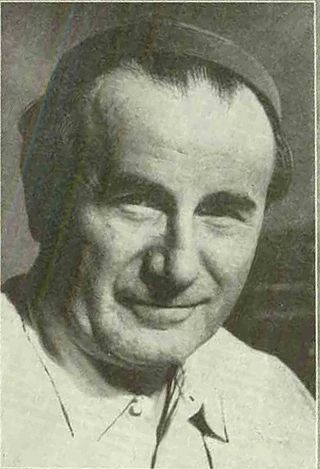 9
Camil Petrescu was a Romanian playwright, novelist, philosopher and poet. He marked the end of the traditional novel era and laid the foundation of the modern novel era in Romania.
9
Camil Petrescu was a Romanian playwright, novelist, philosopher and poet. He marked the end of the traditional novel era and laid the foundation of the modern novel era in Romania.
Valter Mărăcineanu
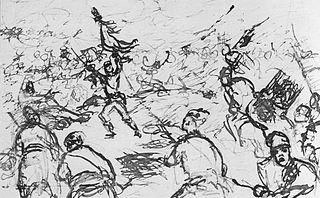 9
Nicolae Valter Mărăcineanu was a Romanian soldier.
9
Nicolae Valter Mărăcineanu was a Romanian soldier.
John Corvinus
 9
John Corvinus was the illegitimate son of Matthias Corvinus, King of Hungary, and his mistress, Barbara Edelpöck.
9
John Corvinus was the illegitimate son of Matthias Corvinus, King of Hungary, and his mistress, Barbara Edelpöck.
Ion G. Duca
 8
Ion Gheorghe Duca was Romanian politician and the Prime Minister of Romania from 14 November to 29 December 1933, when he was assassinated for his efforts to suppress the fascist Iron Guard movement.
8
Ion Gheorghe Duca was Romanian politician and the Prime Minister of Romania from 14 November to 29 December 1933, when he was assassinated for his efforts to suppress the fascist Iron Guard movement.
Take Ionescu
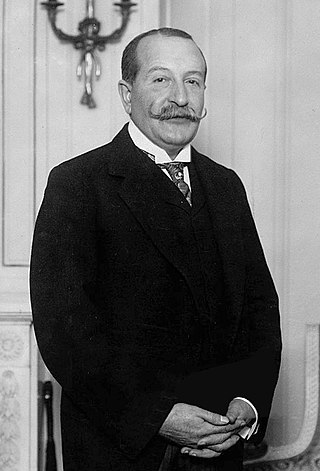 8
Take or Tache Ionescu was a Romanian centrist politician, journalist, lawyer and diplomat, who also enjoyed reputation as a short story author. Starting his political career as a radical member of...
8
Take or Tache Ionescu was a Romanian centrist politician, journalist, lawyer and diplomat, who also enjoyed reputation as a short story author. Starting his political career as a radical member of...
Barbu Dimitrie Știrbei
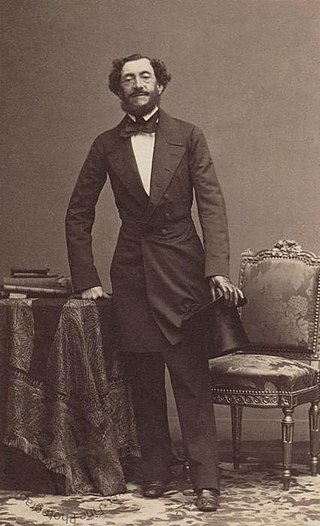 8
Barbu Dimitrie Știrbei, also written as Stirbey,, a member of the Bibescu boyar family, was a hospodar on two occasions, between 1848 and 1853, and between 1854 and 1856.
8
Barbu Dimitrie Știrbei, also written as Stirbey,, a member of the Bibescu boyar family, was a hospodar on two occasions, between 1848 and 1853, and between 1854 and 1856.
Ienăchiță Văcărescu
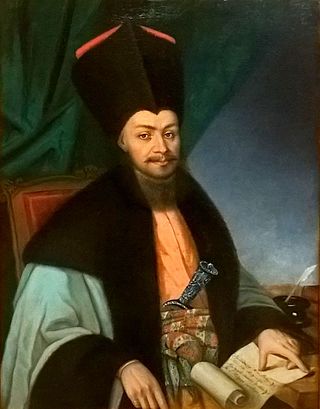 8
Ienăchiță Văcărescu was a Wallachian Romanian poet, historian, philologist, and boyar belonging to the Văcărescu family. A polyglot, he was able to speak Ancient and Modern Greek, Old Church...
8
Ienăchiță Văcărescu was a Wallachian Romanian poet, historian, philologist, and boyar belonging to the Văcărescu family. A polyglot, he was able to speak Ancient and Modern Greek, Old Church...
Marin Preda
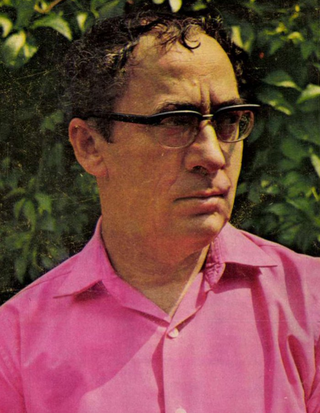 8
Marin Preda was a Romanian novelist, post-war writer and director of Cartea Românească publishing house. He is considered by some to be the most important novelist in post-World War II Romanian...
8
Marin Preda was a Romanian novelist, post-war writer and director of Cartea Românească publishing house. He is considered by some to be the most important novelist in post-World War II Romanian...
Constantin Negruzzi
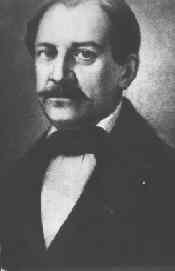 8
Constantin Negruzzi was a Romanian poet, novelist, translator, playwright, and politician.
8
Constantin Negruzzi was a Romanian poet, novelist, translator, playwright, and politician.
János Arany
 8
János Arany was a Hungarian poet, writer, translator and journalist. He is often said to be the "Shakespeare of ballads" – he wrote more than 102 ballads that have been translated into over 50...
8
János Arany was a Hungarian poet, writer, translator and journalist. He is often said to be the "Shakespeare of ballads" – he wrote more than 102 ballads that have been translated into over 50...
Gheorghe Pop de Băsești
 8
Gheorghe Pop de Băsești or George Pop de Băsești, also known under the nickname Badea Gheorghe or Badea George was an Imperial Austrian-born Romanian politician, philanthropist and patriot, who...
8
Gheorghe Pop de Băsești or George Pop de Băsești, also known under the nickname Badea Gheorghe or Badea George was an Imperial Austrian-born Romanian politician, philanthropist and patriot, who...
Gheorghe Țițeica
 8
Gheorghe Țițeica publishing as George or Georges Tzitzéica) was a Romanian mathematician who made important contributions in geometry. He is recognized as the founder of the Romanian school of...
8
Gheorghe Țițeica publishing as George or Georges Tzitzéica) was a Romanian mathematician who made important contributions in geometry. He is recognized as the founder of the Romanian school of...
Matei Millo
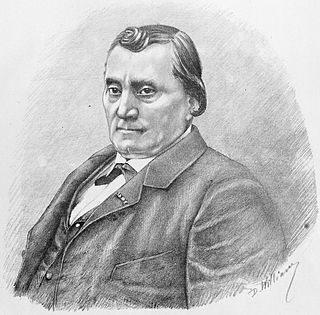 8
Matei Millo was a Moldavian, later Romanian stage actor and playwright.
8
Matei Millo was a Moldavian, later Romanian stage actor and playwright.
Mary, mother of Jesus
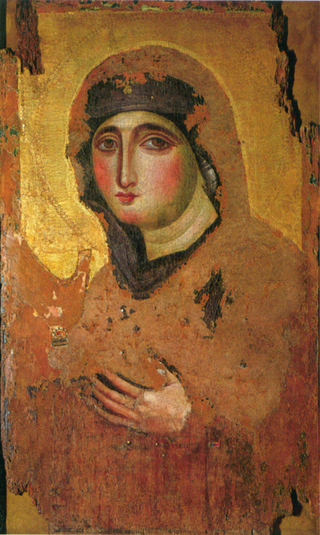 8
Mary was a first-century Jewish woman of Nazareth, the wife of Joseph and the mother of Jesus. She is a central figure of Christianity, venerated under various titles such as virgin or queen, many of...
8
Mary was a first-century Jewish woman of Nazareth, the wife of Joseph and the mother of Jesus. She is a central figure of Christianity, venerated under various titles such as virgin or queen, many of...
Coresi
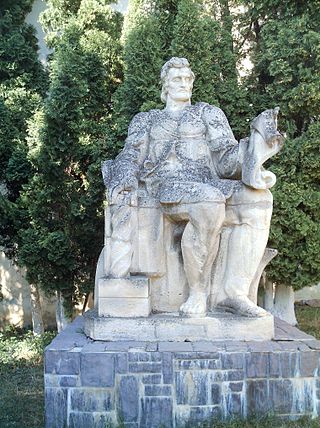 8
Coresi d. 1583, Brașov was a Romanian printer of the sixteenth century. He was the editor of some of the earliest printed books in the Romanian language.
8
Coresi d. 1583, Brașov was a Romanian printer of the sixteenth century. He was the editor of some of the earliest printed books in the Romanian language.
Ion Roată
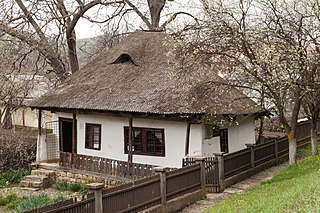 8
Ion Roată was a Moldavian, later Romanian peasant and political figure. Roată was representative in the Moldavian ad hoc Divan for the peasant electoral college of Putna County. With Partida...
8
Ion Roată was a Moldavian, later Romanian peasant and political figure. Roată was representative in the Moldavian ad hoc Divan for the peasant electoral college of Putna County. With Partida...
Sabines
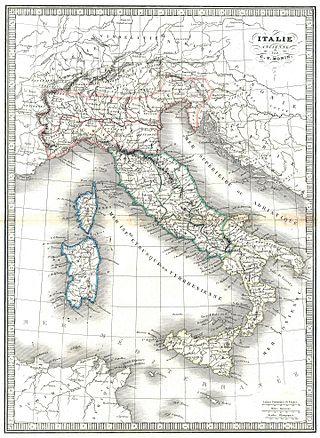 8
The Sabines were an Italic people who lived in the central Apennine Mountains of the ancient Italian Peninsula, also inhabiting Latium north of the Anio before the founding of Rome.
8
The Sabines were an Italic people who lived in the central Apennine Mountains of the ancient Italian Peninsula, also inhabiting Latium north of the Anio before the founding of Rome.
Ion Păun-Pincio
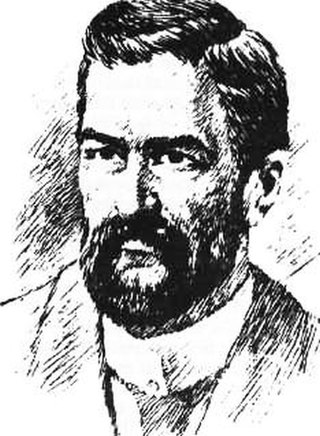 8
Ion Păun-Pincio was a Romanian poet.
8
Ion Păun-Pincio was a Romanian poet.
Nicolae Tonitza
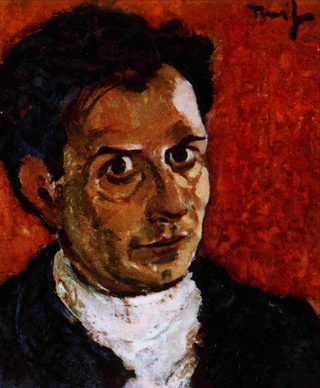 8
Nicolae Tonitza was a Romanian painter, engraver, lithographer, journalist and art critic. Drawing inspiration from Post-impressionism and Expressionism, he had a major role in introducing modernist...
8
Nicolae Tonitza was a Romanian painter, engraver, lithographer, journalist and art critic. Drawing inspiration from Post-impressionism and Expressionism, he had a major role in introducing modernist...
Ion Ionescu de la Brad
 7
Ion Ionescu de la Brad, born Ion Isăcescu, was a Moldavian, later Romanian revolutionary, agronomist, statistician, scholar, and writer.
7
Ion Ionescu de la Brad, born Ion Isăcescu, was a Moldavian, later Romanian revolutionary, agronomist, statistician, scholar, and writer.
Dinicu Golescu
 7
Dinicu Golescu, a member of the Golescu family of boyars, was a Wallachian Romanian man of letters, mostly noted for his travel writings and journalism.
7
Dinicu Golescu, a member of the Golescu family of boyars, was a Wallachian Romanian man of letters, mostly noted for his travel writings and journalism.
Șerban Cantacuzino
 7
Șerban Cantacuzino, was a Prince of Wallachia between 1678 and 1688.
7
Șerban Cantacuzino, was a Prince of Wallachia between 1678 and 1688.
Alexandru Averescu
 7
Alexandru Averescu was a Romanian marshal, diplomat and populist politician. A Romanian Armed Forces Commander during World War I, he served as Prime Minister of three separate cabinets. He first...
7
Alexandru Averescu was a Romanian marshal, diplomat and populist politician. A Romanian Armed Forces Commander during World War I, he served as Prime Minister of three separate cabinets. He first...
Badea Cârțan
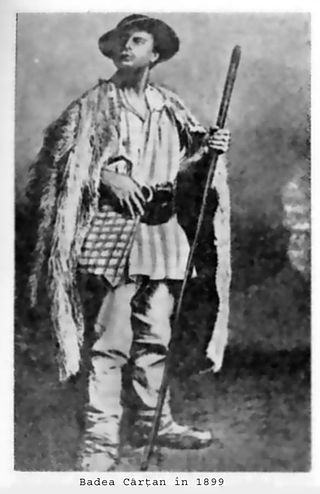 7
Badea Cârțan was a self-taught ethnic Romanian shepherd who fought for the independence of the Romanians of Transylvania, distributing Romanian-language books that he secretly brought from Romania to...
7
Badea Cârțan was a self-taught ethnic Romanian shepherd who fought for the independence of the Romanians of Transylvania, distributing Romanian-language books that he secretly brought from Romania to...
Veronica Micle
 7
Veronica Micle was an Austrian Empire-born Romanian poet, whose work was influenced by Romanticism. She is best known for her love affair with the poet Mihai Eminescu, one of the most important...
7
Veronica Micle was an Austrian Empire-born Romanian poet, whose work was influenced by Romanticism. She is best known for her love affair with the poet Mihai Eminescu, one of the most important...
Calistrat Hogaș
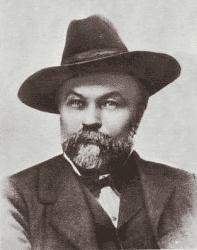 7
Calistrat Hogaș was a Moldavian, later Romanian prose writer. The son of a Tecuci priest, he studied at the University of Iași before beginning an over four-decade career as a high school teacher,...
7
Calistrat Hogaș was a Moldavian, later Romanian prose writer. The son of a Tecuci priest, he studied at the University of Iași before beginning an over four-decade career as a high school teacher,...
George Călinescu
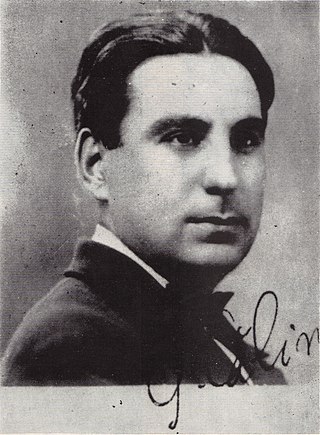 7
George Călinescu was a Romanian literary critic, historian, novelist, academician and journalist, and a writer of classicist and humanist tendencies. He is currently considered one of the most...
7
George Călinescu was a Romanian literary critic, historian, novelist, academician and journalist, and a writer of classicist and humanist tendencies. He is currently considered one of the most...
Frații Golești
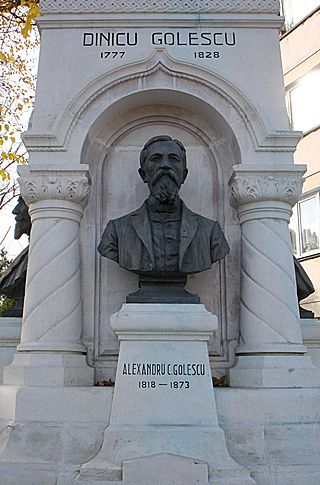 7
Frații Golești este denumirea colectivă sub care sunt desemnați cei patru fii pe care i-a avut marele ban din Țara Românească Dinicu Golescu cu soția sa Zoe Farfara:
Ștefan Golescu (1809-1874),...
7
Frații Golești este denumirea colectivă sub care sunt desemnați cei patru fii pe care i-a avut marele ban din Țara Românească Dinicu Golescu cu soția sa Zoe Farfara:
Ștefan Golescu (1809-1874),...
Radu of Afumați
 7
Radu of Afumați was Voivode (Prince) of Wallachia between January 1522 and January 1529. He began his reign with a victory against Mehmed-Bey, a pretender to Wallachia's throne. From 1522 to 1525 he...
7
Radu of Afumați was Voivode (Prince) of Wallachia between January 1522 and January 1529. He began his reign with a victory against Mehmed-Bey, a pretender to Wallachia's throne. From 1522 to 1525 he...
Marin Sorescu
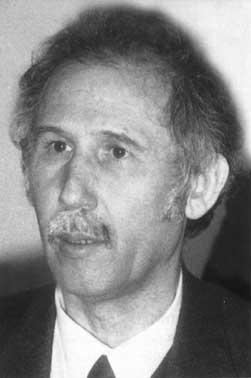 7
Marin Sorescu was a Romanian poet, playwright, and novelist.
7
Marin Sorescu was a Romanian poet, playwright, and novelist.
Nicolae Labiș
 7
Nicolae Labiș was a Romanian poet.
7
Nicolae Labiș was a Romanian poet.
Wolfgang Amadeus Mozart
 7
Wolfgang Amadeus Mozart was a prolific and influential composer of the Classical period. Despite his short life, his rapid pace of composition resulted in more than 800 works representing virtually...
7
Wolfgang Amadeus Mozart was a prolific and influential composer of the Classical period. Despite his short life, his rapid pace of composition resulted in more than 800 works representing virtually...
Constantin Noica
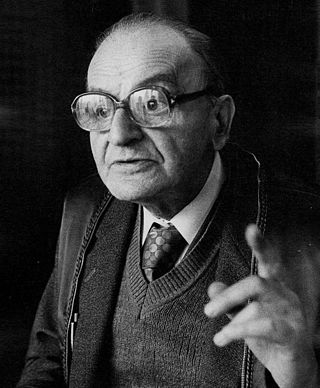 7
Constantin Noica was a Romanian philosopher, essayist and poet. His preoccupations were throughout all philosophy, from epistemology, philosophy of culture, axiology and philosophic anthropology to...
7
Constantin Noica was a Romanian philosopher, essayist and poet. His preoccupations were throughout all philosophy, from epistemology, philosophy of culture, axiology and philosophic anthropology to...
Hermann Oberth
 6
Hermann Julius Oberth was an Austro-Hungarian-born German physicist and rocket pioneer of Transylvanian Saxon descent. He is considered one of the founding fathers of rocketry and astronautics, along...
6
Hermann Julius Oberth was an Austro-Hungarian-born German physicist and rocket pioneer of Transylvanian Saxon descent. He is considered one of the founding fathers of rocketry and astronautics, along...
Ilarie Chendi
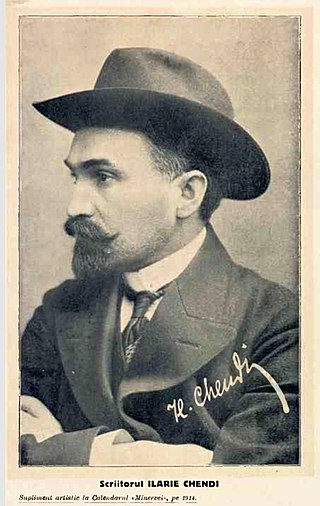 6
Ilarie Chendi was a Romanian literary critic.
6
Ilarie Chendi was a Romanian literary critic.
Traian Grozăvescu
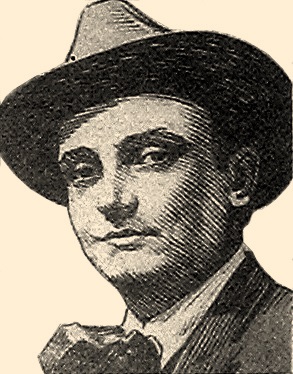 6
Traian Grozăvescu was an Austro-Hungarian-born Romanian operatic tenor. Born in Lugoj, he served in the Austro-Hungarian Army in World War I. In 1922, following a disagreement with the Cluj Opera, he...
6
Traian Grozăvescu was an Austro-Hungarian-born Romanian operatic tenor. Born in Lugoj, he served in the Austro-Hungarian Army in World War I. In 1922, following a disagreement with the Cluj Opera, he...
Burebista
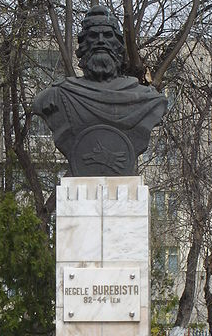 6
Burebista was the king of the Getae and Dacian tribes from 82/61 BC to 45/44 BC. He was the first king who successfully unified the tribes of the Dacian kingdom, which comprised the area located...
6
Burebista was the king of the Getae and Dacian tribes from 82/61 BC to 45/44 BC. He was the first king who successfully unified the tribes of the Dacian kingdom, which comprised the area located...
Áron Gábor
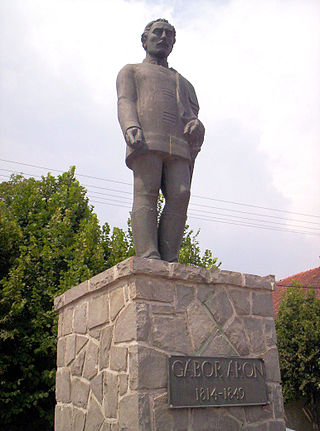 6
Áron Gábor was a Székely Hungarian artillery officer in the 1848-49 Hungarian Revolution. He became one of the leaders of Székely-Hungarian forces in Transylvania during the 1848 revolution against...
6
Áron Gábor was a Székely Hungarian artillery officer in the 1848-49 Hungarian Revolution. He became one of the leaders of Székely-Hungarian forces in Transylvania during the 1848 revolution against...
Louis Pasteur
 6
Louis Pasteur was a French chemist, pharmacist, and microbiologist renowned for his discoveries of the principles of vaccination, microbial fermentation, and pasteurization, the last of which was...
6
Louis Pasteur was a French chemist, pharmacist, and microbiologist renowned for his discoveries of the principles of vaccination, microbial fermentation, and pasteurization, the last of which was...
Petre Țuțea
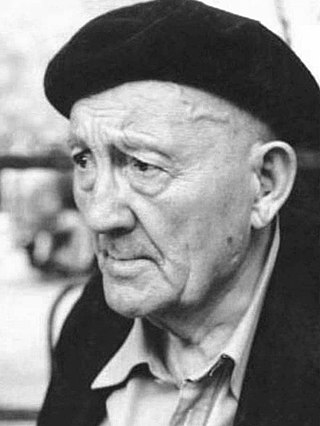 6
Petre Țuțea was a Romanian philosopher, journalist, and economist.
6
Petre Țuțea was a Romanian philosopher, journalist, and economist.
Andrew the Apostle
 6
Andrew the Apostle, also called Saint Andrew, was an apostle of Jesus. According to the New Testament, he was a fisherman and one of the Twelve Apostles chosen by Jesus. The title First-Called stems...
6
Andrew the Apostle, also called Saint Andrew, was an apostle of Jesus. According to the New Testament, he was a fisherman and one of the Twelve Apostles chosen by Jesus. The title First-Called stems...
Inocențiu Micu-Klein
 6
Ioan Inocențiu Micu-Klein, also known by his lay name Ioan Micu, was a Bishop of Făgăraș and Primate of the Romanian Greek Catholic Church from 1730 to his resignation in 1751. He played an...
6
Ioan Inocențiu Micu-Klein, also known by his lay name Ioan Micu, was a Bishop of Făgăraș and Primate of the Romanian Greek Catholic Church from 1730 to his resignation in 1751. He played an...
Panait Istrati
 6
Panait Istrati was a Romanian working class writer, who wrote in French and Romanian, nicknamed The Maxim Gorky of the Balkans. Istrati appears to be the first Romanian author explicitly depicting a...
6
Panait Istrati was a Romanian working class writer, who wrote in French and Romanian, nicknamed The Maxim Gorky of the Balkans. Istrati appears to be the first Romanian author explicitly depicting a...
Emil Gârleanu
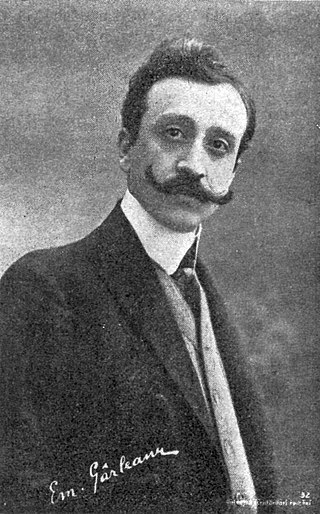 6
Emil Gârleanu was a Romanian prose writer.
6
Emil Gârleanu was a Romanian prose writer.
Frații Buzești
 6
Frații Buzești este denumirea comună sub care au intrat în istorie frații Radu Buzescu, Preda Buzescu și Stroe Buzescu.
6
Frații Buzești este denumirea comună sub care au intrat în istorie frații Radu Buzescu, Preda Buzescu și Stroe Buzescu.
Áron Márton
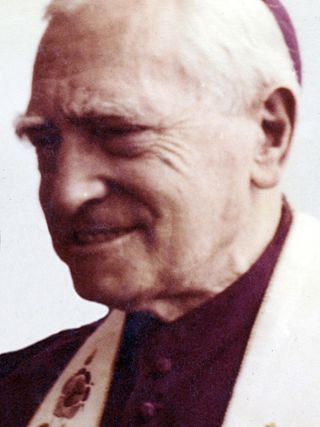 6
Áron Márton was an ethnic Hungarian Roman Catholic prelate who served as the Bishop of Alba Iulia from his appointment in late 1938 until his resignation in 1980. He served as a prelate during a...
6
Áron Márton was an ethnic Hungarian Roman Catholic prelate who served as the Bishop of Alba Iulia from his appointment in late 1938 until his resignation in 1980. He served as a prelate during a...
Neagoe Basarab
 6
Neagoe Basarab was the Voivode (Prince) of Wallachia between 1512 and 1521. Born into the boyar family of the Craiovești as the son of Pârvu Craiovescu or Basarab Țepeluș cel Tânăr, Neagoe Basarab,...
6
Neagoe Basarab was the Voivode (Prince) of Wallachia between 1512 and 1521. Born into the boyar family of the Craiovești as the son of Pârvu Craiovescu or Basarab Țepeluș cel Tânăr, Neagoe Basarab,...
Traian Moșoiu
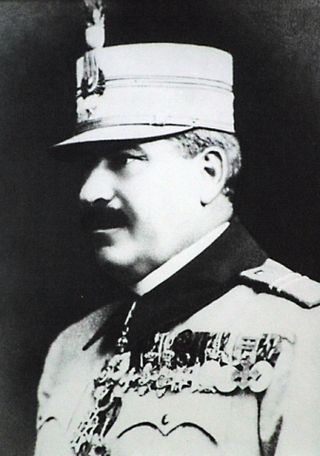 6
Traian Moșoiu was a Romanian general during World War I and the Hungarian–Romanian War. He held the posts of Minister of War in the Alexandru Vaida-Voevod cabinet, Minister of Communications and of...
6
Traian Moșoiu was a Romanian general during World War I and the Hungarian–Romanian War. He held the posts of Minister of War in the Alexandru Vaida-Voevod cabinet, Minister of Communications and of...
Gabriel Bethlen
 6
Gabriel Bethlen was Prince of Transylvania from 1613 to 1629 and Duke of Opole from 1622 to 1625. He was also King-elect of Hungary from 1620 to 1621, but he never took control of the whole kingdom....
6
Gabriel Bethlen was Prince of Transylvania from 1613 to 1629 and Duke of Opole from 1622 to 1625. He was also King-elect of Hungary from 1620 to 1621, but he never took control of the whole kingdom....
Zaharia Stancu
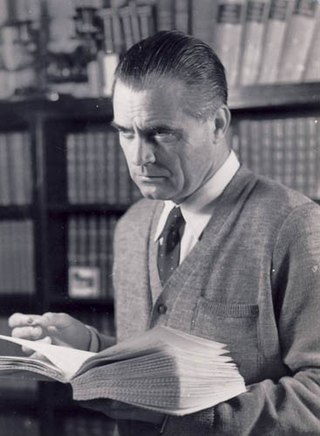 6
Zaharia Stancu was a Romanian prose writer, novelist, poet, and philosopher. He was also the director of the National Theatre Bucharest, the President of the Writers' Union of Romania, and a titular...
6
Zaharia Stancu was a Romanian prose writer, novelist, poet, and philosopher. He was also the director of the National Theatre Bucharest, the President of the Writers' Union of Romania, and a titular...
Doamna Stanca
 6
Doamna Stanca was a princess consort of Wallachia, Transylvania and Moldavia as the wife of Michael the Brave.
6
Doamna Stanca was a princess consort of Wallachia, Transylvania and Moldavia as the wife of Michael the Brave.
Alecu Donici
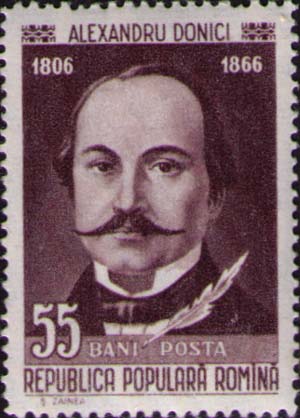 6
Alecu Donici was a Moldavian, later Romanian poet and translator.
6
Alecu Donici was a Moldavian, later Romanian poet and translator.
Nicolae Filimon
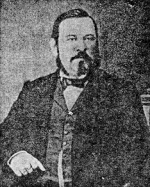 6
Nicolae Filimon was a Wallachian Romanian novelist and short-story writer, remembered as the author of the first Realist novel in Romanian literature, Ciocoii vechi şi noi, which was centered on the...
6
Nicolae Filimon was a Wallachian Romanian novelist and short-story writer, remembered as the author of the first Realist novel in Romanian literature, Ciocoii vechi şi noi, which was centered on the...
Ioan Cantacuzino
 6
Ioan I. Cantacuzino was a renowned Romanian physician and bacteriologist, a professor at the School of Medicine and Pharmacy of the University of Bucharest, and a titular member of the Romanian...
6
Ioan I. Cantacuzino was a renowned Romanian physician and bacteriologist, a professor at the School of Medicine and Pharmacy of the University of Bucharest, and a titular member of the Romanian...
Marie of Romania
 6
Marie was the last queen of Romania as the wife of King Ferdinand I.
6
Marie was the last queen of Romania as the wife of King Ferdinand I.
Preda Buzescu
 6
Preda Buzescu a fost mare postelnic sub Mihai Viteazul și a luat parte la evenimentele politice și militare importante ale domniei acestuia.
6
Preda Buzescu a fost mare postelnic sub Mihai Viteazul și a luat parte la evenimentele politice și militare importante ale domniei acestuia.
Constantin Stere
 6
Constantin G. Stere or Constantin Sterea was a Romanian writer, jurist, politician, ideologue of the Poporanist trend, and, in March 1906, co-founder of the literary magazine Viața Românească. One of...
6
Constantin G. Stere or Constantin Sterea was a Romanian writer, jurist, politician, ideologue of the Poporanist trend, and, in March 1906, co-founder of the literary magazine Viața Românească. One of...
John the Baptist
 6
John the Baptist was a Jewish preacher active in the area of the Jordan River in the early 1st century AD. He is also known as Saint John the Forerunner in Eastern Orthodoxy, John the Immerser in...
6
John the Baptist was a Jewish preacher active in the area of the Jordan River in the early 1st century AD. He is also known as Saint John the Forerunner in Eastern Orthodoxy, John the Immerser in...
Eugen Lovinescu
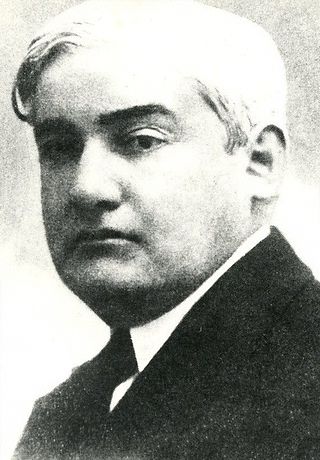 6
Eugen Lovinescu was a Romanian modernist literary historian, literary critic, academic, and novelist, who in 1919 established the Sburătorul literary club. He was the father of Monica Lovinescu, and...
6
Eugen Lovinescu was a Romanian modernist literary historian, literary critic, academic, and novelist, who in 1919 established the Sburătorul literary club. He was the father of Monica Lovinescu, and...
Alexandru Dimitrie Xenopol
 6
Alexandru Dimitrie Xenopol was a Romanian historian, philosopher, professor, economist, sociologist, and author. Among his many major accomplishments, he is the Romanian historian credited with...
6
Alexandru Dimitrie Xenopol was a Romanian historian, philosopher, professor, economist, sociologist, and author. Among his many major accomplishments, he is the Romanian historian credited with...
Elisabeth of Wied
 6
Elisabeth of Wied was the first queen of Romania as the wife of King Carol I from 15 March 1881 to 27 September 1914. She had been the princess consort of Romania since her marriage to then-Prince...
6
Elisabeth of Wied was the first queen of Romania as the wife of King Carol I from 15 March 1881 to 27 September 1914. She had been the princess consort of Romania since her marriage to then-Prince...
Spartacus
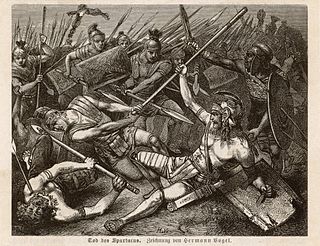 6
Spartacus was a Thracian gladiator (Thraex) who was one of the escaped slave leaders in the Third Servile War, a major slave uprising against the Roman Republic.
6
Spartacus was a Thracian gladiator (Thraex) who was one of the escaped slave leaders in the Third Servile War, a major slave uprising against the Roman Republic.
Octav Băncilă
 6
Octav Băncilă was a Romanian realist painter and left-wing activist. He was the brother of Sofia Nădejde, a feminist journalist, and the brother-in-law of Ioan Nădejde.
6
Octav Băncilă was a Romanian realist painter and left-wing activist. He was the brother of Sofia Nădejde, a feminist journalist, and the brother-in-law of Ioan Nădejde.
Gelou
 6
Gelou was the Vlach ruler of Transylvania at the time of the Hungarian conquest of the Carpathian Basin around 900 AD, according to the Gesta Hungarorum. Although the Gesta Hungarorum, which was...
6
Gelou was the Vlach ruler of Transylvania at the time of the Hungarian conquest of the Carpathian Basin around 900 AD, according to the Gesta Hungarorum. Although the Gesta Hungarorum, which was...
Traian Demetrescu
 6
Traian Rafael Radu Demetrescu was a Romanian poet, novelist and literary critic, considered one of the first symbolist authors in local literature. Influenced by French writers such as François...
6
Traian Rafael Radu Demetrescu was a Romanian poet, novelist and literary critic, considered one of the first symbolist authors in local literature. Influenced by French writers such as François...
Ioan Tăutu
 6
Ioan Tăutu a fost un mare logofăt moldovean în timpul domnitorilor Ștefan cel Mare (1457-1504) și Bogdan al III-lea cel Orb (1504-1517). A avut misiuni diplomatice în Polonia, Veneția și Turcia.
6
Ioan Tăutu a fost un mare logofăt moldovean în timpul domnitorilor Ștefan cel Mare (1457-1504) și Bogdan al III-lea cel Orb (1504-1517). A avut misiuni diplomatice în Polonia, Veneția și Turcia.
Strada Calomfirescu Radu
 5
Strada Calomfirescu Radu este situată în centrul istoric al municipiului București, în sectorul 3.
5
Strada Calomfirescu Radu este situată în centrul istoric al municipiului București, în sectorul 3.
Alexandru Papiu Ilarian
 5
Alexandru Papiu-Ilarian was a Romanian revolutionary, lawyer and historian.
5
Alexandru Papiu-Ilarian was a Romanian revolutionary, lawyer and historian.
Emil Cioran
 5
Emil Mihai Cioran was a Romanian philosopher, aphorist and essayist, who published works in both Romanian and French. His work has been noted for its pervasive philosophical pessimism, style, and...
5
Emil Mihai Cioran was a Romanian philosopher, aphorist and essayist, who published works in both Romanian and French. His work has been noted for its pervasive philosophical pessimism, style, and...
Demetrius of Thessaloniki
 5
Saint Demetrius of Thessalonica, also known as the Holy Great-Martyr Demetrius the Myroblyte, was a Greek Christian martyr of the early 4th century AD.
5
Saint Demetrius of Thessalonica, also known as the Holy Great-Martyr Demetrius the Myroblyte, was a Greek Christian martyr of the early 4th century AD.
Onisifor Ghibu
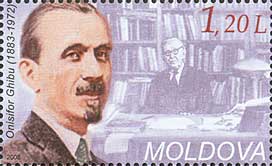 5
Onisifor Ghibu was a Romanian teacher of pedagogy, member of the Romanian Academy, and politician.
5
Onisifor Ghibu was a Romanian teacher of pedagogy, member of the Romanian Academy, and politician.
Luca Arbore
 5
Luca Arbore or Arbure was a Moldavian boyar, diplomat, and statesman, several times commander of the country's military. He first rose to prominence in 1486, during the rule of Stephen III, Prince of...
5
Luca Arbore or Arbure was a Moldavian boyar, diplomat, and statesman, several times commander of the country's military. He first rose to prominence in 1486, during the rule of Stephen III, Prince of...
Meșterul Manole
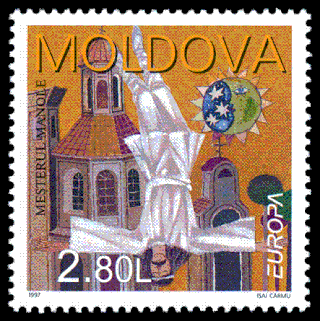 5
In Romanian mythology, Meșterul Manole was the chief architect of the Curtea de Argeș Monastery in Wallachia. The myth of the cathedral's construction is expressed in the folk poem Monastirea...
5
In Romanian mythology, Meșterul Manole was the chief architect of the Curtea de Argeș Monastery in Wallachia. The myth of the cathedral's construction is expressed in the folk poem Monastirea...
Ion Mihalache
 5
Ion Mihalache was a Romanian agrarian politician, the founder and leader of the Peasants' Party (PȚ) and a main figure of its successor, the National Peasants' Party (PNȚ).
5
Ion Mihalache was a Romanian agrarian politician, the founder and leader of the Peasants' Party (PȚ) and a main figure of its successor, the National Peasants' Party (PNȚ).
Ion Vidu
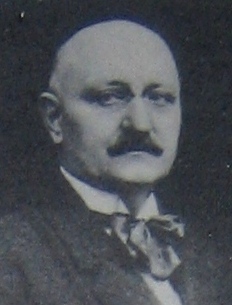 5
Ion Vidu, was a Romanian composer and choral conductor. Under his influence the small town of Lugoj, which up until that time had not that much in the way of artistic institutions, became a...
5
Ion Vidu, was a Romanian composer and choral conductor. Under his influence the small town of Lugoj, which up until that time had not that much in the way of artistic institutions, became a...
Gavriil Musicescu
 5
Gavriil Musicescu was a Romanian composer, conductor and musicologist, father of the pianist and musical pedagogue Florica Musicescu.
5
Gavriil Musicescu was a Romanian composer, conductor and musicologist, father of the pianist and musical pedagogue Florica Musicescu.
John Hunyadi
 5
John Hunyadi was a leading Hungarian military and political figure in the Kingdom of Hungary during the 15th century. According to most contemporary sources, he was the member of a noble family of...
5
John Hunyadi was a leading Hungarian military and political figure in the Kingdom of Hungary during the 15th century. According to most contemporary sources, he was the member of a noble family of...
Franz Liszt
 5
Franz Liszt was a Hungarian composer, virtuoso pianist, conductor and teacher of the Romantic period. With a diverse body of work spanning more than six decades, he is considered to be one of the...
5
Franz Liszt was a Hungarian composer, virtuoso pianist, conductor and teacher of the Romantic period. With a diverse body of work spanning more than six decades, he is considered to be one of the...
Károly Kós
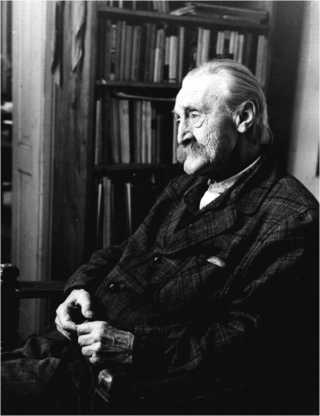 5
Károly Kós was a Hungarian architect, writer, illustrator, ethnologist and politician of Austria-Hungary and Romania.
5
Károly Kós was a Hungarian architect, writer, illustrator, ethnologist and politician of Austria-Hungary and Romania.
Victor Hugo
 5
Victor-Marie Hugo, vicomte Hugo, sometimes nicknamed the Ocean Man, was a French Romantic writer and politician. During a literary career that spanned more than sixty years, he wrote in a variety of...
5
Victor-Marie Hugo, vicomte Hugo, sometimes nicknamed the Ocean Man, was a French Romantic writer and politician. During a literary career that spanned more than sixty years, he wrote in a variety of...
Gheorghe Dima
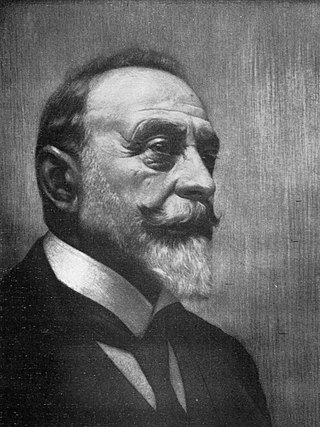 5
Gheorghe Dima a fost un compozitor, dirijor și pedagog român, membru de onoare al Academiei Române.
5
Gheorghe Dima a fost un compozitor, dirijor și pedagog român, membru de onoare al Academiei Române.
Samuil Micu-Klein
 5
Samuil Micu Klein was a Romanian Greek-Catholic theologian, historian, philologist and philosopher, a member of the Enlightenment-era movement of Transylvanian School. He is the author of Elementa...
5
Samuil Micu Klein was a Romanian Greek-Catholic theologian, historian, philologist and philosopher, a member of the Enlightenment-era movement of Transylvanian School. He is the author of Elementa...
Ion Ghica
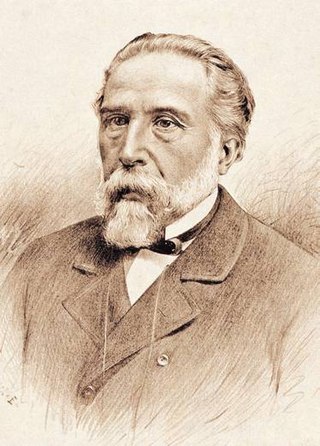 5
Ion Ghica was a Romanian statesman, mathematician, diplomat and politician, who was Prime Minister of Romania five times. He was a full member of the Romanian Academy and its president many times. He...
5
Ion Ghica was a Romanian statesman, mathematician, diplomat and politician, who was Prime Minister of Romania five times. He was a full member of the Romanian Academy and its president many times. He...
Grigore Antipa
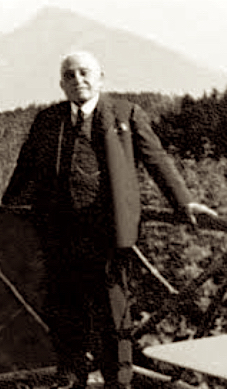 5
Grigore Antipa was a Romanian naturalist, zoologist, ichthyologist, ecologist, oceanologist, Darwinist biologist who studied the fauna of the Danube Delta and the Black Sea. Between 1892 and 1944 he...
5
Grigore Antipa was a Romanian naturalist, zoologist, ichthyologist, ecologist, oceanologist, Darwinist biologist who studied the fauna of the Danube Delta and the Black Sea. Between 1892 and 1944 he...
Émile Zola
 5
Émile Édouard Charles Antoine Zola was a French novelist, journalist, playwright, the best-known practitioner of the literary school of naturalism, and an important contributor to the development of...
5
Émile Édouard Charles Antoine Zola was a French novelist, journalist, playwright, the best-known practitioner of the literary school of naturalism, and an important contributor to the development of...
Ion Minulescu
 5
Ion Minulescu was a Romanian avant-garde poet, novelist, short story writer, journalist, literary critic, and playwright. Often publishing his works under the pseudonyms I. M. Nirvan and Koh-i-Noor,...
5
Ion Minulescu was a Romanian avant-garde poet, novelist, short story writer, journalist, literary critic, and playwright. Often publishing his works under the pseudonyms I. M. Nirvan and Koh-i-Noor,...
Gheorghe Șonțu
 5
Gheorghe Șonțu a fost un maior român, erou al Războiului de Independență (1877-1879). A căzut, în fruntea batalionului I din Regimentul 10 dorobanți pe care îl comanda, la S.V. 30 august/S.N. 11...
5
Gheorghe Șonțu a fost un maior român, erou al Războiului de Independență (1877-1879). A căzut, în fruntea batalionului I din Regimentul 10 dorobanți pe care îl comanda, la S.V. 30 august/S.N. 11...
Ion Budai-Deleanu
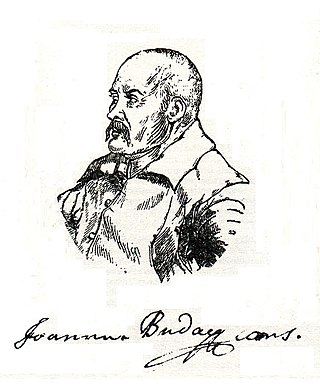 5
Ion Budai-Deleanu was a Romanian scholar, philologist, historian, poet, and a representative of the Transylvanian School.
5
Ion Budai-Deleanu was a Romanian scholar, philologist, historian, poet, and a representative of the Transylvanian School.
Romulus and Remus
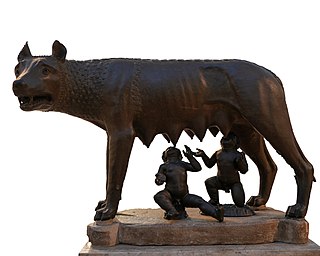 5
In Roman mythology, Romulus and Remus are twin brothers whose story tells of the events that led to the founding of the city of Rome and the Roman Kingdom by Romulus, following his fratricide of...
5
In Roman mythology, Romulus and Remus are twin brothers whose story tells of the events that led to the founding of the city of Rome and the Roman Kingdom by Romulus, following his fratricide of...
Dimitrie Anghel
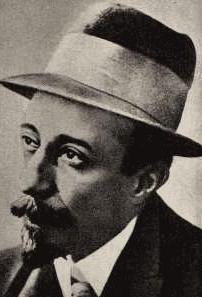 5
Dimitrie Anghel was a Romanian poet.
5
Dimitrie Anghel was a Romanian poet.
Jonel Perlea
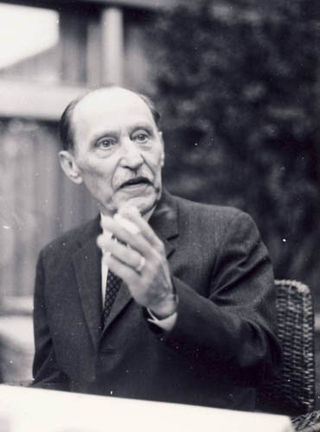 5
Ionel Perlea was a Romanian conductor particularly associated with the Italian and German opera repertories.
5
Ionel Perlea was a Romanian conductor particularly associated with the Italian and German opera repertories.
Traian Lalescu
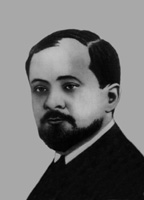 5
Traian Lalescu was a Romanian mathematician. His main focus was on integral equations and he contributed to work in the areas of functional equations, trigonometric series, mathematical physics,...
5
Traian Lalescu was a Romanian mathematician. His main focus was on integral equations and he contributed to work in the areas of functional equations, trigonometric series, mathematical physics,...
Constantin I. Nottara
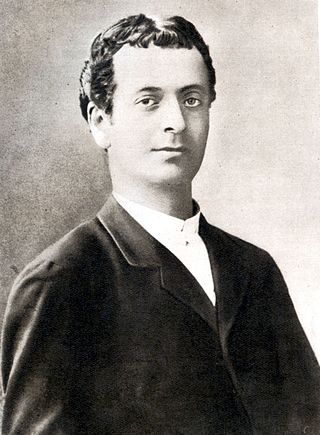 5
Constantin I. Nottara was a Romanian stage actor and director.
5
Constantin I. Nottara was a Romanian stage actor and director.
Giuseppe Verdi
 5
Giuseppe Fortunino Francesco Verdi was an Italian composer best known for his operas. He was born near Busseto to a provincial family of moderate means, receiving a musical education with the help of...
5
Giuseppe Fortunino Francesco Verdi was an Italian composer best known for his operas. He was born near Busseto to a provincial family of moderate means, receiving a musical education with the help of...
Ludwig van Beethoven
 5
Ludwig van Beethoven was a German composer and pianist. He is one of the most revered figures in the history of Western music; his works rank among the most performed of the classical music...
5
Ludwig van Beethoven was a German composer and pianist. He is one of the most revered figures in the history of Western music; his works rank among the most performed of the classical music...
Banul Mărăcine
 4
Banul Mărăcine or Mărăcină, common rendition of Barbu III Craiovescu, Barbu Mărăcine or Barbu Basarab, was a historical figure in Wallachia, who claimed the title of Prince. He was one of several...
4
Banul Mărăcine or Mărăcină, common rendition of Barbu III Craiovescu, Barbu Mărăcine or Barbu Basarab, was a historical figure in Wallachia, who claimed the title of Prince. He was one of several...
Camil Ressu
 4
Camil Ressu was a Romanian painter and academic, one of the most significant art figures of Romania.
4
Camil Ressu was a Romanian painter and academic, one of the most significant art figures of Romania.
Ion I. Câmpineanu
 4
Ion I. Câmpineanu was a Romanian statesman who served as the Minister of Justice from January 27, 1877, to September 23, 1877, Minister of Finance in two terms, from September 23, 1877, to November...
4
Ion I. Câmpineanu was a Romanian statesman who served as the Minister of Justice from January 27, 1877, to September 23, 1877, Minister of Finance in two terms, from September 23, 1877, to November...
Christian Tell
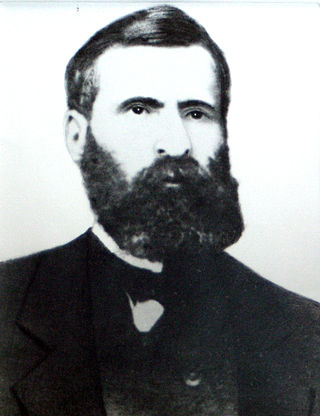 4
Christian Tell was a Transylvanian-born Wallachian and Romanian general and politician.
4
Christian Tell was a Transylvanian-born Wallachian and Romanian general and politician.
Theodor Pallady
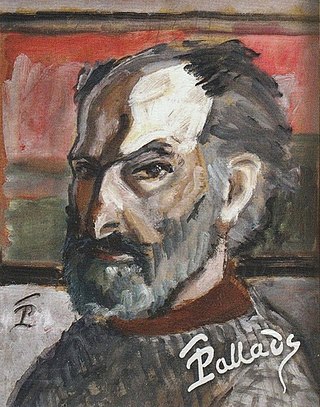 4
Theodor Pallady was a Romanian painter.
4
Theodor Pallady was a Romanian painter.
Constantin Mille
 4
Constantin Mille was a Romanian journalist, novelist, poet, lawyer, and socialist militant, as well as a prominent human rights activist. A Marxist for much of his life, Mille was noted for his vocal...
4
Constantin Mille was a Romanian journalist, novelist, poet, lawyer, and socialist militant, as well as a prominent human rights activist. A Marxist for much of his life, Mille was noted for his vocal...
Valeriu Braniște
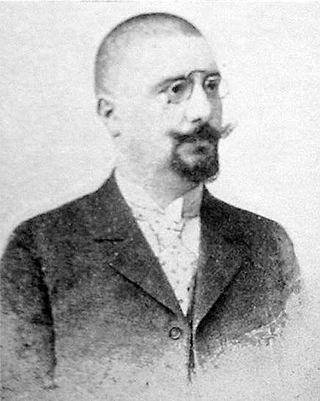 4
Valeriu Braniște a fost un publicist și om politic român, membru de onoare al Academiei Române.
4
Valeriu Braniște a fost un publicist și om politic român, membru de onoare al Academiei Române.
Varlaam Moțoc
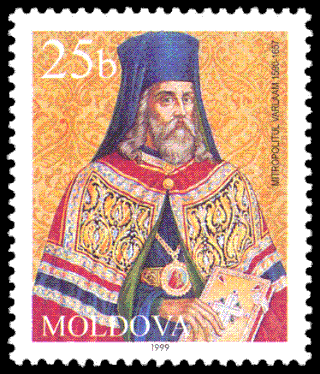 4
Varlaam Moţoc was the Metropolitan of Moldavia (1632-1653). He edited the Romanian Book of Learning in 1643.
4
Varlaam Moţoc was the Metropolitan of Moldavia (1632-1653). He edited the Romanian Book of Learning in 1643.
Gheorghe Grigore Cantacuzino
 4
Prince Gheorghe Grigore Cantacuzino, was a Romanian politician and lawyer, one of the leading Conservative Party policymakers. Among his political posts were minister of public instruction in...
4
Prince Gheorghe Grigore Cantacuzino, was a Romanian politician and lawyer, one of the leading Conservative Party policymakers. Among his political posts were minister of public instruction in...
János Bolyai
 4
János Bolyai or Johann Bolyai, was a Hungarian mathematician who developed absolute geometry—a geometry that includes both Euclidean geometry and hyperbolic geometry. The discovery of a consistent...
4
János Bolyai or Johann Bolyai, was a Hungarian mathematician who developed absolute geometry—a geometry that includes both Euclidean geometry and hyperbolic geometry. The discovery of a consistent...
Constantin Rădulescu-Motru
Pál Kinizsi
 4
Pál Kinizsi was a Hungarian general in the service of Hungarian army under king Matthias Corvinus. He was the Count of Temes County from 1484 and Captain-General of the Lower Parts. He was a general...
4
Pál Kinizsi was a Hungarian general in the service of Hungarian army under king Matthias Corvinus. He was the Count of Temes County from 1484 and Captain-General of the Lower Parts. He was a general...
Tudor Vianu
 4
Tudor Vianu was a Romanian literary critic, art critic, poet, philosopher, academic, and translator. He had a major role on the reception and development of Modernism in Romanian literature and art....
4
Tudor Vianu was a Romanian literary critic, art critic, poet, philosopher, academic, and translator. He had a major role on the reception and development of Modernism in Romanian literature and art....
Romulus
 4
Romulus was the legendary founder and first king of Rome. Various traditions attribute the establishment of many of Rome's oldest legal, political, religious, and social institutions to Romulus and...
4
Romulus was the legendary founder and first king of Rome. Various traditions attribute the establishment of many of Rome's oldest legal, political, religious, and social institutions to Romulus and...
Johann Sebastian Bach
 4
Johann Sebastian Bach was a German composer and musician of the late Baroque period. He is known for his prolific authorship of music across a variety of instruments and forms, including; orchestral...
4
Johann Sebastian Bach was a German composer and musician of the late Baroque period. He is known for his prolific authorship of music across a variety of instruments and forms, including; orchestral...
George Emil Palade
 4
George Emil Palade was a Romanian-American cell biologist. Described as "the most influential cell biologist ever", in 1974 he was awarded the Nobel Prize in Physiology and Medicine along with Albert...
4
George Emil Palade was a Romanian-American cell biologist. Described as "the most influential cell biologist ever", in 1974 he was awarded the Nobel Prize in Physiology and Medicine along with Albert...
Ovid Densusianu
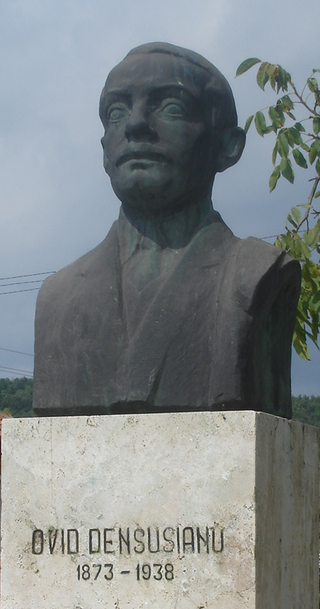 4
Ovid Densusianu was a Romanian poet, philologist, linguist, folklorist, literary historian and critic, chief of a poetry school, university professor and journalist. He is known for introducing new...
4
Ovid Densusianu was a Romanian poet, philologist, linguist, folklorist, literary historian and critic, chief of a poetry school, university professor and journalist. He is known for introducing new...
Anton Bacalbașa
 4
Anton Costache Bacalbașa was a Romanian political journalist, humorist and politician, chiefly remembered for his antimilitaristic series Moș Teacă. Together with his brothers Ioan and Constantin, he...
4
Anton Costache Bacalbașa was a Romanian political journalist, humorist and politician, chiefly remembered for his antimilitaristic series Moș Teacă. Together with his brothers Ioan and Constantin, he...
Nicolae Beldiceanu
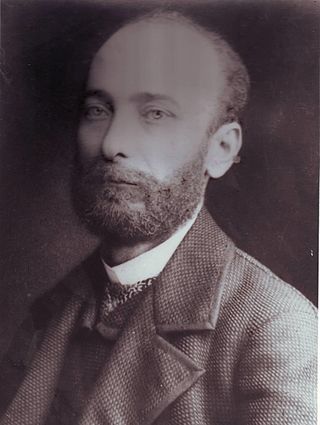 4
Nicolae Beldiceanu was a Romanian poet and novelist.
4
Nicolae Beldiceanu was a Romanian poet and novelist.
John III the Terrible
 4
John III the Terrible, also John III the Brave was Voivode of Moldavia between February 1572 and June 1574.
4
John III the Terrible, also John III the Brave was Voivode of Moldavia between February 1572 and June 1574.
Nicolae Filipescu
 4
Nicolae Filipescu was a Romanian politician.
4
Nicolae Filipescu was a Romanian politician.
Dimitrie Onciul
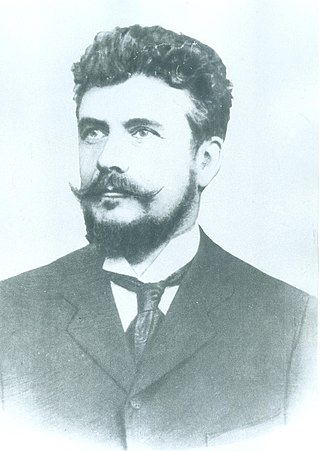 4
Dimitrie Onciul was a Romanian historian. He was a member of the Romanian Academy and its president from 1920 until his death in 1923.
4
Dimitrie Onciul was a Romanian historian. He was a member of the Romanian Academy and its president from 1920 until his death in 1923.
Aurel Popovici
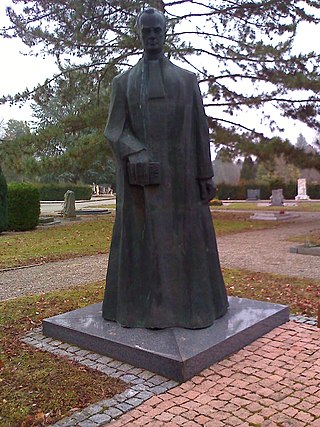 4
Aurel Constantin Popovici was an ethnic Romanian Austro-Hungarian lawyer and politician.
4
Aurel Constantin Popovici was an ethnic Romanian Austro-Hungarian lawyer and politician.
Balázs Orbán
 4
Balázs Orbán, Baron of Lengyelfalva was a Hungarian author, ethnographic collector, parliamentarian, correspondent member of the Hungarian Academy of Sciences (1887).
4
Balázs Orbán, Baron of Lengyelfalva was a Hungarian author, ethnographic collector, parliamentarian, correspondent member of the Hungarian Academy of Sciences (1887).
Petre Liciu
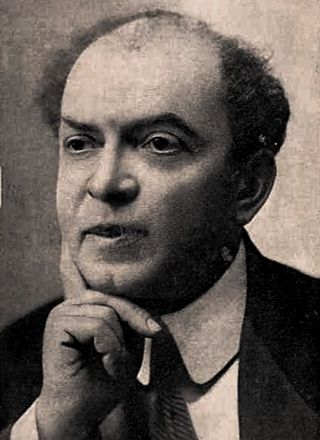 4
Petre Liciu was a Romanian stage actor.
4
Petre Liciu was a Romanian stage actor.
Vasile Voiculescu
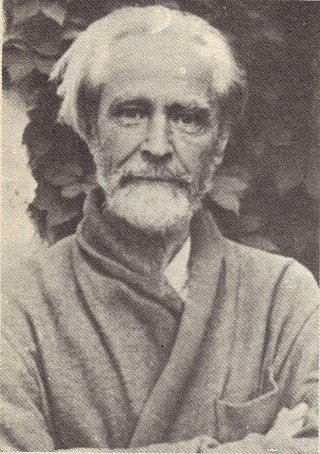 4
Vasile Voiculescu was a Romanian poet, short-story writer, playwright, and physician.
4
Vasile Voiculescu was a Romanian poet, short-story writer, playwright, and physician.
Ion Mincu
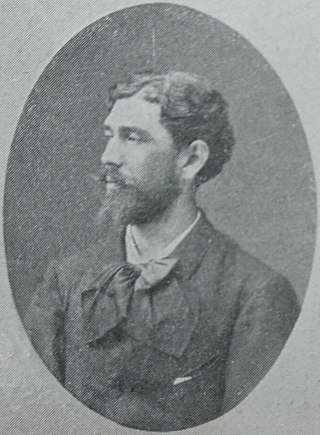 4
Ion Mincu was a Romanian architect known for having a leading role in the development of the Romanian Revival style. Most of his projects are located in Bucharest, including his main works, the...
4
Ion Mincu was a Romanian architect known for having a leading role in the development of the Romanian Revival style. Most of his projects are located in Bucharest, including his main works, the...
George Georgescu
 4
George Georgescu was a Romanian conductor. The moving force behind the Bucharest Philharmonic Orchestra for decades beginning shortly after World War I, a protégé of Artur Nikisch and a close...
4
George Georgescu was a Romanian conductor. The moving force behind the Bucharest Philharmonic Orchestra for decades beginning shortly after World War I, a protégé of Artur Nikisch and a close...
Patriarch Miron of Romania
Movilești
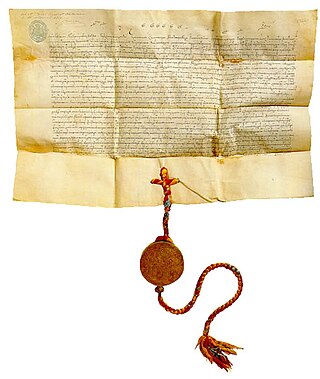 4
The House of Movileşti, also Movilă or Moghilă, was a family of boyars in the principality of Moldavia, which became related through marriage with the Muşatin family – the traditional House of...
4
The House of Movileşti, also Movilă or Moghilă, was a family of boyars in the principality of Moldavia, which became related through marriage with the Muşatin family – the traditional House of...
Cincinat Pavelescu
Elena Văcărescu
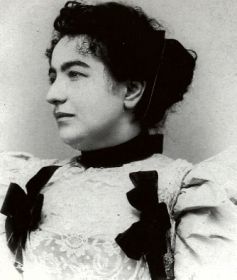 4
Elena Văcărescu, or Hélène Vacaresco, was a Romanian-French aristocrat writer, twice a laureate of the Académie française.
4
Elena Văcărescu, or Hélène Vacaresco, was a Romanian-French aristocrat writer, twice a laureate of the Académie française.
Leonardo da Vinci
 4
Leonardo di ser Piero da Vinci was an Italian polymath of the High Renaissance who was active as a painter, draughtsman, engineer, scientist, theorist, sculptor, and architect. While his fame...
4
Leonardo di ser Piero da Vinci was an Italian polymath of the High Renaissance who was active as a painter, draughtsman, engineer, scientist, theorist, sculptor, and architect. While his fame...
Giuseppe Garibaldi
 4
Giuseppe Maria Garibaldi was an Italian general, patriot, revolutionary and republican. He contributed to Italian unification (Risorgimento) and the creation of the Kingdom of Italy. He is considered...
4
Giuseppe Maria Garibaldi was an Italian general, patriot, revolutionary and republican. He contributed to Italian unification (Risorgimento) and the creation of the Kingdom of Italy. He is considered...
Nicolae Teclu
 4
Nicolae Teclu ; was a Romanian chemist, who gave his name to the worldwide-used "Teclu burner". He studied engineering and architecture, and then chemistry, continuing his career by becoming...
4
Nicolae Teclu ; was a Romanian chemist, who gave his name to the worldwide-used "Teclu burner". He studied engineering and architecture, and then chemistry, continuing his career by becoming...
Antal Nagy de Buda
 4
Antal Nagy de Buda or Antal Budai Nagy was a petty nobleman from Kolozs County, Transylvania, who led the first major peasant revolt in medieval Hungary in 1437. He died in the decisive battle during...
4
Antal Nagy de Buda or Antal Budai Nagy was a petty nobleman from Kolozs County, Transylvania, who led the first major peasant revolt in medieval Hungary in 1437. He died in the decisive battle during...
Maxim Gorky
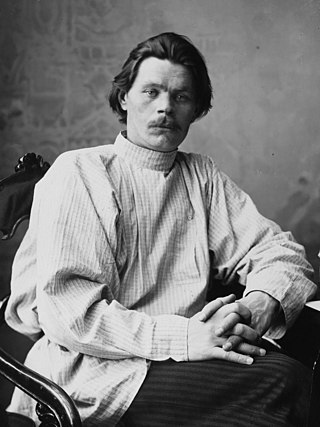 4
Alexei Maximovich Peshkov, popularly known as Maxim Gorky, was a Russian and Soviet writer and socialism proponent. He was nominated five times for the Nobel Prize in Literature. Before his success...
4
Alexei Maximovich Peshkov, popularly known as Maxim Gorky, was a Russian and Soviet writer and socialism proponent. He was nominated five times for the Nobel Prize in Literature. Before his success...
Dinu Lipatti
 4
Constantin "Dinu" Lipatti was a Romanian classical pianist and composer whose career was cut short by his death from effects related to Hodgkin's disease at age 33. He was elected posthumously to the...
4
Constantin "Dinu" Lipatti was a Romanian classical pianist and composer whose career was cut short by his death from effects related to Hodgkin's disease at age 33. He was elected posthumously to the...
Romulus Ladea
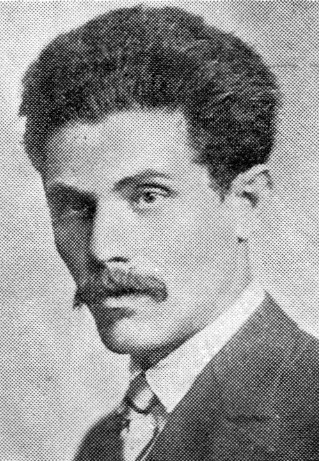 4
Romulus Ladea, cunoscut și ca Romul Ladea, a fost un sculptor român, profesor universitar la Cluj.
4
Romulus Ladea, cunoscut și ca Romul Ladea, a fost un sculptor român, profesor universitar la Cluj.
Stephen Bocskai
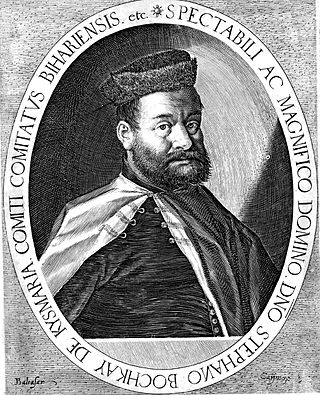 4
Stephen Bocskai or Bocskay was Prince of Transylvania and Hungary from 1605 to 1606. He was born to a Hungarian noble family. His father's estates were located in the eastern regions of the medieval...
4
Stephen Bocskai or Bocskay was Prince of Transylvania and Hungary from 1605 to 1606. He was born to a Hungarian noble family. His father's estates were located in the eastern regions of the medieval...
Tiberiu Brediceanu
 4
Tiberiu Brediceanu was a Romanian composer and a corresponding member of the Romanian Academy.
4
Tiberiu Brediceanu was a Romanian composer and a corresponding member of the Romanian Academy.
Anton Chekhov
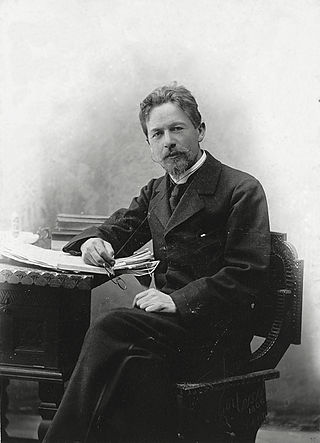 4
Anton Pavlovich Chekhov was a Russian playwright and physician. His career as a playwright produced four classics, and his best short stories are held in high esteem by writers and critics. Along...
4
Anton Pavlovich Chekhov was a Russian playwright and physician. His career as a playwright produced four classics, and his best short stories are held in high esteem by writers and critics. Along...
Gheorghe Sion
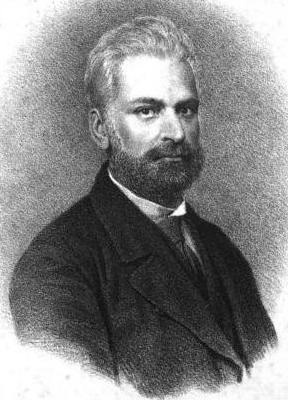 4
Gheorghe Sion was a Moldavian, later Romanian poet, playwright, translator and memoirist.
4
Gheorghe Sion was a Moldavian, later Romanian poet, playwright, translator and memoirist.
Galileo Galilei
 4
Galileo di Vincenzo Bonaiuti de' Galilei, commonly referred to as Galileo Galilei or simply Galileo, was an Italian astronomer, physicist and engineer, sometimes described as a polymath. He was born...
4
Galileo di Vincenzo Bonaiuti de' Galilei, commonly referred to as Galileo Galilei or simply Galileo, was an Italian astronomer, physicist and engineer, sometimes described as a polymath. He was born...
Armand Călinescu
 3
Armand Călinescu was a Romanian economist and politician, who served as 39th Prime Minister from March 1939 until his assassination six months later. He was a staunch opponent of the fascist Iron...
3
Armand Călinescu was a Romanian economist and politician, who served as 39th Prime Minister from March 1939 until his assassination six months later. He was a staunch opponent of the fascist Iron...
Elizabeth II
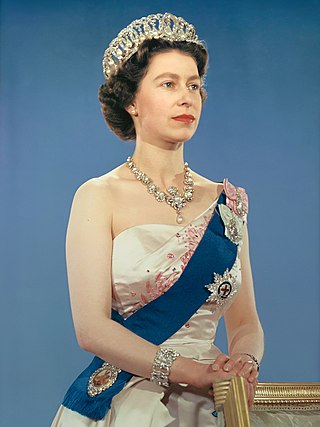 3
Elizabeth II was Queen of the United Kingdom and other Commonwealth realms from 6 February 1952 until her death in 2022. She was queen regnant of 32 sovereign states over the course of her lifetime...
3
Elizabeth II was Queen of the United Kingdom and other Commonwealth realms from 6 February 1952 until her death in 2022. She was queen regnant of 32 sovereign states over the course of her lifetime...
Henri Mathias Berthelot
 3
Henri Mathias Berthelot was a French general during World War I. He held an important staff position under Joseph Joffre, the French commander-in-chief, at the First Battle of the Marne, before later...
3
Henri Mathias Berthelot was a French general during World War I. He held an important staff position under Joseph Joffre, the French commander-in-chief, at the First Battle of the Marne, before later...
Ioan Maiorescu
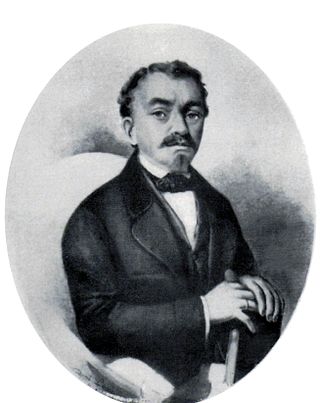 3
Ioan Maiorescu, născut Trifu, a fost un profesor român de istorie, director al Școlii Centrale din Craiova, agent diplomatic al guvernului Țării Românești pe lângă dieta germană de la Frankfurt pe...
3
Ioan Maiorescu, născut Trifu, a fost un profesor român de istorie, director al Școlii Centrale din Craiova, agent diplomatic al guvernului Țării Românești pe lângă dieta germană de la Frankfurt pe...
Constantin Prezan
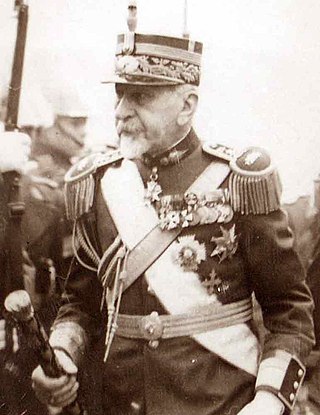 3
Constantin Prezan was a Romanian general during World War I. In 1930 he was given the honorary title of Marshal of Romania, as a recognition of his merits during his command of the Northern Army and...
3
Constantin Prezan was a Romanian general during World War I. In 1930 he was given the honorary title of Marshal of Romania, as a recognition of his merits during his command of the Northern Army and...
Ion Nistor
 3
Ion I. Nistor was a Romanian historian and politician. He was a titular member of the Romanian Academy from 1915 and a professor at the universities of Cernăuți and Bucharest, while also serving as...
3
Ion I. Nistor was a Romanian historian and politician. He was a titular member of the Romanian Academy from 1915 and a professor at the universities of Cernăuți and Bucharest, while also serving as...
Mihail Sebastian
 3
Mihail Sebastian was a Romanian playwright, essayist, journalist and novelist.
3
Mihail Sebastian was a Romanian playwright, essayist, journalist and novelist.
Georges Clemenceau
 3
Georges Benjamin Clemenceau was a French statesman who served as Prime Minister of France from 1906 to 1909 and again from 1917 until 1920. A physician turned journalist, he played a central role in...
3
Georges Benjamin Clemenceau was a French statesman who served as Prime Minister of France from 1906 to 1909 and again from 1917 until 1920. A physician turned journalist, he played a central role in...
Udrea Băleanu
 3
Udrea Băleanu, also known as Băleanul, Banul Udrea, or Udrea of Băleni, was a Wallachian and Moldavian statesman and military commander. He was especially noted as a key supporter, and alleged uncle,...
3
Udrea Băleanu, also known as Băleanul, Banul Udrea, or Udrea of Băleni, was a Wallachian and Moldavian statesman and military commander. He was especially noted as a key supporter, and alleged uncle,...
Ileana Cosânzeana
 3
Ileana Cosânzeana is a figure in Romanian mythology. She is represented as a beautiful good-natured princess or daughter of an Emperor, or described as a fairy with immense powers.
3
Ileana Cosânzeana is a figure in Romanian mythology. She is represented as a beautiful good-natured princess or daughter of an Emperor, or described as a fairy with immense powers.
Făt-Frumos
 3
Făt-Frumos is a knight hero in Romanian folklore, usually present in fairy tales.
3
Făt-Frumos is a knight hero in Romanian folklore, usually present in fairy tales.
Pyotr Ilyich Tchaikovsky
 3
Pyotr Ilyich Tchaikovsky was a Russian composer of the Romantic period. He was the first Russian composer whose music would make a lasting impression internationally. Tchaikovsky wrote some of the...
3
Pyotr Ilyich Tchaikovsky was a Russian composer of the Romantic period. He was the first Russian composer whose music would make a lasting impression internationally. Tchaikovsky wrote some of the...
Edgar Quinet
 3
Edgar Quinet was a French historian and intellectual.
3
Edgar Quinet was a French historian and intellectual.
Ioan Bob
 3
Ioan Bob, was Bishop of Făgăraş and Primate of the Romanian Greek Catholic Church from 1783 to his death in 1830.
3
Ioan Bob, was Bishop of Făgăraş and Primate of the Romanian Greek Catholic Church from 1783 to his death in 1830.
Sándor Kőrösi Csoma
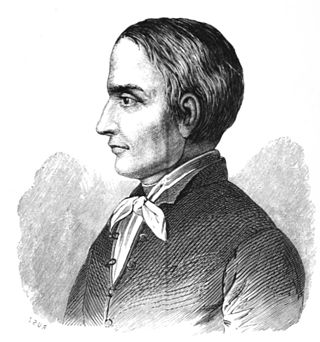 3
Sándor Csoma de Kőrös was a Hungarian philologist and Orientalist, author of the first Tibetan–English dictionary and grammar book. He was called Phyi-glin-gi-grwa-pa in Tibetan, meaning "the foreign...
3
Sándor Csoma de Kőrös was a Hungarian philologist and Orientalist, author of the first Tibetan–English dictionary and grammar book. He was called Phyi-glin-gi-grwa-pa in Tibetan, meaning "the foreign...
Martin Luther
 3
Martin Luther was a German priest, theologian, author, hymnwriter, professor, and Augustinian friar. Luther was the seminal figure of the Protestant Reformation, and his theological beliefs form the...
3
Martin Luther was a German priest, theologian, author, hymnwriter, professor, and Augustinian friar. Luther was the seminal figure of the Protestant Reformation, and his theological beliefs form the...
Gheorghe Avramescu
 3
Gheorghe Avramescu was a Romanian Lieutenant General during World War II. In 1945, he was arrested by the NKVD on the Slovakian front and died in custody the next day.
3
Gheorghe Avramescu was a Romanian Lieutenant General during World War II. In 1945, he was arrested by the NKVD on the Slovakian front and died in custody the next day.
Michael I of Romania
 3
Michael I was the last king of Romania, reigning from 20 July 1927 to 8 June 1930 and again from 6 September 1940 until his forced abdication on 30 December 1947.
3
Michael I was the last king of Romania, reigning from 20 July 1927 to 8 June 1930 and again from 6 September 1940 until his forced abdication on 30 December 1947.
Imre Madách
 3
Imre Madách de Sztregova et Kelecsény was a Hungarian aristocrat, writer, poet, lawyer and politician. His major work is The Tragedy of Man. It is a dramatic poem approximately 4000 lines long, which...
3
Imre Madách de Sztregova et Kelecsény was a Hungarian aristocrat, writer, poet, lawyer and politician. His major work is The Tragedy of Man. It is a dramatic poem approximately 4000 lines long, which...
Eugeniu Carada
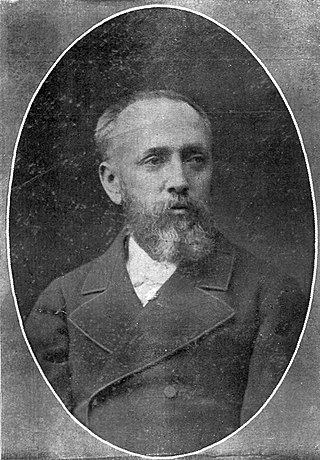 3
Eugeniu Carada a fost un economist politic și scriitor român, fondatorul Băncii Naționale a României;
3
Eugeniu Carada a fost un economist politic și scriitor român, fondatorul Băncii Naționale a României;
Ion Agârbiceanu
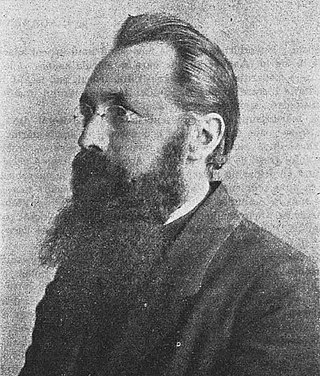 3
Ion Agârbiceanu was an Austro-Hungarian-born Romanian writer, journalist, politician, theologian and Greek-Catholic priest. Born among the Romanian peasant class of Transylvania, he was originally an...
3
Ion Agârbiceanu was an Austro-Hungarian-born Romanian writer, journalist, politician, theologian and Greek-Catholic priest. Born among the Romanian peasant class of Transylvania, he was originally an...
Ion Țuculescu
 3
Ion Ţuculescu was a Romanian expressionist and abstract oil painter, although professionally he worked as a biologist and physician. His artwork became well-known posthumously, when, in the spring of...
3
Ion Ţuculescu was a Romanian expressionist and abstract oil painter, although professionally he worked as a biologist and physician. His artwork became well-known posthumously, when, in the spring of...
Virgil Madgearu
 3
Virgil Traian N. Madgearu was a Romanian economist, sociologist, and left-wing politician, prominent member and main theorist of the Peasants' Party and of its successor, the National Peasants' Party...
3
Virgil Traian N. Madgearu was a Romanian economist, sociologist, and left-wing politician, prominent member and main theorist of the Peasants' Party and of its successor, the National Peasants' Party...
Aron Cotruș
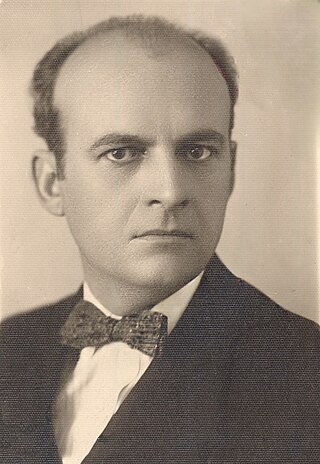 3
Aron Cotruș was a Romanian poet, diplomat, and member of the fascist Iron Guard.
3
Aron Cotruș was a Romanian poet, diplomat, and member of the fascist Iron Guard.
Barbu Lăzăreanu
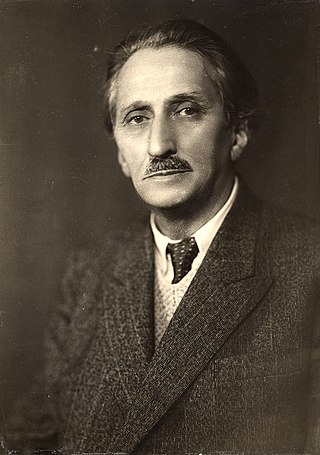 3
Barbu Lăzăreanu was a Romanian literary historian, bibliographer, and left-wing activist. Of Romanian Jewish background, he became noted for both his social criticism and his lyrical pieces while...
3
Barbu Lăzăreanu was a Romanian literary historian, bibliographer, and left-wing activist. Of Romanian Jewish background, he became noted for both his social criticism and his lyrical pieces while...
Ștefan Odobleja
 3
Ștefan Odobleja was a Romanian physician and scientist of cybernetics and artificial intelligence.
3
Ștefan Odobleja was a Romanian physician and scientist of cybernetics and artificial intelligence.
Corneliu Baba
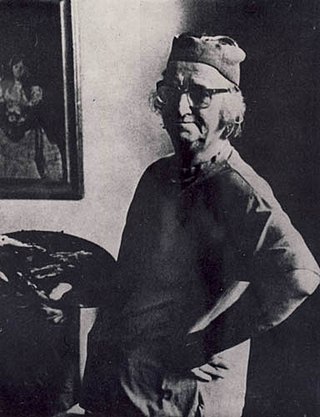 3
Corneliu Baba was a Romanian painter, primarily a portraitist, but also known as a genre painter and an illustrator of books.
3
Corneliu Baba was a Romanian painter, primarily a portraitist, but also known as a genre painter and an illustrator of books.
Nicolae Bolcaș
 3
Nicolae Bolcaș a fost un deputat în Marea Adunare Națională de la Alba Iulia, organismul legislativ reprezentativ al „tuturor românilor din Transilvania, Banat și Țara Ungurească”, cel care a adoptat...
3
Nicolae Bolcaș a fost un deputat în Marea Adunare Națională de la Alba Iulia, organismul legislativ reprezentativ al „tuturor românilor din Transilvania, Banat și Țara Ungurească”, cel care a adoptat...
Richard Wagner
 3
Wilhelm Richard Wagner was a German composer, theatre director, polemicist, and conductor who is chiefly known for his operas. Unlike most opera composers, Wagner wrote both the libretto and the...
3
Wilhelm Richard Wagner was a German composer, theatre director, polemicist, and conductor who is chiefly known for his operas. Unlike most opera composers, Wagner wrote both the libretto and the...
Virgil
 3
Publius Vergilius Maro, usually called Virgil or Vergil in English, was an ancient Roman poet of the Augustan period. He composed three of the most famous poems in Latin literature: the Eclogues, the...
3
Publius Vergilius Maro, usually called Virgil or Vergil in English, was an ancient Roman poet of the Augustan period. He composed three of the most famous poems in Latin literature: the Eclogues, the...
Iacob Heraclid
 3
Iacob Heraclid, born Basilicò and also known as Iacobus Heraclides, Heraclid Despotul, or Despot Vodă, was a Greek Maltese soldier, adventurer and intellectual, who reigned as Prince of Moldavia from...
3
Iacob Heraclid, born Basilicò and also known as Iacobus Heraclides, Heraclid Despotul, or Despot Vodă, was a Greek Maltese soldier, adventurer and intellectual, who reigned as Prince of Moldavia from...
Constantin Daniel
 3
Constantin Daniel a fost un medic psihiatru și orientalist român de origine evreiască. Unul dintre promotorii ergoterapiei în România. Preocupări în domeniul vechilor civilizații orientale. Traduceri...
3
Constantin Daniel a fost un medic psihiatru și orientalist român de origine evreiască. Unul dintre promotorii ergoterapiei în România. Preocupări în domeniul vechilor civilizații orientale. Traduceri...
Simion Mehedinți
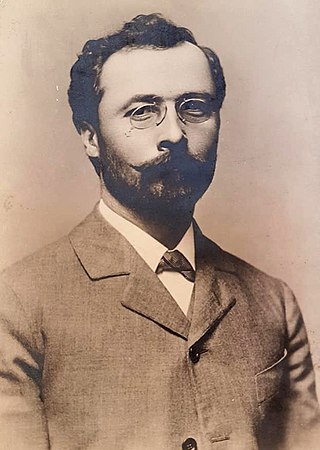 3
Simion Mehedinți was a Romanian geographer, the founding father of modern Romanian geography, and a titular member of the Romanian Academy. A figure of importance in the Junimea literary club, he was...
3
Simion Mehedinți was a Romanian geographer, the founding father of modern Romanian geography, and a titular member of the Romanian Academy. A figure of importance in the Junimea literary club, he was...
Constantin Brătescu
 3
Constantin Brătescu was a Romanian major-general during World War II.
3
Constantin Brătescu was a Romanian major-general during World War II.
Saint Anne
 3
According to apocrypha, as well as Christian and Islamic tradition, Saint Anne was the mother of Mary, the wife of Joachim and the maternal grandmother of Jesus. Mary's mother is not named in the...
3
According to apocrypha, as well as Christian and Islamic tradition, Saint Anne was the mother of Mary, the wife of Joachim and the maternal grandmother of Jesus. Mary's mother is not named in the...
Aurel Lazăr
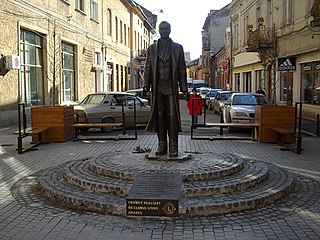 3
Aurel Lazăr a fost un avocat român din Oradea, membru al Partidului Național Român din Transilvania, Banat și Părțile Ungurene, deputat în Marea Adunare Națională de la Alba Iulia, organismul...
3
Aurel Lazăr a fost un avocat român din Oradea, membru al Partidului Național Român din Transilvania, Banat și Părțile Ungurene, deputat în Marea Adunare Națională de la Alba Iulia, organismul...
Johannes Honter
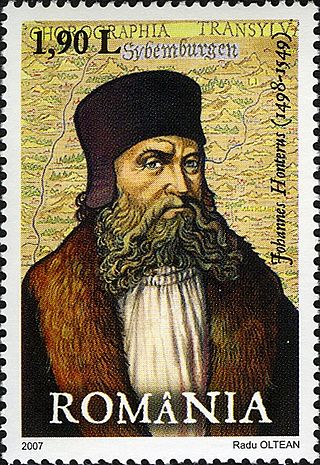 3
Johannes Honter was a Transylvanian Saxon, renaissance humanist, Protestant reformer, and theologian. Honter is best known for his geographic and cartographic publishing activity, as well as for...
3
Johannes Honter was a Transylvanian Saxon, renaissance humanist, Protestant reformer, and theologian. Honter is best known for his geographic and cartographic publishing activity, as well as for...
Constantin Pantazi
 3
Constantin Pantazi a fost un general de armată român și ministru al apărării în perioada 23 ianuarie 1942 - 23 august 1944. A fost unul din cei mai fideli adepți ai ex-generalului Ion Antonescu....
3
Constantin Pantazi a fost un general de armată român și ministru al apărării în perioada 23 ianuarie 1942 - 23 august 1944. A fost unul din cei mai fideli adepți ai ex-generalului Ion Antonescu....
Petrache Poenaru
 3
Petrache Poenaru was a Romanian inventor.
3
Petrache Poenaru was a Romanian inventor.
Aristizza Romanescu
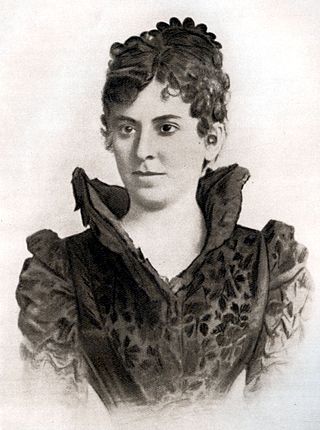 3
Aristizza Romanescu was a Romanian stage actress, active 1872–1918.
3
Aristizza Romanescu was a Romanian stage actress, active 1872–1918.
Doamna Chiajna
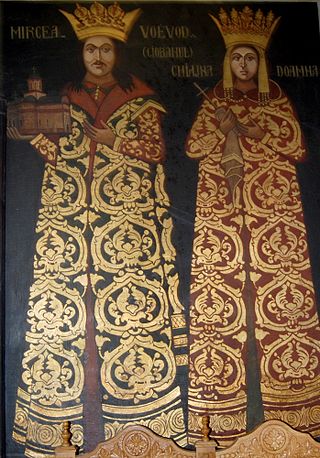 3
Doamna Chiajna (1525–1588) was a Princess consort of Wallachia. She was married to Mircea the Shepherd. She was regent in Wallachia from 1559 to 1575.
3
Doamna Chiajna (1525–1588) was a Princess consort of Wallachia. She was married to Mircea the Shepherd. She was regent in Wallachia from 1559 to 1575.
Petru Cercel
 3
Petru II Cercel was a Voivode (Prince) of Wallachia from 1583 to 1585, legitimate son to Pătrașcu cel Bun and alleged half-brother of Mihai Viteazul. A polyglot and a minor figure as a poet, Petru is...
3
Petru II Cercel was a Voivode (Prince) of Wallachia from 1583 to 1585, legitimate son to Pătrașcu cel Bun and alleged half-brother of Mihai Viteazul. A polyglot and a minor figure as a poet, Petru is...
Maria Oltea
 3
Maria Oltea cunoscută și sub numele de Doamna Oltea a fost mama lui Ștefan cel Mare, fiind înmormântată la Mănăstirea Probota. Nu se știe cu certitudine dacă a fost sau nu oficial soția domnitorului...
3
Maria Oltea cunoscută și sub numele de Doamna Oltea a fost mama lui Ștefan cel Mare, fiind înmormântată la Mănăstirea Probota. Nu se știe cu certitudine dacă a fost sau nu oficial soția domnitorului...
Constantin Tănase
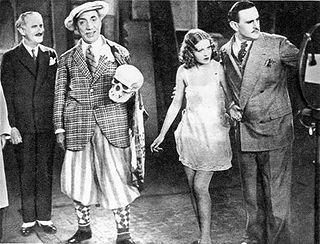 3
Constantin Tănase was a Romanian actor and writer for stage, a key figure in the revue style of theater in Romania.
3
Constantin Tănase was a Romanian actor and writer for stage, a key figure in the revue style of theater in Romania.
Maria Tănase
 3
Maria Tănase was a Romanian singer and actress. Her music ranged from traditional Romanian music to romance, tango, chanson, and operetta.
3
Maria Tănase was a Romanian singer and actress. Her music ranged from traditional Romanian music to romance, tango, chanson, and operetta.
Sextil Pușcariu
 3
Sextil Iosif Pușcariu was an Austro-Hungarian-born Romanian linguist and philologist, also known for his involvement in administrative and party politics. A native of Brașov educated in France and...
3
Sextil Iosif Pușcariu was an Austro-Hungarian-born Romanian linguist and philologist, also known for his involvement in administrative and party politics. A native of Brașov educated in France and...
Radu Șerban
 3
Radu Șerban was a Wallachian nobleman who reigned as the principality's voivode during two periods from 1602 to 1610 and during 1611. A supposed descendant of Neagoe Basarab, he attained high office...
3
Radu Șerban was a Wallachian nobleman who reigned as the principality's voivode during two periods from 1602 to 1610 and during 1611. A supposed descendant of Neagoe Basarab, he attained high office...
Victor Deleu
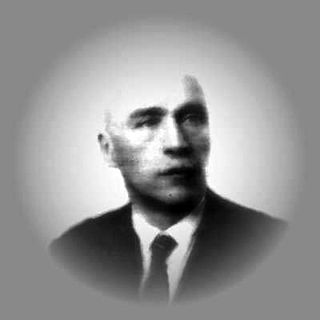 3
Victor Deleu was a politician from Romania.
3
Victor Deleu was a politician from Romania.
Henry Ford
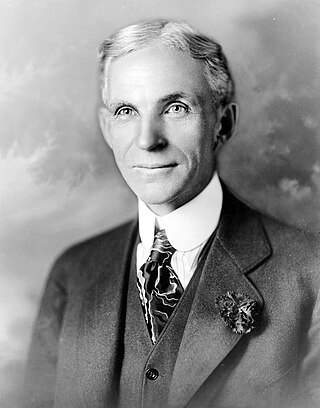 3
Henry Ford was an American industrialist and business magnate. As the founder of the Ford Motor Company he is credited as a pioneer in making automobiles affordable for middle-class Americans through...
3
Henry Ford was an American industrialist and business magnate. As the founder of the Ford Motor Company he is credited as a pioneer in making automobiles affordable for middle-class Americans through...
Veniamin Costache
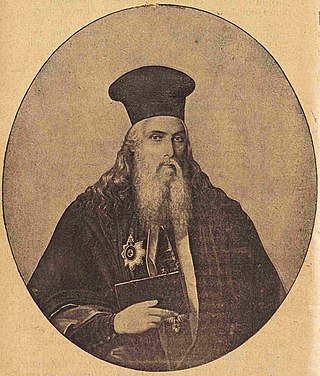 3
Veniamin Costachi a fost un cărturar și traducător român, mitropolit în Țara Moldovei.
3
Veniamin Costachi a fost un cărturar și traducător român, mitropolit în Țara Moldovei.
Alexander Pushkin
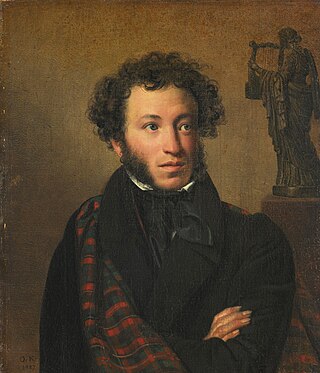 3
Alexander Sergeyevich Pushkin was a Russian poet, playwright, and novelist of the Romantic era. He is considered by many to be the greatest Russian poet, as well as the founder of modern Russian...
3
Alexander Sergeyevich Pushkin was a Russian poet, playwright, and novelist of the Romantic era. He is considered by many to be the greatest Russian poet, as well as the founder of modern Russian...
Alexandru Macedonski
 3
Alexandru Macedonski was a Romanian poet, novelist, dramatist and literary critic, known especially for having promoted French Symbolism in his native country, and for leading the Romanian Symbolist...
3
Alexandru Macedonski was a Romanian poet, novelist, dramatist and literary critic, known especially for having promoted French Symbolism in his native country, and for leading the Romanian Symbolist...
Ștefan Procopiu
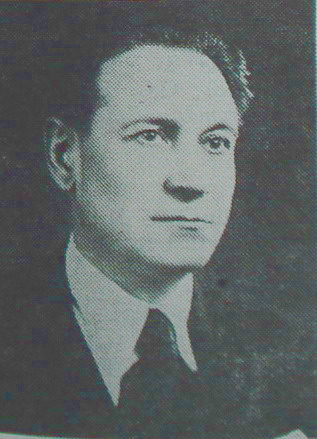 3
Ștefan Procopiu was a Romanian physicist and a titular member of the Romanian Academy.
3
Ștefan Procopiu was a Romanian physicist and a titular member of the Romanian Academy.
Toma Caragiu
 3
Toma Caragiu was a Romanian theatre, television and film actor.
3
Toma Caragiu was a Romanian theatre, television and film actor.
Petre Dulfu
 3
Petre Dulfu was an Imperial Austrian-born Romanian poet, translator and playwright.
3
Petre Dulfu was an Imperial Austrian-born Romanian poet, translator and playwright.
Iuliu Hossu
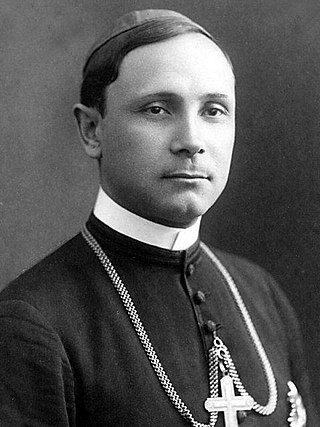 3
Iuliu Hossu was a Romanian Greek-Catholic prelate who served as the Bishop of Cluj-Gherla. Pope Paul VI elevated Hossu to the rank of cardinal in pectore, that is, secretly, in 1969 but did not...
3
Iuliu Hossu was a Romanian Greek-Catholic prelate who served as the Bishop of Cluj-Gherla. Pope Paul VI elevated Hossu to the rank of cardinal in pectore, that is, secretly, in 1969 but did not...
Mór Jókai
 3
Móricz Jókay of Ásva, known as Mór Jókai, was a Hungarian novelist, dramatist and revolutionary. Outside of Hungary, he was also known as Maurice Jókai or Maurus Jokai or Mauritius Jókai. He was a...
3
Móricz Jókay of Ásva, known as Mór Jókai, was a Hungarian novelist, dramatist and revolutionary. Outside of Hungary, he was also known as Maurice Jókai or Maurus Jokai or Mauritius Jókai. He was a...
Christopher Columbus
 3
Christopher Columbus was an Italian explorer and navigator from the Republic of Genoa who completed four Spanish-based voyages across the Atlantic Ocean sponsored by the Catholic Monarchs, opening...
3
Christopher Columbus was an Italian explorer and navigator from the Republic of Genoa who completed four Spanish-based voyages across the Atlantic Ocean sponsored by the Catholic Monarchs, opening...
Stephen IV of Moldavia
 3
Stephen IV of Moldavia, also called Ștefăniță was Prince of Moldavia from 1517 to 1527. He succeeded to the throne as son of the previous ruler, Bogdan III cel Chior. Until 1523, he was under the...
3
Stephen IV of Moldavia, also called Ștefăniță was Prince of Moldavia from 1517 to 1527. He succeeded to the throne as son of the previous ruler, Bogdan III cel Chior. Until 1523, he was under the...
Ana Aslan
 3
Ana Aslan was a Romanian biologist and physician of partial Armenian descent, born Anna Aslanyan, specialist in gerontology, academician from 1974 and the director of the National Institute of...
3
Ana Aslan was a Romanian biologist and physician of partial Armenian descent, born Anna Aslanyan, specialist in gerontology, academician from 1974 and the director of the National Institute of...
Anthim the Iberian
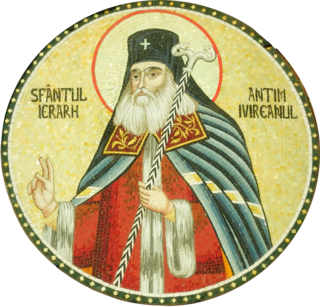 3
Anthim the Iberian was a Georgian theologian, scholar, calligrapher, philosopher and one of the greatest ecclesiastic figures of Wallachia, led the printing press of the prince of Wallachia, and was...
3
Anthim the Iberian was a Georgian theologian, scholar, calligrapher, philosopher and one of the greatest ecclesiastic figures of Wallachia, led the printing press of the prince of Wallachia, and was...
Alexandru G. Golescu
 3
Alexandru G. Golescu was a Romanian politician who served as a Prime Minister of Romania in 1870.
3
Alexandru G. Golescu was a Romanian politician who served as a Prime Minister of Romania in 1870.
Stephan Ludwig Roth
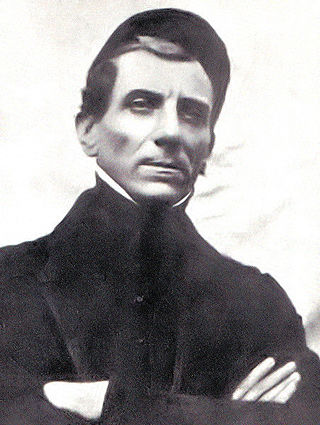 3
Stephan Ludwig Roth was a Transylvanian Saxon intellectual, teacher, pedagogue and Lutheran pastor.
3
Stephan Ludwig Roth was a Transylvanian Saxon intellectual, teacher, pedagogue and Lutheran pastor.
Charles Darwin
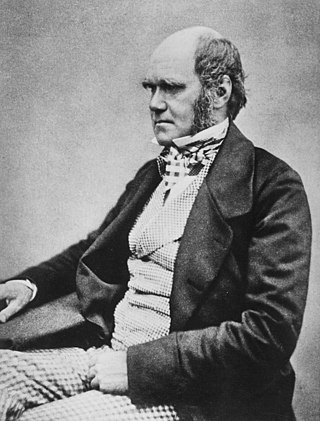 3
Charles Robert Darwin was an English naturalist, geologist and biologist, widely known for his contributions to evolutionary biology. His proposition that all species of life have descended from a...
3
Charles Robert Darwin was an English naturalist, geologist and biologist, widely known for his contributions to evolutionary biology. His proposition that all species of life have descended from a...
Pavel Dan
 3
Pavel Dan was an Austro-Hungarian-born Romanian prose writer.
3
Pavel Dan was an Austro-Hungarian-born Romanian prose writer.
Radu Stanca
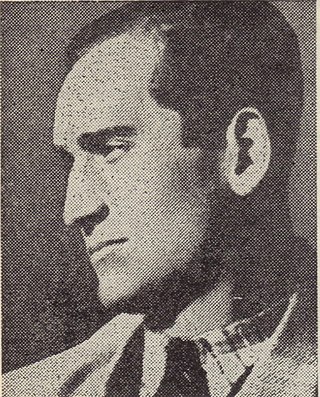 3
Radu Stanca was a Romanian poet, playwright, theatre director, theatre critic and theoretician.
3
Radu Stanca was a Romanian poet, playwright, theatre director, theatre critic and theoretician.
Petru E. Oance
 3
Petru E. Oancea, cunoscut mai degrabă sub pseudonimul Tata Oancea, a fost un talentat artist popular, poet si sculptor, om de cultură ce a întruchipat profund spiritualitatea bănățeană.
3
Petru E. Oancea, cunoscut mai degrabă sub pseudonimul Tata Oancea, a fost un talentat artist popular, poet si sculptor, om de cultură ce a întruchipat profund spiritualitatea bănățeană.
Cezar Petrescu
 3
Cezar Petrescu was a Romanian journalist, novelist, and children's writer.
3
Cezar Petrescu was a Romanian journalist, novelist, and children's writer.
Hans Christian Andersen
 3
Hans Christian Andersen was a Danish author. Although a prolific writer of plays, travelogues, novels, and poems, he is best remembered for his literary fairy tales.
3
Hans Christian Andersen was a Danish author. Although a prolific writer of plays, travelogues, novels, and poems, he is best remembered for his literary fairy tales.
Emanoil Gojdu
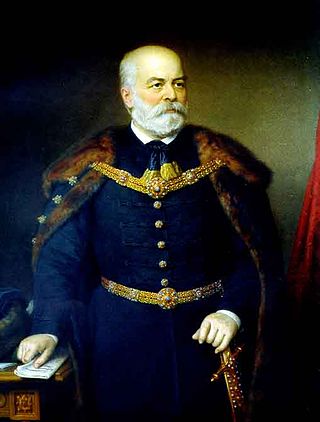 3
Emanuil Gojdu was a Romanian lawyer in the Kingdom of Hungary and patriot.
3
Emanuil Gojdu was a Romanian lawyer in the Kingdom of Hungary and patriot.
Petro Mohyla
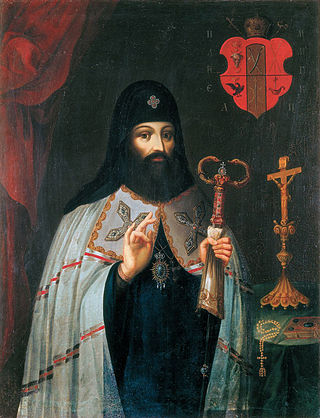 3
Petro Mohyla was the Metropolitan of Kiev, Galicia and all Rus' in the Ecumenical Patriarchate of Constantinople in the Eastern Orthodox Church from 1633 to 1646.
3
Petro Mohyla was the Metropolitan of Kiev, Galicia and all Rus' in the Ecumenical Patriarchate of Constantinople in the Eastern Orthodox Church from 1633 to 1646.
Attila József
 3
Attila József was one of the most famous Hungarian poets of the 20th century. Generally not recognized during his lifetime, József was hailed during the communist era of the 1950s as Hungary's great...
3
Attila József was one of the most famous Hungarian poets of the 20th century. Generally not recognized during his lifetime, József was hailed during the communist era of the 1950s as Hungary's great...
Rembrandt
 3
Rembrandt Harmenszoon van Rijn, usually simply known as Rembrandt, was a Dutch Golden Age painter, printmaker, and draughtsman. He is generally considered one of the greatest visual artists in the...
3
Rembrandt Harmenszoon van Rijn, usually simply known as Rembrandt, was a Dutch Golden Age painter, printmaker, and draughtsman. He is generally considered one of the greatest visual artists in the...
Melchisedec Ștefănescu
 3
Melchisedec Ștefănescu was a Moldavian, later Romanian historian and bishop of the Romanian Orthodox Church. A native of the Piatra Neamț area, he was educated at Iași and in Kiev. After a decade of...
3
Melchisedec Ștefănescu was a Moldavian, later Romanian historian and bishop of the Romanian Orthodox Church. A native of the Piatra Neamț area, he was educated at Iași and in Kiev. After a decade of...
Michaelmas
 3
Michaelmas is a Christian festival observed in many Western Christian liturgical calendars on 29 September, and on 8 November in the Eastern Christian traditions. Michaelmas has been one of the four...
3
Michaelmas is a Christian festival observed in many Western Christian liturgical calendars on 29 September, and on 8 November in the Eastern Christian traditions. Michaelmas has been one of the four...
Garabet Ibrăileanu
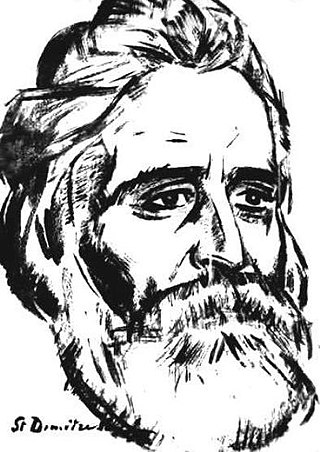 3
Garabet Ibrăileanu was a Romanian-Armenian literary critic and theorist, writer, translator, sociologist, University of Iași professor (1908–1934), and, together with Paul Bujor and Constantin Stere,...
3
Garabet Ibrăileanu was a Romanian-Armenian literary critic and theorist, writer, translator, sociologist, University of Iași professor (1908–1934), and, together with Paul Bujor and Constantin Stere,...
Costache Conachi
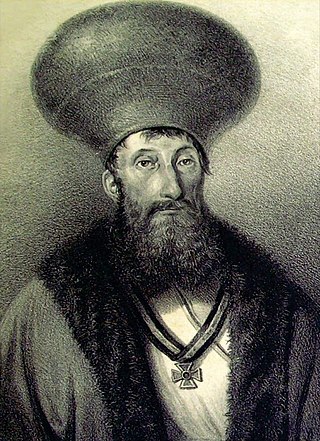 3
Costache Conachi was a Romanian boyar, politician, poet and writer noted for emphasizing reason and improving the craft of Romanian writing.
3
Costache Conachi was a Romanian boyar, politician, poet and writer noted for emphasizing reason and improving the craft of Romanian writing.
Dumitru Theodor Neculuță
 3
Dumitru Theodor Neculuță was a Romanian poet, socialist activist, and artisan shoemaker. Born to a poor family in Western Moldavia, he was not allowed to pursue his passion for music, and worked from...
3
Dumitru Theodor Neculuță was a Romanian poet, socialist activist, and artisan shoemaker. Born to a poor family in Western Moldavia, he was not allowed to pursue his passion for music, and worked from...
Sabin Drăgoi
 3
Sabin Vasile Drăgoi was a Romanian composer, who specialized in folk music. His oeuvre includes orchestral and chamber works, film music and operas.
3
Sabin Vasile Drăgoi was a Romanian composer, who specialized in folk music. His oeuvre includes orchestral and chamber works, film music and operas.
Ioan Alexandru
 3
Ioan Alexandru was a Romanian poet, essayist and politician. After the Romanian Revolution of 1989, he became a founding member and vice-president of the Christian Democratic National Peasants' Party...
3
Ioan Alexandru was a Romanian poet, essayist and politician. After the Romanian Revolution of 1989, he became a founding member and vice-president of the Christian Democratic National Peasants' Party...
Leo Tolstoy
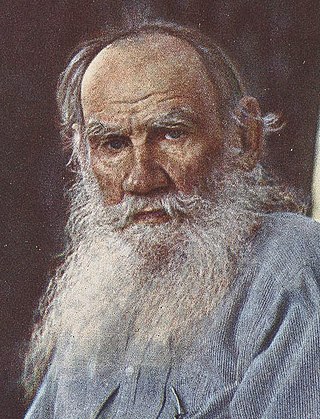 3
Count Lev Nikolayevich Tolstoy, usually referred to in English as Leo Tolstoy, was a Russian writer. He is regarded as one of the greatest and most influential authors of all time. He received...
3
Count Lev Nikolayevich Tolstoy, usually referred to in English as Leo Tolstoy, was a Russian writer. He is regarded as one of the greatest and most influential authors of all time. He received...
Iosif Sava
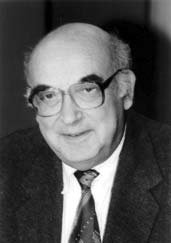 3
Iosif Sava a fost un muzicolog român, realizator de emisiuni radio și de televiziune, provenit dintr-o familie evreiască în care se făcea muzică de peste trei secole.
3
Iosif Sava a fost un muzicolog român, realizator de emisiuni radio și de televiziune, provenit dintr-o familie evreiască în care se făcea muzică de peste trei secole.
Iancu Flondor
 3
Iancu Flondor was a Romanian politician who advocated Bukovina's union with the Kingdom of Romania.
3
Iancu Flondor was a Romanian politician who advocated Bukovina's union with the Kingdom of Romania.
Ionel Teodoreanu
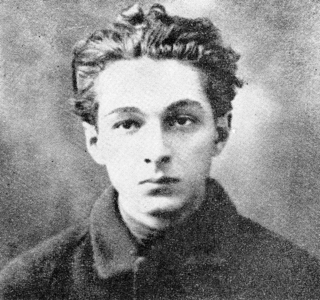 3
Ionel Teodoreanu was a Romanian novelist and lawyer. He is mostly remembered for his books on the themes of childhood and adolescence.
3
Ionel Teodoreanu was a Romanian novelist and lawyer. He is mostly remembered for his books on the themes of childhood and adolescence.
Hieromonk Makarije
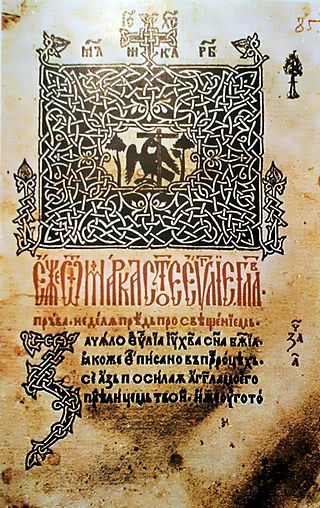 3
Hieromonk Makarije is the founder of Serbian and Romanian printing, having printed the first book in Serbian and the first book in the territory of Walachia.
3
Hieromonk Makarije is the founder of Serbian and Romanian printing, having printed the first book in Serbian and the first book in the territory of Walachia.
Sophocles
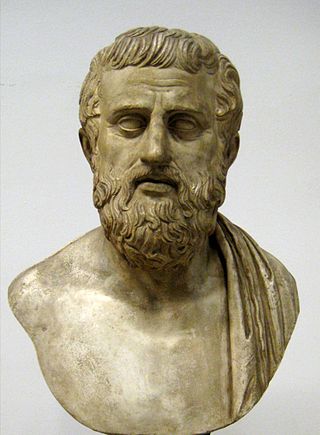 3
Sophocles was an ancient Greek tragedian, known as one of three from whom at least one play has survived in full. His first plays were written later than, or contemporary with, those of Aeschylus;...
3
Sophocles was an ancient Greek tragedian, known as one of three from whom at least one play has survived in full. His first plays were written later than, or contemporary with, those of Aeschylus;...
Grigore Bălan
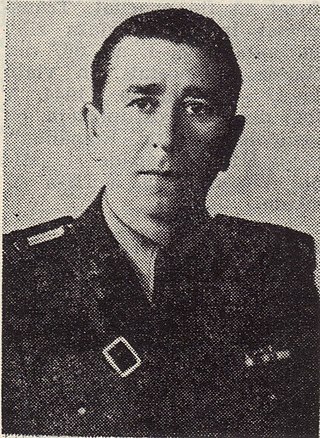 3
Grigore Bălan was a Romanian brigadier general during World War II.
3
Grigore Bălan was a Romanian brigadier general during World War II.
Nicolaus Copernicus
 3
Nicolaus Copernicus was a Renaissance polymath, active as a mathematician, astronomer, and Catholic canon, who formulated a model of the universe that placed the Sun rather than Earth at its center....
3
Nicolaus Copernicus was a Renaissance polymath, active as a mathematician, astronomer, and Catholic canon, who formulated a model of the universe that placed the Sun rather than Earth at its center....
Sergiu Celibidache
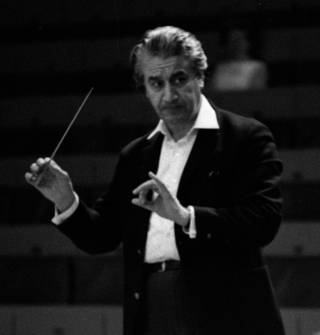 3
Sergiu Celibidache was a Romanian conductor, composer, musical theorist, and teacher. Educated in his native Romania, and later in Paris and Berlin, Celibidache's career in music spanned over five...
3
Sergiu Celibidache was a Romanian conductor, composer, musical theorist, and teacher. Educated in his native Romania, and later in Paris and Berlin, Celibidache's career in music spanned over five...
August Treboniu Laurian
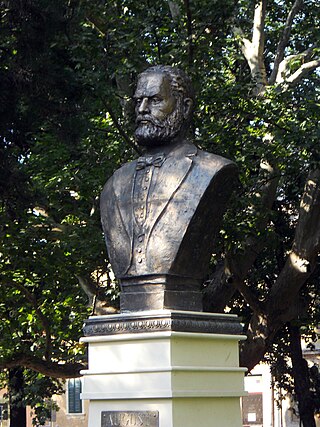 3
August Treboniu Laurian was a Transylvanian Romanian politician, historian and linguist. He was born in the village of Hochfeld, Principality of Transylvania, Austrian Empire. He obtained his...
3
August Treboniu Laurian was a Transylvanian Romanian politician, historian and linguist. He was born in the village of Hochfeld, Principality of Transylvania, Austrian Empire. He obtained his...
Ioan Ursu (fizician)
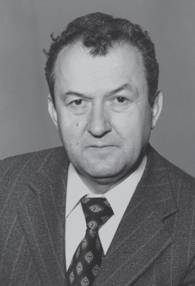 3
Ioan Ursu a fost un fizician român, academician, coordonator al programului nuclear al României, membru PCR, ministru în guvernele comuniste.
3
Ioan Ursu a fost un fizician român, academician, coordonator al programului nuclear al României, membru PCR, ministru în guvernele comuniste.
Alexandru Șerbănescu
 2
Alexandru "Alecu" Șerbănescu was a leading Romanian fighter pilot and flying ace in World War II. At the end of Romania's campaign on the side of the Axis, Șerbănescu was the country's leading ace,...
2
Alexandru "Alecu" Șerbănescu was a leading Romanian fighter pilot and flying ace in World War II. At the end of Romania's campaign on the side of the Axis, Șerbănescu was the country's leading ace,...
Alexandru Cernat
 2
Alexandru Cernat was a Romanian general and politician.
2
Alexandru Cernat was a Romanian general and politician.
Grigore Ionescu
 2
Grigore Ionescu a fost un arhitect român, membru titular (1992) al Academiei Române. A fost profesor la Institutul de arhitectură „Ion Mincu” din București. Printre lucrările sale se numără Spitalul...
2
Grigore Ionescu a fost un arhitect român, membru titular (1992) al Academiei Române. A fost profesor la Institutul de arhitectură „Ion Mincu” din București. Printre lucrările sale se numără Spitalul...
Dmitri Mendeleev
 2
Dmitri Ivanovich Mendeleev was a Russian chemist and inventor. He is best known for formulating the Periodic Law and creating a version of the periodic table of elements. He used the Periodic Law not...
2
Dmitri Ivanovich Mendeleev was a Russian chemist and inventor. He is best known for formulating the Periodic Law and creating a version of the periodic table of elements. He used the Periodic Law not...
Ioan Mețianu
 2
Ioan Mețianu was an Austro-Hungarian cleric of the Romanian Orthodox Church.
2
Ioan Mețianu was an Austro-Hungarian cleric of the Romanian Orthodox Church.
Pavel Zăgănescu
 2
Pavel Zăgănescu a fost un căpitan de pompieri român, care a condus Compania de Pompieri români în bătălia din Dealul Spirii de la 13 septembrie 1848 împotriva trupelor otomane. Ziua de 13 septembrie...
2
Pavel Zăgănescu a fost un căpitan de pompieri român, care a condus Compania de Pompieri români în bătălia din Dealul Spirii de la 13 septembrie 1848 împotriva trupelor otomane. Ziua de 13 septembrie...
Sever Bocu
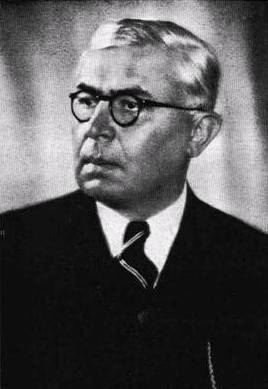 2
Sever Bocu a fost un politician român, economist, ziarist, redactor la ziarul „Tribuna” din Arad, unul dintre fruntașii Partidului Național Român, ulterior Partidul Național Țărănesc, deputat...
2
Sever Bocu a fost un politician român, economist, ziarist, redactor la ziarul „Tribuna” din Arad, unul dintre fruntașii Partidului Național Român, ulterior Partidul Național Țărănesc, deputat...
Traian Popovici
 2
Traian Popovici was a Romanian lawyer and mayor of Cernăuți during World War II, known for saving 20,000 Jews of Bukovina from deportation.
2
Traian Popovici was a Romanian lawyer and mayor of Cernăuți during World War II, known for saving 20,000 Jews of Bukovina from deportation.
Anastasie Panu
 2
Anastasie Panu (1810–1867) was a Moldavian, later Romanian politician.
2
Anastasie Panu (1810–1867) was a Moldavian, later Romanian politician.
Dimitrie Mangeron
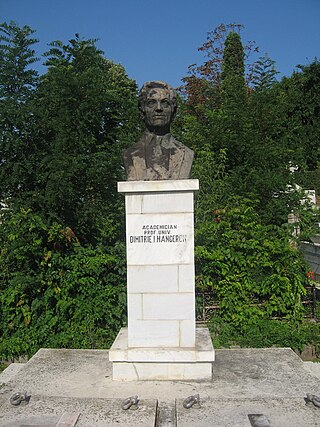 2
Dimitrie Ioan Mangeron a fost un matematician român, membru corespondent al Academiei Române.
2
Dimitrie Ioan Mangeron a fost un matematician român, membru corespondent al Academiei Române.
Octav Onicescu
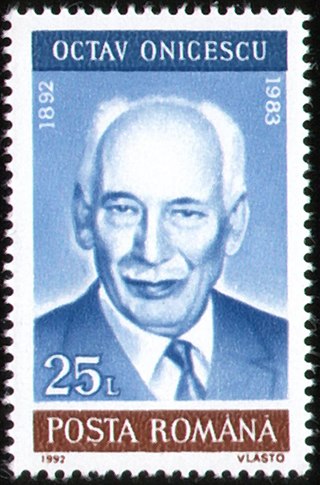 2
Octav Onicescu was a Romanian mathematician and a member of the Romanian Academy. Together with his student, Gheorghe Mihoc, he is considered to be the founder of the Romanian school of probability...
2
Octav Onicescu was a Romanian mathematician and a member of the Romanian Academy. Together with his student, Gheorghe Mihoc, he is considered to be the founder of the Romanian school of probability...
Lucrețiu Pătrășcanu
 2
Lucrețiu Pătrășcanu was a Romanian communist politician and leading member of the Communist Party of Romania (PCR), also noted for his activities as a lawyer, sociologist and economist. For a while,...
2
Lucrețiu Pătrășcanu was a Romanian communist politician and leading member of the Communist Party of Romania (PCR), also noted for his activities as a lawyer, sociologist and economist. For a while,...
Otilia Cazimir
 2
Otilia Cazimir was a Romanian poet, prose writer, translator and publicist, nicknamed the "poetess of gentle souls", known as a children's poems author.
2
Otilia Cazimir was a Romanian poet, prose writer, translator and publicist, nicknamed the "poetess of gentle souls", known as a children's poems author.
Emil Isac
Agatha Bârsescu
 2
Agatha Bârsescu, also known by the name Agathe Barcesque, was a Romanian theatre actress, opera singer and teacher, known for her interpretations of Greek tragedies.
2
Agatha Bârsescu, also known by the name Agathe Barcesque, was a Romanian theatre actress, opera singer and teacher, known for her interpretations of Greek tragedies.
Lazarus of Bethany
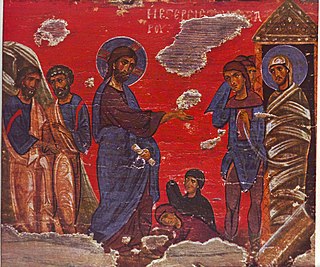 2
Lazarus of Bethany is a figure within the Christian Bible, mentioned in the New Testament in the Gospel of John, who four days after his death is restored to life by Jesus. This is seen by Christians...
2
Lazarus of Bethany is a figure within the Christian Bible, mentioned in the New Testament in the Gospel of John, who four days after his death is restored to life by Jesus. This is seen by Christians...
Saint Spyridon
Frédéric Joliot-Curie
 2
Jean Frédéric Joliot-Curie was a French physicist and husband of Irène Joliot-Curie, with whom he was jointly awarded the Nobel Prize in Chemistry in 1935 for their discovery of induced...
2
Jean Frédéric Joliot-Curie was a French physicist and husband of Irène Joliot-Curie, with whom he was jointly awarded the Nobel Prize in Chemistry in 1935 for their discovery of induced...
Giordano Bruno
 2
Giordano Bruno was an Italian philosopher, poet, cosmological theorist and esotericist. He is known for his cosmological theories, which conceptually extended to include the then-novel Copernican...
2
Giordano Bruno was an Italian philosopher, poet, cosmological theorist and esotericist. He is known for his cosmological theories, which conceptually extended to include the then-novel Copernican...
Lascăr Catargiu
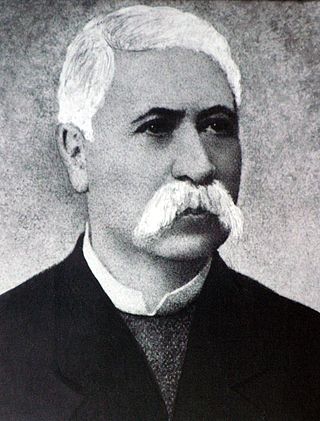 2
Lascăr Catargiu was a Romanian conservative statesman born in Moldavia. He belonged to an ancient Wallachian family, one of whose members had been banished in the 17th century by Prince Matei...
2
Lascăr Catargiu was a Romanian conservative statesman born in Moldavia. He belonged to an ancient Wallachian family, one of whose members had been banished in the 17th century by Prince Matei...
Moise Nicoară
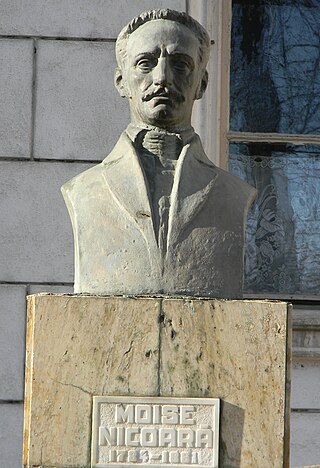 2
Moise Nicoară a fost un jurist, profesor, traducător, scriitor și un patriot român, luptător pentru drepturile românilor din Banat și Crișana.
2
Moise Nicoară a fost un jurist, profesor, traducător, scriitor și un patriot român, luptător pentru drepturile românilor din Banat și Crișana.
Dimitrie Pompeiu
 2
Dimitrie D. Pompeiu was a Romanian mathematician, professor at the University of Bucharest, titular member of the Romanian Academy, and President of the Chamber of Deputies.
2
Dimitrie D. Pompeiu was a Romanian mathematician, professor at the University of Bucharest, titular member of the Romanian Academy, and President of the Chamber of Deputies.
George Constantinescu
 2
George "Gogu" Constantinescu was a Romanian scientist, engineer, and inventor. During his career, he registered over 130 inventions. Constantinescu was the creator of the theory of sonics, a new...
2
George "Gogu" Constantinescu was a Romanian scientist, engineer, and inventor. During his career, he registered over 130 inventions. Constantinescu was the creator of the theory of sonics, a new...
Vladislav I of Wallachia
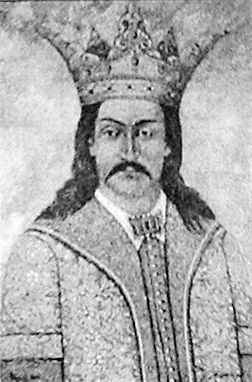 2
Vladislav I of the Basarab dynasty, also known as Vlaicu or Vlaicu-Vodă, was the Voivode of Wallachia between 1364 and 1377. He was the son of Nicholas Alexander of Wallachia and Clara Dobokai.
2
Vladislav I of the Basarab dynasty, also known as Vlaicu or Vlaicu-Vodă, was the Voivode of Wallachia between 1364 and 1377. He was the son of Nicholas Alexander of Wallachia and Clara Dobokai.
Maria Cunțan
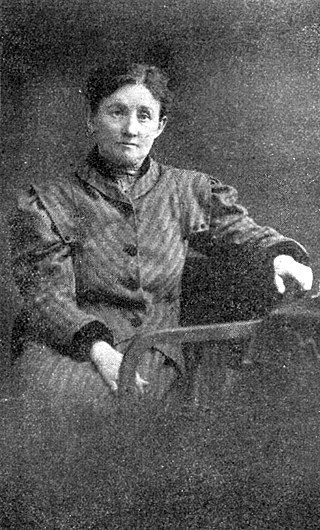 2
Maria Cunțan was an Austrian Empire-born Romanian poet.
2
Maria Cunțan was an Austrian Empire-born Romanian poet.
Samuil Vulcan
 2
Samuil Vulcan was the Bishop of the Diocese of Oradea Mare of the Romanian Greek Catholic Church from 1806 to 1839.
2
Samuil Vulcan was the Bishop of the Diocese of Oradea Mare of the Romanian Greek Catholic Church from 1806 to 1839.
Coriolan Brediceanu
 2
Coriolan Brediceanu (1849–1909) was an Austro-Hungarian lawyer and politician of Romanian ethnivity. Born in Lugoj, his children included Caius and Tiberiu.
2
Coriolan Brediceanu (1849–1909) was an Austro-Hungarian lawyer and politician of Romanian ethnivity. Born in Lugoj, his children included Caius and Tiberiu.
Constantin Sandu-Aldea
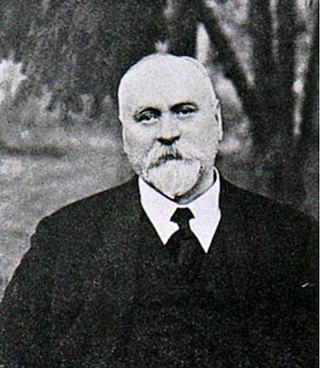 2
Constantin Sandu-Aldea was a Romanian agronomist and prose writer.
2
Constantin Sandu-Aldea was a Romanian agronomist and prose writer.
Michael Weiss
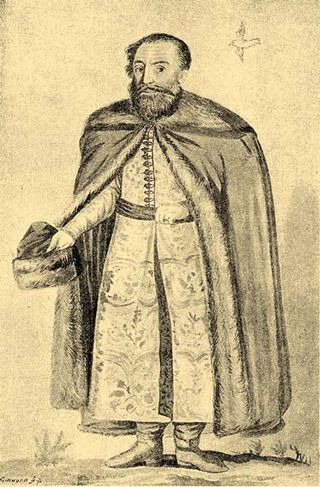 2
Michael Weiss, scris uneori Weiß, a fost un istoric sas, ales ca jude al Brașovului în 1612. A lăsat în urmă mai multe scrieri cuprinzând date importante despre istoria Transilvaniei și mai ales a...
2
Michael Weiss, scris uneori Weiß, a fost un istoric sas, ales ca jude al Brașovului în 1612. A lăsat în urmă mai multe scrieri cuprinzând date importante despre istoria Transilvaniei și mai ales a...
Grigore Gabrielescu
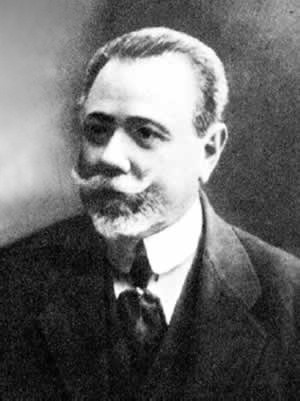 2
Grigore Gabrielescu a fost un tenor român de faimă internațională.
2
Grigore Gabrielescu a fost un tenor român de faimă internațională.
Nicolae Leonard
 2
Nicolae Leonard was a Romanian opera tenor, nicknamed "the Prince of the Operetta". He was born in Bădălan and died in Câmpulung.
2
Nicolae Leonard was a Romanian opera tenor, nicknamed "the Prince of the Operetta". He was born in Bădălan and died in Câmpulung.
Alexandru Lahovary
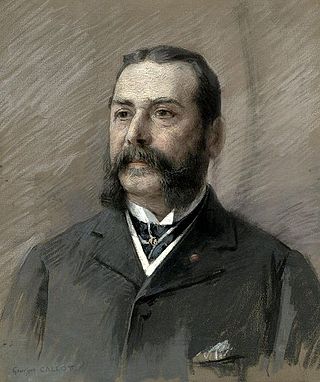 2
Alexandru Lahovary was a member of the Romanian aristocracy, a politician and diplomat who served as the Minister of Justice, Minister of Agriculture, Industry, Trade and Property, Minister of Public...
2
Alexandru Lahovary was a member of the Romanian aristocracy, a politician and diplomat who served as the Minister of Justice, Minister of Agriculture, Industry, Trade and Property, Minister of Public...
George Valentin Bibescu
 2
George III Valentin, Prince Bibescu was a Romanian early aviation pioneer and automobile enthusiast.
2
George III Valentin, Prince Bibescu was a Romanian early aviation pioneer and automobile enthusiast.
Gheorghe Bibescu
 2
Gheorghe Bibescu was a hospodar (Prince) of Wallachia between 1843 and 1848. His rule coincided with the revolutionary tide that culminated in the 1848 Wallachian revolution.
2
Gheorghe Bibescu was a hospodar (Prince) of Wallachia between 1843 and 1848. His rule coincided with the revolutionary tide that culminated in the 1848 Wallachian revolution.
Alexandru Vaida-Voevod
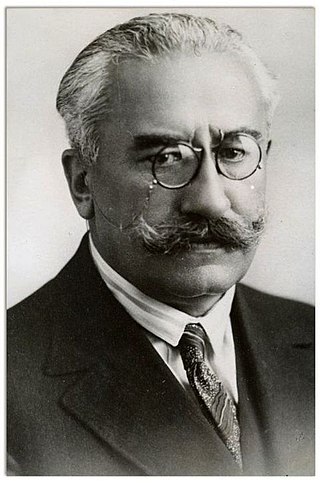 2
Alexandru Vaida-Voevod or Vaida-Voievod was an Austro-Hungarian-born Romanian politician who was a supporter and promoter of the union of Transylvania with the Romanian Old Kingdom. He later served...
2
Alexandru Vaida-Voevod or Vaida-Voievod was an Austro-Hungarian-born Romanian politician who was a supporter and promoter of the union of Transylvania with the Romanian Old Kingdom. He later served...
István Széchenyi
 2
Count István Széchenyi de Sárvár-Felsővidék was a Hungarian politician, political theorist, and writer. Widely considered one of the greatest statesmen in his nation's history, within Hungary he is...
2
Count István Széchenyi de Sárvár-Felsővidék was a Hungarian politician, political theorist, and writer. Widely considered one of the greatest statesmen in his nation's history, within Hungary he is...
Ilie Măcelar
 2
Ilie Măcelar sau Ilie Măcelaru a fost un om politic român transilvănean, președintele Partidului Național al Românilor din Transilvania. A fost un adept al nerecunoașterii alipirii Transilvaniei la...
2
Ilie Măcelar sau Ilie Măcelaru a fost un om politic român transilvănean, președintele Partidului Național al Românilor din Transilvania. A fost un adept al nerecunoașterii alipirii Transilvaniei la...
Victor Vâlcovici
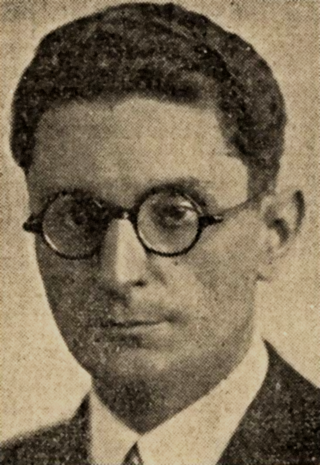 2
Victor Vâlcovici was a Romanian mechanician and mathematician.
2
Victor Vâlcovici was a Romanian mechanician and mathematician.
George Vâlsan
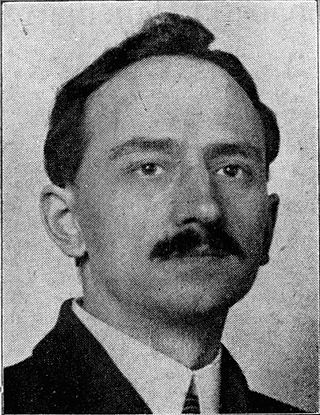 2
George Vâlsan was a Romanian geographer and writer.
2
George Vâlsan was a Romanian geographer and writer.
Ion Pillat
 2
Ion Pillat was a distinguished Romanian poet. He is best known for his volume Pe Argeș în sus and Poeme într-un vers, and for his embrionic love for his Moldavian & Muntenian boyar villages Florica &...
2
Ion Pillat was a distinguished Romanian poet. He is best known for his volume Pe Argeș în sus and Poeme într-un vers, and for his embrionic love for his Moldavian & Muntenian boyar villages Florica &...
Petru Dobra
 2
Petru Dobra a fost un revoluționar pașoptist român din Transilvania, colaborator apropiat al lui Avram Iancu în timpul Revoluției de la 1848 din Transilvania. A fost un prefect, jurisconsult în...
2
Petru Dobra a fost un revoluționar pașoptist român din Transilvania, colaborator apropiat al lui Avram Iancu în timpul Revoluției de la 1848 din Transilvania. A fost un prefect, jurisconsult în...
Victor Eftimiu
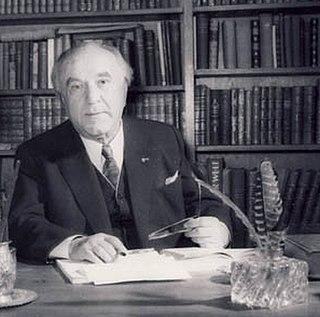 2
Victor Eftimiu was a Romanian poet and playwright. He was a contributor to Sburătorul, a Romanian literary magazine. His works have been performed in the State Jewish Theater of Romania.
2
Victor Eftimiu was a Romanian poet and playwright. He was a contributor to Sburătorul, a Romanian literary magazine. His works have been performed in the State Jewish Theater of Romania.
Mihail Moxa
 2
Mihail Moxa was a Wallachian historiographer, translator, and Orthodox monk. Associated with the Oltenia region, he lived for much of his life at Bistrița Monastery; his career spanned a moment of...
2
Mihail Moxa was a Wallachian historiographer, translator, and Orthodox monk. Associated with the Oltenia region, he lived for much of his life at Bistrița Monastery; his career spanned a moment of...
Gheorghe Petrașcu
 2
Gheorghe Petrașcu was a Romanian painter. He won numerous prizes throughout his lifetime and had his paintings exhibited posthumously at the Paris International Exhibition and the Venice Biennale. He...
2
Gheorghe Petrașcu was a Romanian painter. He won numerous prizes throughout his lifetime and had his paintings exhibited posthumously at the Paris International Exhibition and the Venice Biennale. He...
Ștefan Greceanu
 2
Ștefan Greceanu a fost un pilot român de aviație, as al Aviației Române din cel de-al Doilea Război Mondial.
2
Ștefan Greceanu a fost un pilot român de aviație, as al Aviației Române din cel de-al Doilea Război Mondial.
Hristo Botev
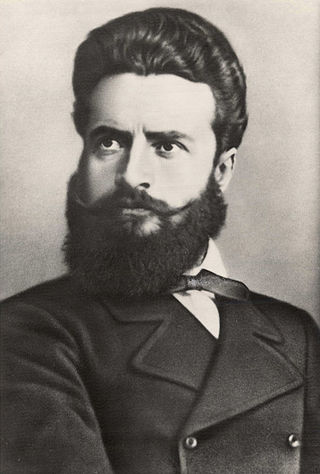 2
Hristo Botev, born Hristo Botyov Petkov, was a Bulgarian revolutionary and poet. Botev is considered by Bulgarians to be a symbolic historical figure and national hero. His poetry is a prime example...
2
Hristo Botev, born Hristo Botyov Petkov, was a Bulgarian revolutionary and poet. Botev is considered by Bulgarians to be a symbolic historical figure and national hero. His poetry is a prime example...
Nicolae Oncescu
 2
Nicolae Oncescu a fost un geolog român, profesor universitar la Universitatea din București, doctor în științe (1939).
2
Nicolae Oncescu a fost un geolog român, profesor universitar la Universitatea din București, doctor în științe (1939).
Eugen Brote
 2
Eugen Brote a fost un agronom, publicist și politician român.
2
Eugen Brote a fost un agronom, publicist și politician român.
Nicolae Golescu
 2
Nicolae Golescu (1810–1877) was a Wallachian Romanian politician who served as the Prime Minister of Romania in 1860 and May–November 1868.
2
Nicolae Golescu (1810–1877) was a Wallachian Romanian politician who served as the Prime Minister of Romania in 1860 and May–November 1868.
Donat de Münstereifel
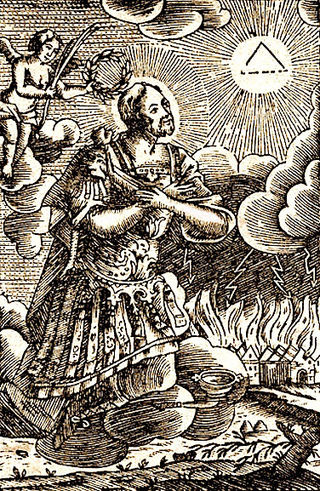 2
Sfântul Donat a fost un soldat roman, martir creștin, venerat ca sfânt. Un episod legat de viața sa ca ofițer a fost „minunea ploii” din campania contra quazilor, episod imortalizat pe Columna lui...
2
Sfântul Donat a fost un soldat roman, martir creștin, venerat ca sfânt. Un episod legat de viața sa ca ofițer a fost „minunea ploii” din campania contra quazilor, episod imortalizat pe Columna lui...
Radu Popescu
 2
Radu Popescu a fost un cronicar român, mare vornic muntean și cronicar oficial la curtea lui Nicolae Mavrocordat. I se atribuie Istoriile domnilor Țării Românești (1290-1728), care înfățișează mult...
2
Radu Popescu a fost un cronicar român, mare vornic muntean și cronicar oficial la curtea lui Nicolae Mavrocordat. I se atribuie Istoriile domnilor Țării Românești (1290-1728), care înfățișează mult...
Emmanuel de Martonne
 2
Emmanuel de Martonne was a French geographer. He participated in the Paris Peace Conference.
2
Emmanuel de Martonne was a French geographer. He participated in the Paris Peace Conference.
Nikolai Spathari
 2
Nikolai Spathari, also known as Nicolae Milescu and Nicolae Milescu Spătaru, or Spătarul Milescu-Cârnu, was a Moldavian-born writer, diplomat and traveler, who lived and worked in the Tsardom of...
2
Nikolai Spathari, also known as Nicolae Milescu and Nicolae Milescu Spătaru, or Spătarul Milescu-Cârnu, was a Moldavian-born writer, diplomat and traveler, who lived and worked in the Tsardom of...
Alexandru Mocioni
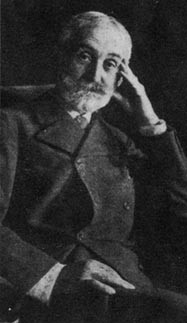 2
Alexandru Mocioni a fost un om politic român, deputat în mai multe legislaturi în Camera Ungară a Parlamentul de la Budapesta, unde a intrat pentru prima dată la vârsta de 24 de ani. A propus și a...
2
Alexandru Mocioni a fost un om politic român, deputat în mai multe legislaturi în Camera Ungară a Parlamentul de la Budapesta, unde a intrat pentru prima dată la vârsta de 24 de ani. A propus și a...
Frédéric Chopin
 2
Frédéric François Chopin was a Polish composer and virtuoso pianist of the Romantic period, who wrote primarily for solo piano. He has maintained worldwide renown as a leading musician of his era,...
2
Frédéric François Chopin was a Polish composer and virtuoso pianist of the Romantic period, who wrote primarily for solo piano. He has maintained worldwide renown as a leading musician of his era,...
Jules Michelet
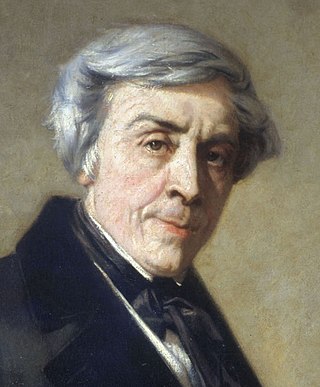 2
Jules Michelet was a French historian and writer. He is best known for his multivolume work Histoire de France, which traces the history of France from the earliest times to the French Revolution. He...
2
Jules Michelet was a French historian and writer. He is best known for his multivolume work Histoire de France, which traces the history of France from the earliest times to the French Revolution. He...
Grigore Cobălcescu
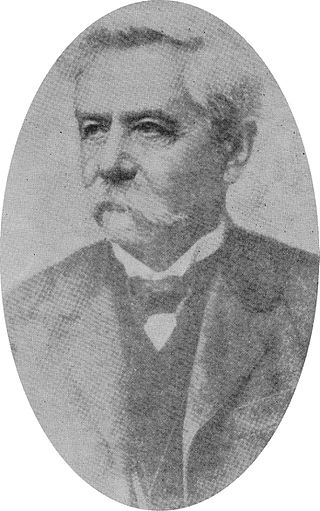 2
Grigore Cobălcescu was a Moldavian, later Romanian geologist and paleontologist who is credited with introducing both fields into his country.
2
Grigore Cobălcescu was a Moldavian, later Romanian geologist and paleontologist who is credited with introducing both fields into his country.
Alexandru Philippide
 2
Alexandru I. Philippide was a Romanian linguist and philologist. Educated in Iași and Halle, he taught high school for several years until 1893, when he secured a professorship at the University of...
2
Alexandru I. Philippide was a Romanian linguist and philologist. Educated in Iași and Halle, he taught high school for several years until 1893, when he secured a professorship at the University of...
Ștefan Tomșa
 2
Ștefan Tomșa or Ștefan VII was the ruler of Moldavia in 1563 and 1564.
2
Ștefan Tomșa or Ștefan VII was the ruler of Moldavia in 1563 and 1564.
Roman Ciorogariu
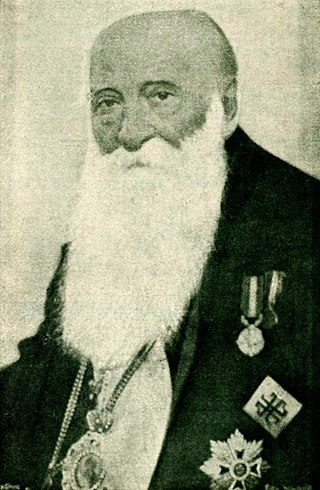 2
Roman Ciorogariu was an Imperial Austrian-born Romanian bishop within the Romanian Orthodox Church, as well as a journalist and educator.
2
Roman Ciorogariu was an Imperial Austrian-born Romanian bishop within the Romanian Orthodox Church, as well as a journalist and educator.
Miloš Obrenović, Prince of Serbia
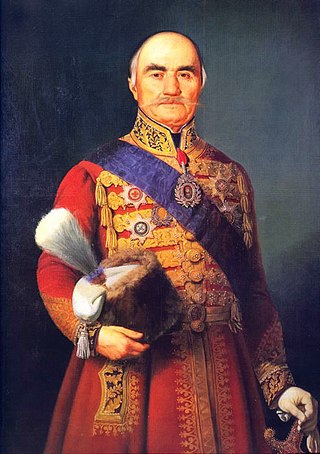 2
Miloš Obrenović born Miloš Teodorović, also known as Miloš the Great was the Prince of Serbia twice, from 1815 to 1839, and from 1858 to 1860. He was an eminent figure of the First Serbian uprising,...
2
Miloš Obrenović born Miloš Teodorović, also known as Miloš the Great was the Prince of Serbia twice, from 1815 to 1839, and from 1858 to 1860. He was an eminent figure of the First Serbian uprising,...
Paul Iorgovici
 2
Paul Iorgovici, a fost om de cultură, jurist, pedagog, istoric, filozof, cercetător al limbii române.
2
Paul Iorgovici, a fost om de cultură, jurist, pedagog, istoric, filozof, cercetător al limbii române.
Ana Colda
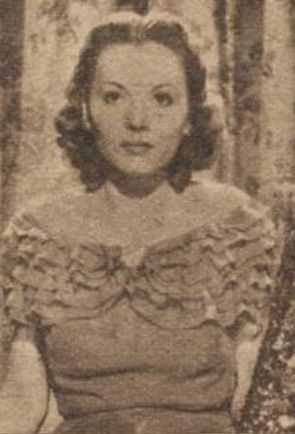 2
Ana Colda a fost o actriță română.
2
Ana Colda a fost o actriță română.
David Prodan
 2
David Prodan a fost un istoric român, academician, bibliotecar, profesor universitar, specialist în istoria Transilvaniei.
2
David Prodan a fost un istoric român, academician, bibliotecar, profesor universitar, specialist în istoria Transilvaniei.
Nicolae Vicol
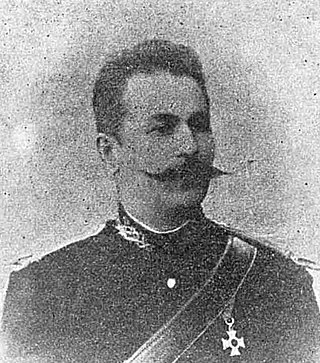 2
Nicolae Vicol a fost un medic militar român cu gradul de general. A fost unul dintre cei mai de seamă medici ai Armatei României și a condus în Primul Război Mondial Serviciul Sanitar al Marelui...
2
Nicolae Vicol a fost un medic militar român cu gradul de general. A fost unul dintre cei mai de seamă medici ai Armatei României și a condus în Primul Război Mondial Serviciul Sanitar al Marelui...
Robert Koch
 2
Heinrich Hermann Robert Koch was a German physician and microbiologist. As the discoverer of the specific causative agents of deadly infectious diseases including tuberculosis, cholera and anthrax,...
2
Heinrich Hermann Robert Koch was a German physician and microbiologist. As the discoverer of the specific causative agents of deadly infectious diseases including tuberculosis, cholera and anthrax,...
Constantin Dimitrescu-Severeanu
 2
Constantin Dimitrescu-Severeanu a fost un chirurg român. A fost elevul lui Carol Davila și profesor la Facultatea de medicină din București. Are meritul de a fi format o școală chirugicală modernă,...
2
Constantin Dimitrescu-Severeanu a fost un chirurg român. A fost elevul lui Carol Davila și profesor la Facultatea de medicină din București. Are meritul de a fi format o școală chirugicală modernă,...
Grigore Tocilescu
 2
Grigore George Tocilescu was a Romanian historian, archaeologist, epigrapher and folkorist, member of Romanian Academy.
2
Grigore George Tocilescu was a Romanian historian, archaeologist, epigrapher and folkorist, member of Romanian Academy.
Zaharia Carcalechi
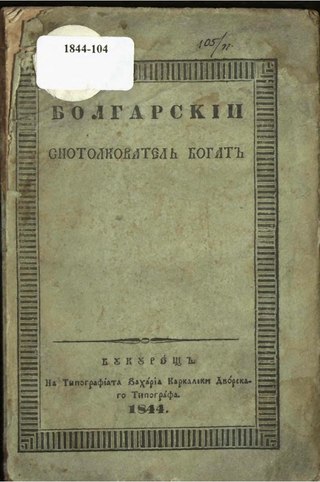 2
Zaharia Carcalechi was an Imperial Austrian-born Wallachian publisher.
2
Zaharia Carcalechi was an Imperial Austrian-born Wallachian publisher.
Ion Inculeț
 2
Ion Inculeț was a Bessarabian and Romanian politician, the President of the Country Council of the Moldavian Democratic Republic, Minister of the Interior of Romania, full member of the Romanian...
2
Ion Inculeț was a Bessarabian and Romanian politician, the President of the Country Council of the Moldavian Democratic Republic, Minister of the Interior of Romania, full member of the Romanian...
Ivan Pavlov
 2
Ivan Petrovich Pavlov was a Russian and Soviet experimental neurologist and physiologist known for his discovery of classical conditioning through his experiments with dogs.
2
Ivan Petrovich Pavlov was a Russian and Soviet experimental neurologist and physiologist known for his discovery of classical conditioning through his experiments with dogs.
Mihail Cerchez
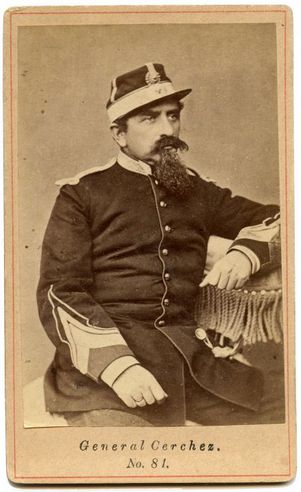 2
Mihail Cerchez Cristodulo (1839–1885) was a Romanian general.
2
Mihail Cerchez Cristodulo (1839–1885) was a Romanian general.
Gala Galaction
 2
Gala Galaction was a Romanian Orthodox clergyman, theologian, writer, journalist, left-wing activist, as well as a political figure of the People's Republic of Romania. Contrary to political trends...
2
Gala Galaction was a Romanian Orthodox clergyman, theologian, writer, journalist, left-wing activist, as well as a political figure of the People's Republic of Romania. Contrary to political trends...
Elijah
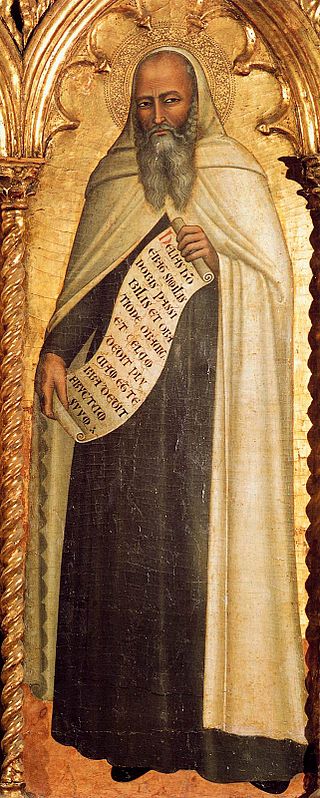 2
Elijah was, according to the Books of Kings in the Hebrew Bible, a prophet and a miracle worker who lived in the northern kingdom of Israel during the reign of King Ahab.
2
Elijah was, according to the Books of Kings in the Hebrew Bible, a prophet and a miracle worker who lived in the northern kingdom of Israel during the reign of King Ahab.
Luigi Galvani
 2
Luigi Galvani was an Italian physician, physicist, biologist and philosopher, who studied animal electricity. In 1780, he discovered that the muscles of dead frogs' legs twitched when struck by an...
2
Luigi Galvani was an Italian physician, physicist, biologist and philosopher, who studied animal electricity. In 1780, he discovered that the muscles of dead frogs' legs twitched when struck by an...
Andrei Bârseanu
 2
Andrei Bârseanu a fost un folclorist român, director al ASTREI între anii 1911-1922. Împreună cu Jan Urban Jarník, filolog romanist ceh, pasionat de folclorul românesc, a fost autor al culegerilor...
2
Andrei Bârseanu a fost un folclorist român, director al ASTREI între anii 1911-1922. Împreună cu Jan Urban Jarník, filolog romanist ceh, pasionat de folclorul românesc, a fost autor al culegerilor...
Dimitrie Marinescu
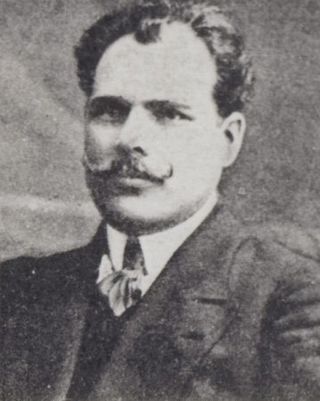 2
Dimitrie N. Marinescu (1882–1916) was a Romanian typographer, socialist and pacifist. He was a founder and General Secretary of the first Social Democratic Party of Romania in 1910.
2
Dimitrie N. Marinescu (1882–1916) was a Romanian typographer, socialist and pacifist. He was a founder and General Secretary of the first Social Democratic Party of Romania in 1910.
Marcel Janco
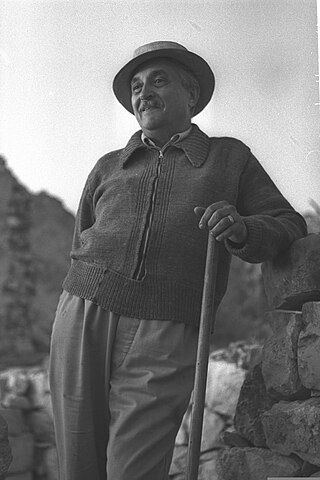 2
Marcel Janco was a Romanian and Israeli visual artist, architect and art theorist. He was the co-inventor of Dadaism and a leading exponent of Constructivism in Eastern Europe. In the 1910s, he...
2
Marcel Janco was a Romanian and Israeli visual artist, architect and art theorist. He was the co-inventor of Dadaism and a leading exponent of Constructivism in Eastern Europe. In the 1910s, he...
Dimitrie Brândză
 2
Dimitrie Brândză was a Romanian botanist. He founded the Botanical Garden of Bucharest, which is now named in his honor.
2
Dimitrie Brândză was a Romanian botanist. He founded the Botanical Garden of Bucharest, which is now named in his honor.
Constantin Istrati
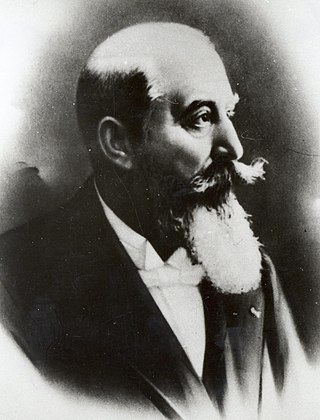 2
Constantin I. Istrati was a Romanian chemist, physician, and politician. He was Minister of Public Works in 1899–1900, Minister of Agriculture, Industry, Trade, and Domains in 1907, Mayor of...
2
Constantin I. Istrati was a Romanian chemist, physician, and politician. He was Minister of Public Works in 1899–1900, Minister of Agriculture, Industry, Trade, and Domains in 1907, Mayor of...
Ion Antonescu
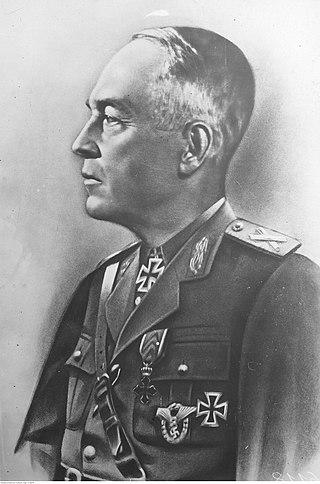 2
Ion Antonescu was a Romanian military officer and marshal who presided over two successive wartime dictatorships as Prime Minister and Conducător during most of World War II. Having been responsible...
2
Ion Antonescu was a Romanian military officer and marshal who presided over two successive wartime dictatorships as Prime Minister and Conducător during most of World War II. Having been responsible...
Traian Săvulescu
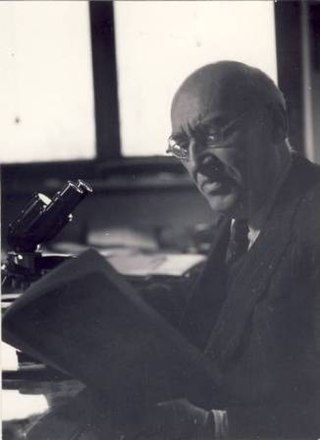 2
Traian Săvulescu was a Romanian biologist and botanist, founder of the Romanian School of Phytopathology, member and president of the Romanian Academy.
2
Traian Săvulescu was a Romanian biologist and botanist, founder of the Romanian School of Phytopathology, member and president of the Romanian Academy.
Rubin Patiția
 2
Rubin Patiția was an Austro-Hungarian ethnic Romanian lawyer and political activist. A native of the Transylvania region, he trained as a lawyer, settling in Alba Iulia in the 1870s and using his...
2
Rubin Patiția was an Austro-Hungarian ethnic Romanian lawyer and political activist. A native of the Transylvania region, he trained as a lawyer, settling in Alba Iulia in the 1870s and using his...
Jean Monnet
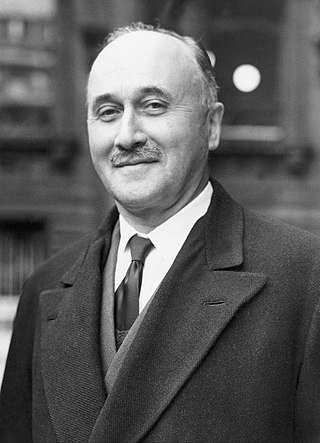 2
Jean Omer Marie Gabriel Monnet was a French civil servant, entrepreneur, diplomat, financier, administrator, and political visionary. An influential supporter of European unity, he is considered one...
2
Jean Omer Marie Gabriel Monnet was a French civil servant, entrepreneur, diplomat, financier, administrator, and political visionary. An influential supporter of European unity, he is considered one...
Aurel Suciu
 2
Aurel Suciu was an Austro-Hungarian ethnic Romanian lawyer and political activist.
2
Aurel Suciu was an Austro-Hungarian ethnic Romanian lawyer and political activist.
Zaharia Bârsan
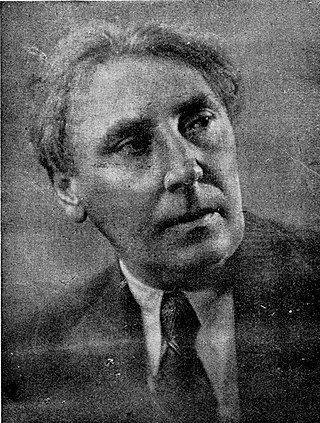 2
Zaharia Bârsan was an Austro-Hungarian-born Romanian playwright, poet and actor.
2
Zaharia Bârsan was an Austro-Hungarian-born Romanian playwright, poet and actor.
Nicolae Dobrin
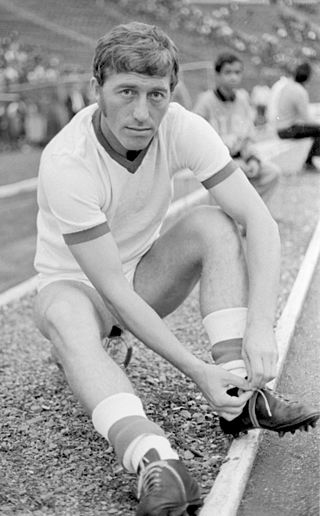 2
Nicolae Dobrin was a Romanian footballer who played as an attacking midfielder and a manager.
2
Nicolae Dobrin was a Romanian footballer who played as an attacking midfielder and a manager.
Victor Dumitrescu
 2
Victor Dumitrescu was a Romanian footballer who played as left back.
Dumitrescu began his football career at the age of 10, in the neighbour city of Deva. He played ten years for Corvinul Deva,...
2
Victor Dumitrescu was a Romanian footballer who played as left back.
Dumitrescu began his football career at the age of 10, in the neighbour city of Deva. He played ten years for Corvinul Deva,...
Iosif Hodoșiu
 2
Iosif Hodoș, was a Romanian historian, politician, lawyer, and publisher. He was a founding member of the Romanian Academy.
2
Iosif Hodoș, was a Romanian historian, politician, lawyer, and publisher. He was a founding member of the Romanian Academy.
Dem Rădulescu
 2
Dem Rădulescu was a Romanian theatre, film and television actor, and academic. He was also a professor at the Caragiale National University of Theatre and Film in Bucharest.
2
Dem Rădulescu was a Romanian theatre, film and television actor, and academic. He was also a professor at the Caragiale National University of Theatre and Film in Bucharest.
Ilie Minea
 2
Ilie Minea a fost profesor de istorie, titularul Catedrei de Istoria Românilor de la Universitatea din Iași, fondator al Institutului de Istoria Românilor „A. D. Xenopol”.
2
Ilie Minea a fost profesor de istorie, titularul Catedrei de Istoria Românilor de la Universitatea din Iași, fondator al Institutului de Istoria Românilor „A. D. Xenopol”.
Ioan Șenchea
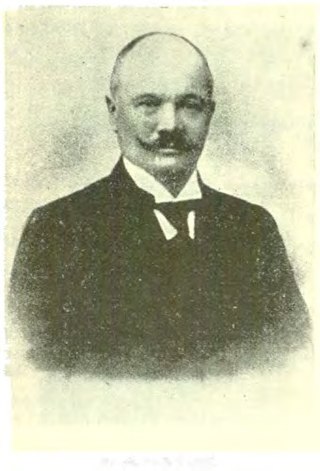 2
Ioan Șenchea a fost un avocat, fruntaș local al Partidului Național Român din comitatul Făgăraș.
2
Ioan Șenchea a fost un avocat, fruntaș local al Partidului Național Român din comitatul Făgăraș.
Nicolae Nicoleanu
 2
Nicolae Nicoleanu was an Imperial Austrian-born Romanian poet.
2
Nicolae Nicoleanu was an Imperial Austrian-born Romanian poet.
Mihail Jora
 2
Mihail Jora was a Romanian composer, pianist, and conductor.
Jora studied in Leipzig with Robert Teichmüller. From 1929 to 1962 he was a professor at the Bucharest Conservatoire. He worked from 1928...
2
Mihail Jora was a Romanian composer, pianist, and conductor.
Jora studied in Leipzig with Robert Teichmüller. From 1929 to 1962 he was a professor at the Bucharest Conservatoire. He worked from 1928...
Marcus Aurelius
 2
Marcus Aurelius Antoninus was Roman emperor from 161 to 180 and a Stoic philosopher. He was a member of the Nerva–Antonine dynasty, the last of the rulers later known as the Five Good Emperors and...
2
Marcus Aurelius Antoninus was Roman emperor from 161 to 180 and a Stoic philosopher. He was a member of the Nerva–Antonine dynasty, the last of the rulers later known as the Five Good Emperors and...
Zaharia Boiu
 2
Zaharia Boiu a fost un poet și publicist român, membru corespondent al Academiei Române (1890).
2
Zaharia Boiu a fost un poet și publicist român, membru corespondent al Academiei Române (1890).
Dimitrie Hârlescu
 2
Dimitrie Hârlescu, né à Fălticeni, dans le județ de Suceava, le 5 novembre 1872 et mort à Constanța, le 23 novembre 1925, est un peintre roumain.
2
Dimitrie Hârlescu, né à Fălticeni, dans le județ de Suceava, le 5 novembre 1872 et mort à Constanța, le 23 novembre 1925, est un peintre roumain.
Eugen Jebeleanu
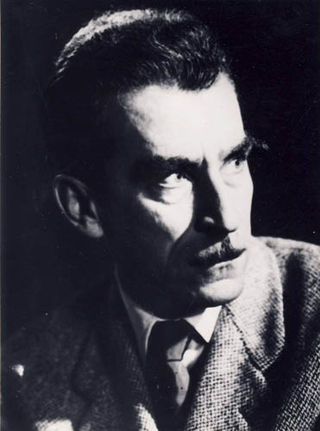 2
Eugen Jebeleanu was a Romanian poet, translator, journalist, and scholar.
2
Eugen Jebeleanu was a Romanian poet, translator, journalist, and scholar.
Gib Mihăescu
 2
Gib I. Mihăescu was a Romanian prose writer and playwright.
2
Gib I. Mihăescu was a Romanian prose writer and playwright.
Teodor Burada
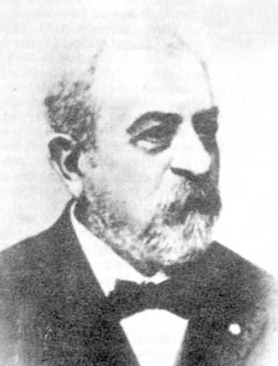 2
Teodor T. Burada was a Romanian folklorist, ethnographer and musicologist and member of the Romanian Academy.
2
Teodor T. Burada was a Romanian folklorist, ethnographer and musicologist and member of the Romanian Academy.
Tony Bulandra
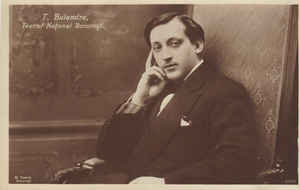 2
Tony Bulandra a fost un renumit actor român, elev al lui Constantin I. Nottara. Tony Bulandra a fost căsătorit cu Lucia Sturdza-Bulandra.
2
Tony Bulandra a fost un renumit actor român, elev al lui Constantin I. Nottara. Tony Bulandra a fost căsătorit cu Lucia Sturdza-Bulandra.
Timotei Popovici
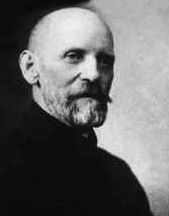 2
Timotei Popovici a fost un preot, pedagog și compozitor român.
2
Timotei Popovici a fost un preot, pedagog și compozitor român.
Gheorghe Caranfil
 2
Gheorghe Caranfil was a Romanian fencer. He competed in the individual and team foil and épée events at the 1928 Summer Olympics.
2
Gheorghe Caranfil was a Romanian fencer. He competed in the individual and team foil and épée events at the 1928 Summer Olympics.
Sigismund Toduță
 2
Sigismund Toduță was a Romanian composer, musicologist, and professor.
2
Sigismund Toduță was a Romanian composer, musicologist, and professor.
Gheorghe Tătărescu
 2
Gheorghe I. Tătărescu was a Romanian politician who served twice as Prime Minister of Romania, three times as Minister of Foreign Affairs and once as Minister of War (1934). Representing the "young...
2
Gheorghe I. Tătărescu was a Romanian politician who served twice as Prime Minister of Romania, three times as Minister of Foreign Affairs and once as Minister of War (1934). Representing the "young...
Mihály Vörösmarty
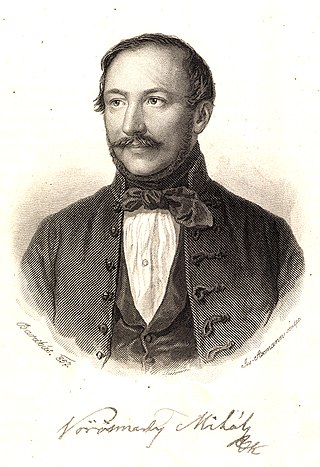 2
Mihály Vörösmarty was an important Hungarian poet and dramatist.
2
Mihály Vörösmarty was an important Hungarian poet and dramatist.
Johannes Caioni
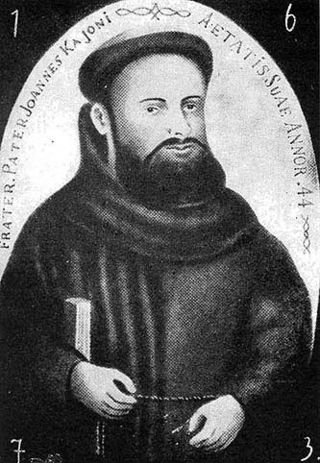 2
Johannes Caioni was a Transylvanian Franciscan friar and Roman Catholic priest, musician, folklorist, humanist, constructor and repairer of organs of Romanian origin.
2
Johannes Caioni was a Transylvanian Franciscan friar and Roman Catholic priest, musician, folklorist, humanist, constructor and repairer of organs of Romanian origin.
Nikolaus Lenau
 2
Nikolaus Lenau was the pen name of Nikolaus Franz Niembsch Edler von Strehlenau, a German-language Austrian poet.
2
Nikolaus Lenau was the pen name of Nikolaus Franz Niembsch Edler von Strehlenau, a German-language Austrian poet.
Filaret Barbu
 2
Filaret Barbu was a Romanian operetta composer.
2
Filaret Barbu was a Romanian operetta composer.
Georges Bizet
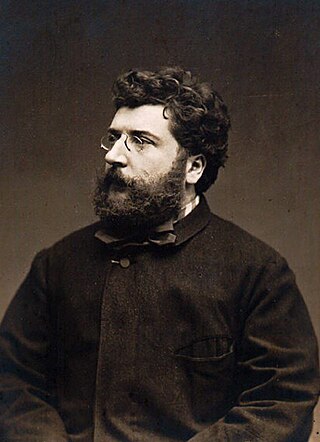 2
Georges Bizet was a French composer of the Romantic era. Best known for his operas in a career cut short by his early death, Bizet achieved few successes before his final work, Carmen, which has...
2
Georges Bizet was a French composer of the Romantic era. Best known for his operas in a career cut short by his early death, Bizet achieved few successes before his final work, Carmen, which has...
Constantin Diaconovici Loga
 2
Constantin Diaconovici Loga a fost un educator, pedagog și scriitor român. A urmat studiile gimnaziale în orașul Lugoj, pentru ca apoi să studieze Dreptul la Universitatea din Pesta. Întors de la...
2
Constantin Diaconovici Loga a fost un educator, pedagog și scriitor român. A urmat studiile gimnaziale în orașul Lugoj, pentru ca apoi să studieze Dreptul la Universitatea din Pesta. Întors de la...
Iancu Văcărescu
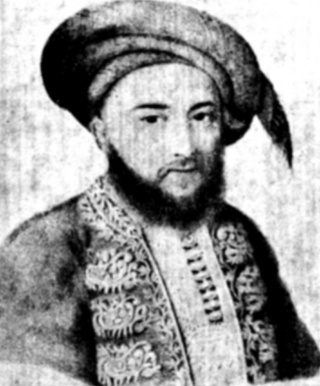 2
Iancu Văcărescu (1786–1863) was a Romanian Wallachian boyar and poet, member of the Văcărescu family.
2
Iancu Văcărescu (1786–1863) was a Romanian Wallachian boyar and poet, member of the Văcărescu family.
Augustin Bunea
Ștefan Furtună
 2
Ștefan Furtună a fost un soldat român în Războiul de Independență al României (1877-1878), decorat pentru bravură. A participat la Răscoala Țărănească din 1907. Este unul dintre țăranii împușcați de...
2
Ștefan Furtună a fost un soldat român în Războiul de Independență al României (1877-1878), decorat pentru bravură. A participat la Răscoala Țărănească din 1907. Este unul dintre țăranii împușcați de...
Aristide Demetriade
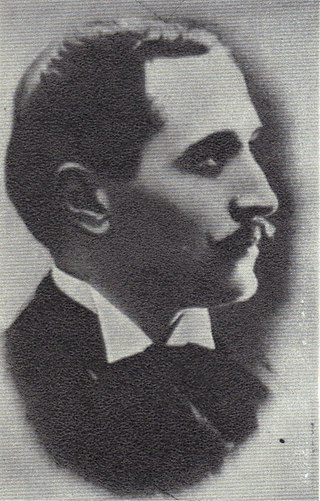 2
Aristide Demetriade a fost un actor român, elev al lui Ștefan Vellescu, precum și regizor de film. A jucat la Teatrul Național din București. Tragedian cu bogate resurse, Demetriade a interpretat cu...
2
Aristide Demetriade a fost un actor român, elev al lui Ștefan Vellescu, precum și regizor de film. A jucat la Teatrul Național din București. Tragedian cu bogate resurse, Demetriade a interpretat cu...
Ștefan Cicio Pop
 2
Ștefan Cicio Pop was a Romanian politician.
2
Ștefan Cicio Pop was a Romanian politician.
Constantin Brăiloiu
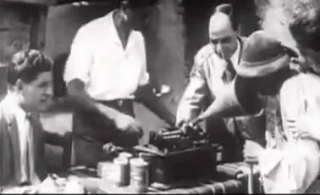 2
Constantin Brăiloiu was a Romanian composer and internationally known ethnomusicologist.
2
Constantin Brăiloiu was a Romanian composer and internationally known ethnomusicologist.
Henri Barbusse
 2
Henri Barbusse was a French novelist, short story writer, journalist, poet and political activist. He began his literary career in the 1890s as a Symbolist poet and continued as a neo-Naturalist...
2
Henri Barbusse was a French novelist, short story writer, journalist, poet and political activist. He began his literary career in the 1890s as a Symbolist poet and continued as a neo-Naturalist...
Nicolae Drăganu
 2
Nicolae Drăganu was an Austro-Hungarian-born Romanian linguist, philologist, and literary historian.
2
Nicolae Drăganu was an Austro-Hungarian-born Romanian linguist, philologist, and literary historian.
Hector
 2
In Greek mythology, Hector is a Trojan prince, and one of four sons to the King of Troy, he was a hero and the greatest warrior for Troy during the Trojan War. He is a major character in Homer's...
2
In Greek mythology, Hector is a Trojan prince, and one of four sons to the King of Troy, he was a hero and the greatest warrior for Troy during the Trojan War. He is a major character in Homer's...
Constantine the Great
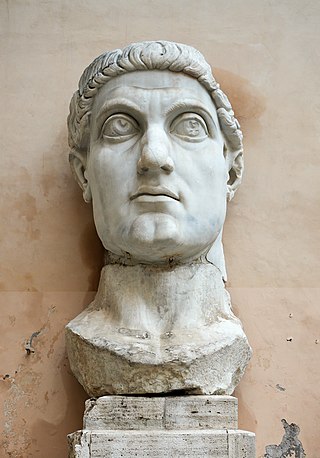 2
Constantine I, also known as Constantine the Great, was a Roman emperor from AD 306 to 337 and the first Roman emperor to convert to Christianity. He played a pivotal role in elevating the status of...
2
Constantine I, also known as Constantine the Great, was a Roman emperor from AD 306 to 337 and the first Roman emperor to convert to Christianity. He played a pivotal role in elevating the status of...
George Ranetti
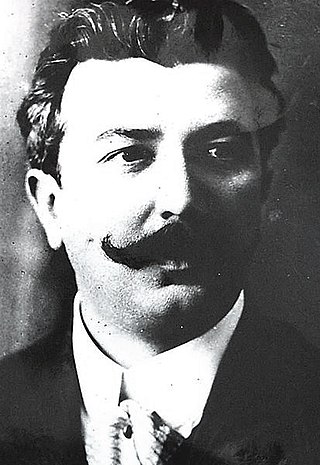 2
George or Gheorghe Ranetti, born George Ranete, was a Romanian poet, journalist and playwright, known as the founder and editor of Furnica magazine. A professional journalist from the late 1890s, he...
2
George or Gheorghe Ranetti, born George Ranete, was a Romanian poet, journalist and playwright, known as the founder and editor of Furnica magazine. A professional journalist from the late 1890s, he...
Ioan Mureșan
 2
Ioan Mureșan a fost un chirurg român, profesor universitar și șef al catedrei de chirurgie din cadrul Universității de Medicină Victor Babeș din Timișoara.
2
Ioan Mureșan a fost un chirurg român, profesor universitar și șef al catedrei de chirurgie din cadrul Universității de Medicină Victor Babeș din Timișoara.
Dimitrie Gusti
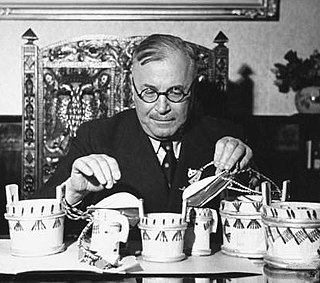 2
Dimitrie Gusti was a Romanian sociologist, ethnologist, historian, and voluntarist philosopher; a professor at the University of Iași and the University of Bucharest, he served as Romania's Minister...
2
Dimitrie Gusti was a Romanian sociologist, ethnologist, historian, and voluntarist philosopher; a professor at the University of Iași and the University of Bucharest, he served as Romania's Minister...
Cupid
 2
In classical mythology, Cupid is the god of desire, erotic love, attraction and affection. He is often portrayed as the son of the love goddess Venus and the god of war Mars. He is also known as...
2
In classical mythology, Cupid is the god of desire, erotic love, attraction and affection. He is often portrayed as the son of the love goddess Venus and the god of war Mars. He is also known as...
Nicolae Coculescu
 2
Nicolae C. Coculescu a fost un astronom român. A fost profesor de astronomie la Universitatea din București. În 1908 a înființat Observatorul Astronomic din București. Este cunoscut pentru studiile...
2
Nicolae C. Coculescu a fost un astronom român. A fost profesor de astronomie la Universitatea din București. În 1908 a înființat Observatorul Astronomic din București. Este cunoscut pentru studiile...
Sava Henția
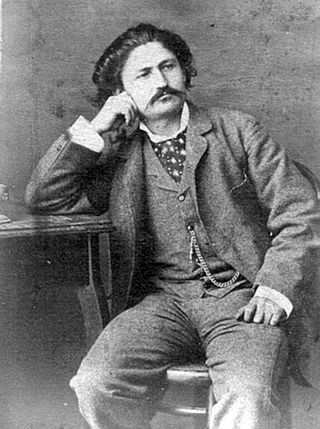 2
Sava Henția was an Imperial Austrian-born Romanian painter, decorator and illustrator.
2
Sava Henția was an Imperial Austrian-born Romanian painter, decorator and illustrator.
Ion Brezeanu
 2
Ion or Iancu Brezeanu was a Romanian stage actor.
2
Ion or Iancu Brezeanu was a Romanian stage actor.
Victor Brauner
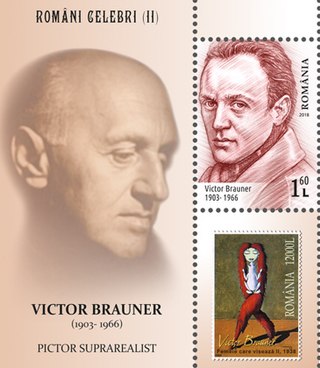 2
Victor Brauner was a Romanian painter and sculptor of the surrealist movement.
2
Victor Brauner was a Romanian painter and sculptor of the surrealist movement.
Zilot Românul
 2
Zilot Românul a fost un istoric, jurist, poet și cronicar român. A scris istorii în versuri și în proză ale Țării Românești din timpul lui Constantin Hangerli (1796) până la Răscoala lui Tudor din...
2
Zilot Românul a fost un istoric, jurist, poet și cronicar român. A scris istorii în versuri și în proză ale Țării Românești din timpul lui Constantin Hangerli (1796) până la Răscoala lui Tudor din...
Cicero
 2
Marcus Tullius Cicero was a Roman statesman, lawyer, scholar, philosopher, writer and Academic skeptic, who tried to uphold optimate principles during the political crises that led to the...
2
Marcus Tullius Cicero was a Roman statesman, lawyer, scholar, philosopher, writer and Academic skeptic, who tried to uphold optimate principles during the political crises that led to the...
Stephen I of Hungary
 2
Stephen I, also known as King Saint Stephen, was the last Grand Prince of the Hungarians between 997 and 1000 or 1001, and the first King of Hungary from 1000 or 1001, until his death in 1038. The...
2
Stephen I, also known as King Saint Stephen, was the last Grand Prince of the Hungarians between 997 and 1000 or 1001, and the first King of Hungary from 1000 or 1001, until his death in 1038. The...
Doina Cornea
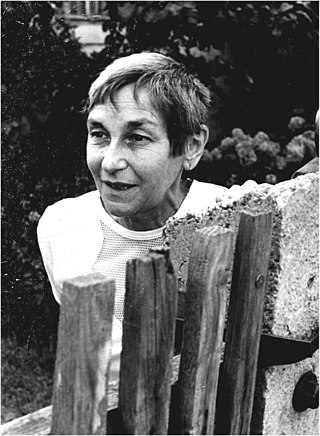 2
Doina Cornea was a Romanian human rights activist and French language professor. She was a dissident during the communist rule of Nicolae Ceaușescu.
2
Doina Cornea was a Romanian human rights activist and French language professor. She was a dissident during the communist rule of Nicolae Ceaușescu.
Antoni Gaudí
 2
Antoni Gaudí i Cornet was a Catalan architect and designer from Spain, known as the greatest exponent of Catalan Modernism. Gaudí's works have a highly individualized, sui generis style. Most are...
2
Antoni Gaudí i Cornet was a Catalan architect and designer from Spain, known as the greatest exponent of Catalan Modernism. Gaudí's works have a highly individualized, sui generis style. Most are...
Simion Balint
 2
Simion Balint a fost unul dintre revoluționarii români care a luptat alături de Avram Iancu, în calitate de prefect al Legiunii Arieșului. A fost descendent al unei familii nobiliare de preoți din...
2
Simion Balint a fost unul dintre revoluționarii români care a luptat alături de Avram Iancu, în calitate de prefect al Legiunii Arieșului. A fost descendent al unei familii nobiliare de preoți din...
George Stephenson
 2
George Stephenson was an English civil engineer and mechanical engineer during the Industrial Revolution. Renowned as the "Father of Railways", Stephenson was considered by the Victorians as a great...
2
George Stephenson was an English civil engineer and mechanical engineer during the Industrial Revolution. Renowned as the "Father of Railways", Stephenson was considered by the Victorians as a great...
Archimedes
 2
Archimedes of Syracuse was an Ancient Greek mathematician, physicist, engineer, astronomer, and inventor from the ancient city of Syracuse in Sicily. Although few details of his life are known, he is...
2
Archimedes of Syracuse was an Ancient Greek mathematician, physicist, engineer, astronomer, and inventor from the ancient city of Syracuse in Sicily. Although few details of his life are known, he is...
Anatole France
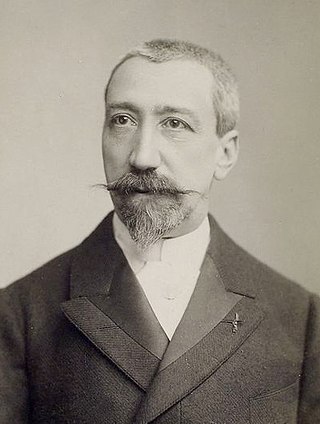 2
Anatole France was a French poet, journalist, and novelist with several best-sellers. Ironic and skeptical, he was considered in his day the ideal French man of letters. He was a member of the...
2
Anatole France was a French poet, journalist, and novelist with several best-sellers. Ironic and skeptical, he was considered in his day the ideal French man of letters. He was a member of the...
Septimius Severus
 2
Lucius Septimius Severus was a Roman politician who served as emperor from 193 to 211. He was born in Leptis Magna in the Roman province of Africa. As a young man he advanced through the customary...
2
Lucius Septimius Severus was a Roman politician who served as emperor from 193 to 211. He was born in Leptis Magna in the Roman province of Africa. As a young man he advanced through the customary...
Jean Bart
 2
Jean Bart was a Flemish naval commander and privateer.
2
Jean Bart was a Flemish naval commander and privateer.
Aaron the Tyrant
 2
Aaron the Tyrant or Aron Vodă, sometimes credited as Aron Emanoil or Emanuel Aaron, was twice the Prince of Moldavia: between September 1591 and June 1592, and October 1592 to May 3 or 4, 1595. He...
2
Aaron the Tyrant or Aron Vodă, sometimes credited as Aron Emanoil or Emanuel Aaron, was twice the Prince of Moldavia: between September 1591 and June 1592, and October 1592 to May 3 or 4, 1595. He...
Eugène Ionesco
 2
Eugène Ionesco was a Romanian-French playwright who wrote mostly in French, and was one of the foremost figures of the French avant-garde theatre in the 20th century. Ionesco instigated a revolution...
2
Eugène Ionesco was a Romanian-French playwright who wrote mostly in French, and was one of the foremost figures of the French avant-garde theatre in the 20th century. Ionesco instigated a revolution...
Ioan Popovici-Bănățeanul
 2
Ioan Popovici-Bănățeanul was an Austro-Hungarian-born Romanian prose writer and poet.
2
Ioan Popovici-Bănățeanul was an Austro-Hungarian-born Romanian prose writer and poet.
Dimitrie Paciurea
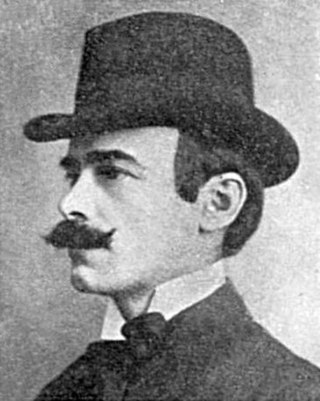 2
Dimitrie Paciurea was a Romanian sculptor. His representational and symbolic style contrasts strongly to the more abstract style of his contemporary and co-national Constantin Brâncuși.
2
Dimitrie Paciurea was a Romanian sculptor. His representational and symbolic style contrasts strongly to the more abstract style of his contemporary and co-national Constantin Brâncuși.
Nicolae Jiga
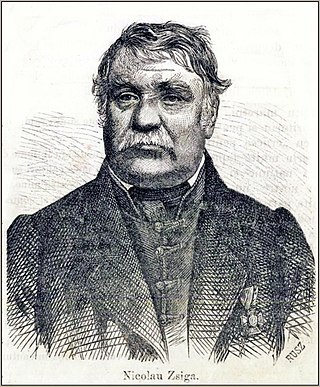 2
Nicolae Jiga bol rumunský obchodník a filantrop. Zaslúžil sa najmä založením nadácie Zsigiană, ktorá finančne podporovala štúdium chudobných rumunských študentov.
2
Nicolae Jiga bol rumunský obchodník a filantrop. Zaslúžil sa najmä založením nadácie Zsigiană, ktorá finančne podporovala štúdium chudobných rumunských študentov.
Theodorus of Tabennese
 2
Theodorus of Tabennese, also known as Abba Theodorus and Theodore the Sanctified was the spiritual successor to Pachomius and played a crucial role in preventing the first Christian cenobitic...
2
Theodorus of Tabennese, also known as Abba Theodorus and Theodore the Sanctified was the spiritual successor to Pachomius and played a crucial role in preventing the first Christian cenobitic...
Ionel Fernic
 2
Ionel Fernic was a Romanian composer, aviator, writer, and one of the first Romanian parachutists.
2
Ionel Fernic was a Romanian composer, aviator, writer, and one of the first Romanian parachutists.
Bogdan Amaru
 2
Bogdan Amaru este pseudonimul literar al scriitorului român Alexandru Pârâianu.
2
Bogdan Amaru este pseudonimul literar al scriitorului român Alexandru Pârâianu.
Ion Vasilescu Sr.
 2
Ion Vasilescu Sr. a fost un inginer, aviator militar, inventator, om de afaceri și colecționar de artă român, naturalizat în Ungaria. Este cunoscut pe plan internațional ca mecena al artelor plastice...
2
Ion Vasilescu Sr. a fost un inginer, aviator militar, inventator, om de afaceri și colecționar de artă român, naturalizat în Ungaria. Este cunoscut pe plan internațional ca mecena al artelor plastice...
Ștefan Augustin Doinaș
 2
Ștefan Augustin Doinaș was a Romanian Neoclassical poet of the Communist era. He wrote 23 books of poetry, as well as children's books, essay collections, and a novel.
2
Ștefan Augustin Doinaș was a Romanian Neoclassical poet of the Communist era. He wrote 23 books of poetry, as well as children's books, essay collections, and a novel.
Ioan S. Nenițescu
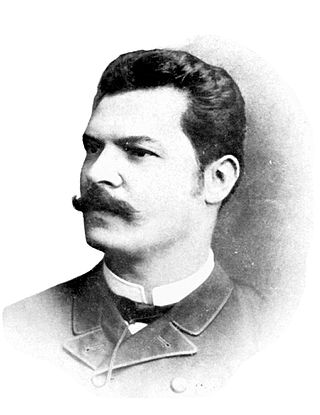 2
Ioan S. Nenițescu was a Romanian poet and playwright.
2
Ioan S. Nenițescu was a Romanian poet and playwright.
Pompiliu Eliade
 2
Pompiliu Eliade was a Romanian literary critic and historian.
2
Pompiliu Eliade was a Romanian literary critic and historian.
Pompey
 2
Gnaeus Pompeius Magnus, known in English as Pompey or Pompey the Great, was a general and statesman of the Roman Republic. He played a significant role in the transformation of Rome from republic to...
2
Gnaeus Pompeius Magnus, known in English as Pompey or Pompey the Great, was a general and statesman of the Roman Republic. He played a significant role in the transformation of Rome from republic to...
Voltaire
 2
François-Marie Arouet, known by his nom de plume M. de Voltaire, was a French Enlightenment writer, philosopher (philosophe), satirist, and historian. Famous for his wit and his criticism of...
2
François-Marie Arouet, known by his nom de plume M. de Voltaire, was a French Enlightenment writer, philosopher (philosophe), satirist, and historian. Famous for his wit and his criticism of...
Nicolae Istrati
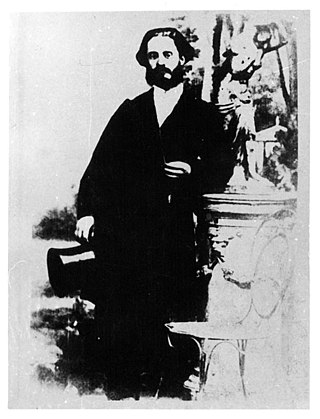 2
Nicolae Istrati a fost un scriitor și om politic moldovean, care a îndeplinit funcția de ministru în Moldova în timpul caimăcămiei lui Nicolae Vogoride. A fost principalul ideolog al separatiștilor...
2
Nicolae Istrati a fost un scriitor și om politic moldovean, care a îndeplinit funcția de ministru în Moldova în timpul caimăcămiei lui Nicolae Vogoride. A fost principalul ideolog al separatiștilor...
Roman I of Moldavia
 2
Roman I was Voivode of Moldavia from December 1391 to March 1394. He was the second son of Costea and Margareta Muşata the daughter of the first ruler of Moldavia, Bogdan I and the founder Muşatin...
2
Roman I was Voivode of Moldavia from December 1391 to March 1394. He was the second son of Costea and Margareta Muşata the daughter of the first ruler of Moldavia, Bogdan I and the founder Muşatin...
Visarion Roman
 2
Visarion Roman a fost un publicist, om politic, membru corespondent al Academiei Române. Este fondatorul Băncii Albina din Sibiu, pe care a condus-o până în 1884.
2
Visarion Roman a fost un publicist, om politic, membru corespondent al Academiei Române. Este fondatorul Băncii Albina din Sibiu, pe care a condus-o până în 1884.
Constantin Cristescu
 2
Constantin Cristescu was a Romanian lieutenant general during World War I, and Chief of Staff of the Romanian Army.
2
Constantin Cristescu was a Romanian lieutenant general during World War I, and Chief of Staff of the Romanian Army.
Alexandru Ivasiuc
 2
Alexandru "Sașa" Ivasiuc was a Romanian novelist.
2
Alexandru "Sașa" Ivasiuc was a Romanian novelist.
Gheorghe Ștefan
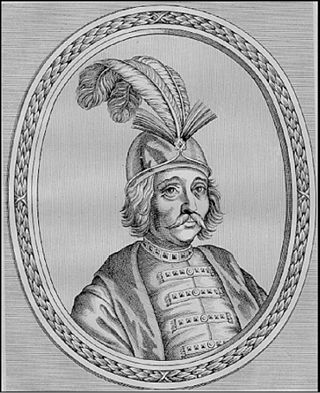 2
Gheorghe Ștefan was Voivode (Prince) of Moldavia between 13 April and 8 May 1653, and again from 16 July 1653 to 13 March 1658; he was the son of boyar Dumitrașcu Ceaur; Gheorghe Ștefan was...
2
Gheorghe Ștefan was Voivode (Prince) of Moldavia between 13 April and 8 May 1653, and again from 16 July 1653 to 13 March 1658; he was the son of boyar Dumitrașcu Ceaur; Gheorghe Ștefan was...
Elena Farago
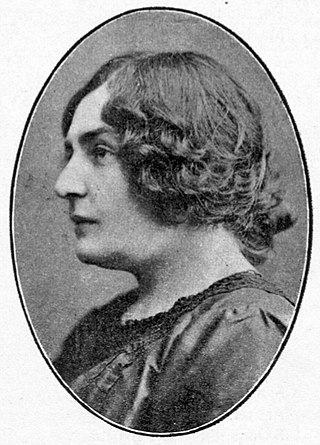 2
Elena Farago was a Romanian poet and children's author. She also translated works by Ibsen, Nietzsche, Maeterlinck and numerous others into Romanian.
2
Elena Farago was a Romanian poet and children's author. She also translated works by Ibsen, Nietzsche, Maeterlinck and numerous others into Romanian.
George Ghica
 2
George Ghica founder of the Ghica family, was Prince of Moldavia in 1658–1659 and Prince of Wallachia in 1659–1660.
2
George Ghica founder of the Ghica family, was Prince of Moldavia in 1658–1659 and Prince of Wallachia in 1659–1660.
Pamfil Șeicaru
 2
Pamfil Șeicaru a fost un ziarist român, director al ziarului „Curentul”, cotidian românesc combativ în perioada dintre cele două războaie mondiale. Este considerat a fi cel mai mare gazetar dintre...
2
Pamfil Șeicaru a fost un ziarist român, director al ziarului „Curentul”, cotidian românesc combativ în perioada dintre cele două războaie mondiale. Este considerat a fi cel mai mare gazetar dintre...
Herodotus
 2
Herodotus was a Greek historian and geographer from the Greek city of Halicarnassus, part of the Persian Empire and a later citizen of Thurii in modern Calabria, Italy. He is known for having written...
2
Herodotus was a Greek historian and geographer from the Greek city of Halicarnassus, part of the Persian Empire and a later citizen of Thurii in modern Calabria, Italy. He is known for having written...
Sorin Titel
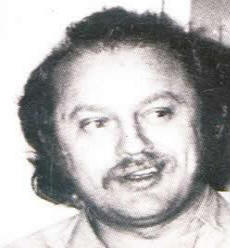 2
Sorin Titel a fost un eseist, romancier și scriitor român contemporan.
2
Sorin Titel a fost un eseist, romancier și scriitor român contemporan.
Leonard Mociulschi
 2
Leonard Mociulschi was a Romanian Major General of Polish origin during World War II.
2
Leonard Mociulschi was a Romanian Major General of Polish origin during World War II.
Iacob Zadik
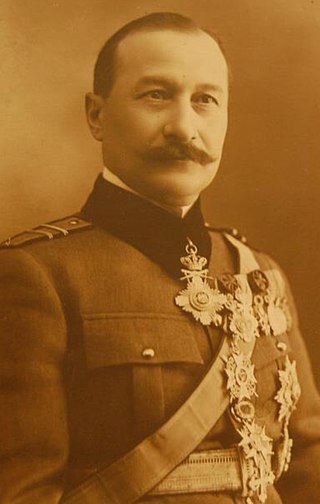 2
Iacob Zadik was a Romanian artillery and infantry commander, who rose to the rank of divisional general. An assimilated ethnic Armenian, he prepared for a career in the Romanian Land Forces beginning...
2
Iacob Zadik was a Romanian artillery and infantry commander, who rose to the rank of divisional general. An assimilated ethnic Armenian, he prepared for a career in the Romanian Land Forces beginning...
Constantin Silvestri
 2
Constantin-Nicolae Silvestri was a Romanian conductor and composer.
2
Constantin-Nicolae Silvestri was a Romanian conductor and composer.
Anișoara Odeanu
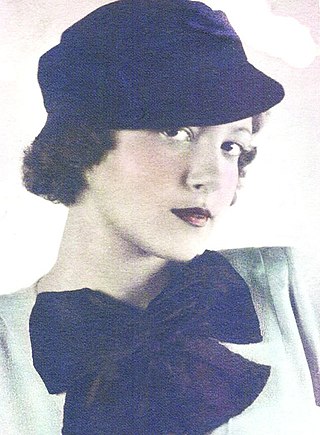 2
Anișoara Odeanu a fost o poetă, prozatoare și jurnalistă română.
2
Anișoara Odeanu a fost o poetă, prozatoare și jurnalistă română.
V. A. Urechia
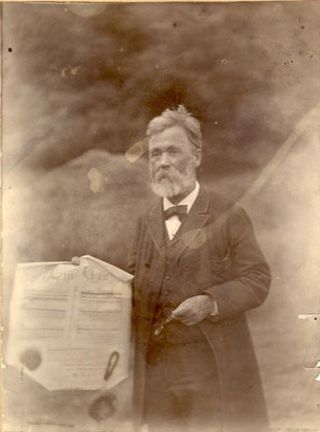 2
V. A. Urechia was a Moldavian, later Romanian historian, Romantic author of historical fiction and plays, academic and politician. The author of Romanian history syntheses, a noted bibliographer,...
2
V. A. Urechia was a Moldavian, later Romanian historian, Romantic author of historical fiction and plays, academic and politician. The author of Romanian history syntheses, a noted bibliographer,...
Ștefan Petică
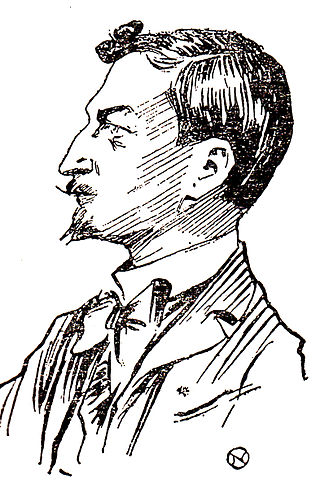 2
Ștefan Petică was a Romanian Symbolist poet, prose writer, playwright, journalist, and socialist activist. Born in the countryside of Tecuci, he displayed a voracious appetite for literature and...
2
Ștefan Petică was a Romanian Symbolist poet, prose writer, playwright, journalist, and socialist activist. Born in the countryside of Tecuci, he displayed a voracious appetite for literature and...
Silviu Dragomir
 2
Silviu Dragomir a fost un academician român, istoric, om politic, membru titular (1928) al Academiei Române.
2
Silviu Dragomir a fost un academician român, istoric, om politic, membru titular (1928) al Academiei Române.
Mircea Popa (dirijor)
 2
Mircea Popa a fost un dirijor și compozitor român.
2
Mircea Popa a fost un dirijor și compozitor român.
Gheorghe Gh. Longinescu
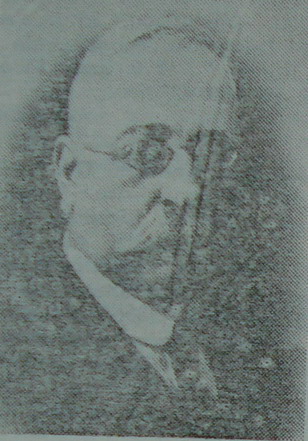 2
Gheorghe Gh. Longinescu a fost un chimist și profesor universitar român, membru de onoare al Academiei Române.
2
Gheorghe Gh. Longinescu a fost un chimist și profesor universitar român, membru de onoare al Academiei Române.
Ioan Roman (preot, n. 1888)
 2
Ioan Roman a fost un deputat în Marea Adunare Națională de la Alba Iulia, organismul legislativ reprezentativ al „tuturor românilor din Transilvania, Banat și Țara Ungurească”, cel care a adoptat...
2
Ioan Roman a fost un deputat în Marea Adunare Națională de la Alba Iulia, organismul legislativ reprezentativ al „tuturor românilor din Transilvania, Banat și Țara Ungurească”, cel care a adoptat...
Moise Groza
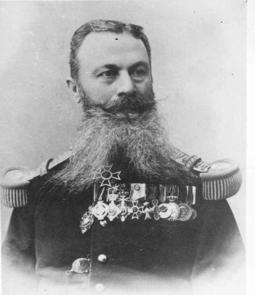 2
Moise Groza a fost un general român.
2
Moise Groza a fost un general român.
Grigore Moisil
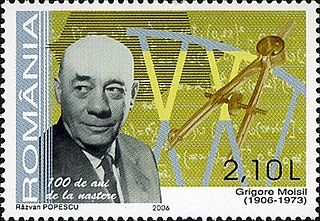 2
Grigore Constantin Moisil was a Romanian mathematician, computer pioneer, and titular member of the Romanian Academy. His research was mainly in the fields of mathematical logic, algebraic logic,...
2
Grigore Constantin Moisil was a Romanian mathematician, computer pioneer, and titular member of the Romanian Academy. His research was mainly in the fields of mathematical logic, algebraic logic,...
Pintea the Brave
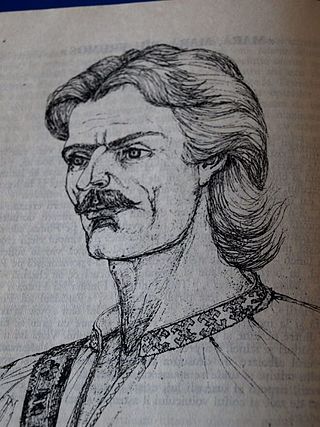 2
Grigore Pintea, aka Pintea the Brave (Hungarian: Pintye Vitéz; February 25, 1670 in Hollómező, Principality of Transylvania – August 14, 1703 in Nagybánya, Kingdom of Hungary, was a famous heroic...
2
Grigore Pintea, aka Pintea the Brave (Hungarian: Pintye Vitéz; February 25, 1670 in Hollómező, Principality of Transylvania – August 14, 1703 in Nagybánya, Kingdom of Hungary, was a famous heroic...
Emil Rebreanu
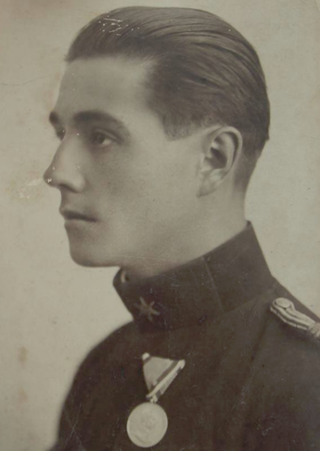 2
Emil Rebreanu was an Austro-Hungarian Romanian military officer executed during World War I. The protagonist in Forest of the Hanged, a 1922 novel by his brother Liviu Rebreanu, is influenced by his...
2
Emil Rebreanu was an Austro-Hungarian Romanian military officer executed during World War I. The protagonist in Forest of the Hanged, a 1922 novel by his brother Liviu Rebreanu, is influenced by his...
Elisa Leonida Zamfirescu
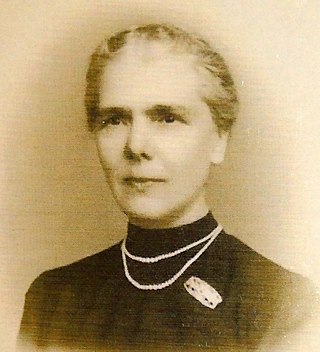 2
Elisa Leonida Zamfirescu was a Romanian engineer who was one of the first woman to obtain a degree in engineering. She was born in the Romanian town of Galați but qualified in Berlin. During World...
2
Elisa Leonida Zamfirescu was a Romanian engineer who was one of the first woman to obtain a degree in engineering. She was born in the Romanian town of Galați but qualified in Berlin. During World...
Gheorghe Ivănescu
 2
Gheorghe Ivănescu a fost un lingvist și filolog, profesor universitar român.
2
Gheorghe Ivănescu a fost un lingvist și filolog, profesor universitar român.
Michelangelo
 2
Michelangelo di Lodovico Buonarroti Simoni, known mononymously as Michelangelo, was an Italian sculptor, painter, architect, and poet of the High Renaissance. Born in the Republic of Florence, his...
2
Michelangelo di Lodovico Buonarroti Simoni, known mononymously as Michelangelo, was an Italian sculptor, painter, architect, and poet of the High Renaissance. Born in the Republic of Florence, his...
Titian
 2
Tiziano Vecelli or Vecellio, Latinized as Titianus, hence known in English as Titian, was an Italian (Venetian) Renaissance painter of Lombard origin, considered the most important member of the...
2
Tiziano Vecelli or Vecellio, Latinized as Titianus, hence known in English as Titian, was an Italian (Venetian) Renaissance painter of Lombard origin, considered the most important member of the...
Eugeniu Vârtejanu
 2
Eugeniu Vârtejanu, cunoscut și ca Eugen Vârtejanu, a fost un general român care a luptat în cel de-al Doilea Război Mondial.
2
Eugeniu Vârtejanu, cunoscut și ca Eugen Vârtejanu, a fost un general român care a luptat în cel de-al Doilea Război Mondial.
Simion Ștefan
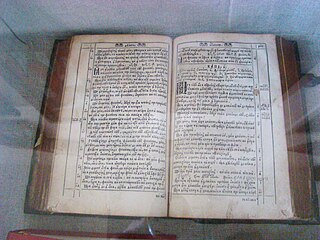 2
Simion Ștefan a fost un cărturar și traducător român, mitropolit al Ardealului.
2
Simion Ștefan a fost un cărturar și traducător român, mitropolit al Ardealului.
Ioan Buteanu
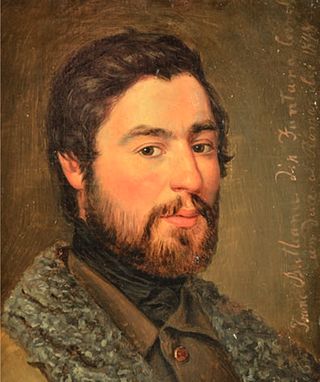 2
Ioan Buteanu was a leader of the Transylvanian Romanian Revolutionaries in 1848 and a prefect of Zaránd County between 1848 and 1849.
2
Ioan Buteanu was a leader of the Transylvanian Romanian Revolutionaries in 1848 and a prefect of Zaránd County between 1848 and 1849.
Constantin Mușat
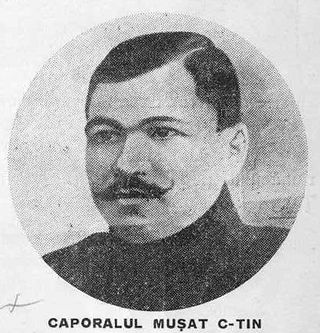 2
Constantin Mușat a fost un militar român, erou de război din timpul Primului Război Mondial, căzut pe câmpul de luptă în a treia bătălie de la Oituz.
2
Constantin Mușat a fost un militar român, erou de război din timpul Primului Război Mondial, căzut pe câmpul de luptă în a treia bătălie de la Oituz.
Eudoxiu Hurmuzachi
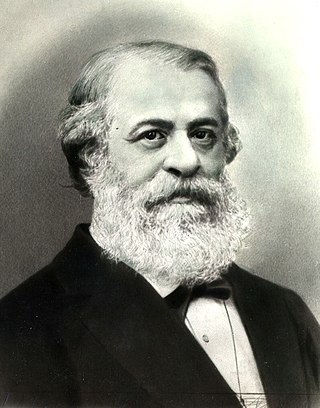 2
Eudoxiu Hurmuzachi was a Romanian historian and politician who served as Landeshauptmann of the Duchy of Bucovina.
2
Eudoxiu Hurmuzachi was a Romanian historian and politician who served as Landeshauptmann of the Duchy of Bucovina.
Aurel Vlad
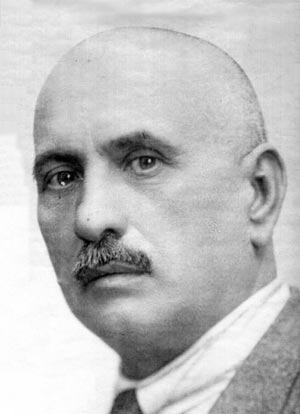 2
Aurel A. Vlad a fost avocat, doctor în drept, promotor al Unirii din 1918, membru în Consiliul Dirigent, membru al Partidului Național Român și apoi fondator și fruntaș al P.N.Ț., a fost ministru de...
2
Aurel A. Vlad a fost avocat, doctor în drept, promotor al Unirii din 1918, membru în Consiliul Dirigent, membru al Partidului Național Român și apoi fondator și fruntaș al P.N.Ț., a fost ministru de...
Menumorut
 2
Menumorut or Menumorout was the ruler of the lands between the rivers Mureș, Someș and Tisza at the time of the Hungarian conquest of the Carpathian Basin around 900, according to the Gesta...
2
Menumorut or Menumorout was the ruler of the lands between the rivers Mureș, Someș and Tisza at the time of the Hungarian conquest of the Carpathian Basin around 900, according to the Gesta...
Julius Caesar
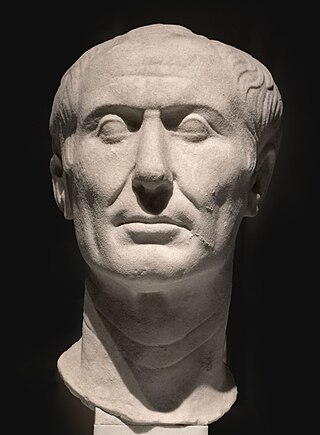 2
Gaius Julius Caesar was a Roman general and statesman. A member of the First Triumvirate, Caesar led the Roman armies in the Gallic Wars before defeating his political rival Pompey in a civil war,...
2
Gaius Julius Caesar was a Roman general and statesman. A member of the First Triumvirate, Caesar led the Roman armies in the Gallic Wars before defeating his political rival Pompey in a civil war,...
Ion Barbu
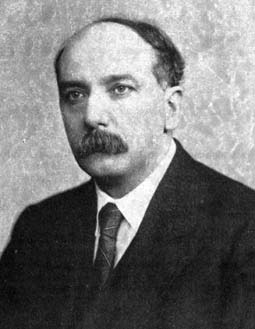 2
Ion Barbu was a Romanian mathematician and poet. His name is associated with the Mathematics Subject Classification number 51C05, which is a major posthumous recognition reserved only to pioneers of...
2
Ion Barbu was a Romanian mathematician and poet. His name is associated with the Mathematics Subject Classification number 51C05, which is a major posthumous recognition reserved only to pioneers of...
Duiliu Marcu
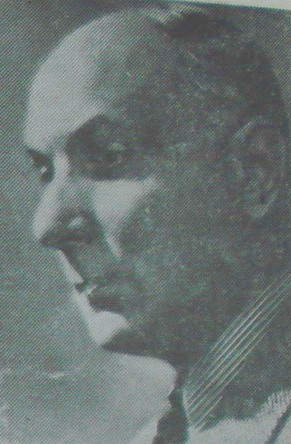 2
Duiliu Marcu was a Romanian architect, one of the most well known and prolific of the interwar period. With a career spanning from 1912 to 1966, he is said to have designed 150 public and private...
2
Duiliu Marcu was a Romanian architect, one of the most well known and prolific of the interwar period. With a career spanning from 1912 to 1966, he is said to have designed 150 public and private...
Constantin Iotzu
 2
Constantin Iotzu a fost un arhitect român de origine aromână. Este unul din reprezentanți semnificativi ai stilului arhitectural al neoromânescului.
2
Constantin Iotzu a fost un arhitect român de origine aromână. Este unul din reprezentanți semnificativi ai stilului arhitectural al neoromânescului.
Nicolae Bănescu
 2
Nicolae P. Bănescu was a Romanian historian, elected a titular member of the Romanian Academy in 1936.
2
Nicolae P. Bănescu was a Romanian historian, elected a titular member of the Romanian Academy in 1936.
Jules Verne
 2
Jules Gabriel Verne was a French novelist, poet, and playwright. His collaboration with the publisher Pierre-Jules Hetzel led to the creation of the Voyages extraordinaires, a series of bestselling...
2
Jules Gabriel Verne was a French novelist, poet, and playwright. His collaboration with the publisher Pierre-Jules Hetzel led to the creation of the Voyages extraordinaires, a series of bestselling...
Caius Iacob
 2
Caius Iacob was a Romanian mathematician, professor at the University of Bucharest, and titular member of the Romanian Academy. After the fall of communism in 1989, he was elected to the Senate of...
2
Caius Iacob was a Romanian mathematician, professor at the University of Bucharest, and titular member of the Romanian Academy. After the fall of communism in 1989, he was elected to the Senate of...
Tristan Tzara
 2
Tristan Tzara was a Romanian avant-garde poet, essayist and performance artist. Also active as a journalist, playwright, literary and art critic, composer and film director, he was known best for...
2
Tristan Tzara was a Romanian avant-garde poet, essayist and performance artist. Also active as a journalist, playwright, literary and art critic, composer and film director, he was known best for...
Paul Constantinescu
 2
Paul Constantinescu was a Romanian composer. Two of his main influences are Romanian folk music and Byzantine chant, both of which he used in his teaching. One of his students was composer Margareta...
2
Paul Constantinescu was a Romanian composer. Two of his main influences are Romanian folk music and Byzantine chant, both of which he used in his teaching. One of his students was composer Margareta...
Ion Românu
 2
Ion Românu a fost un muzician, interpret (vioară) și dirijor, director al Filarmonicii „Banatul” din Timișoara în perioada 1957–1979.
2
Ion Românu a fost un muzician, interpret (vioară) și dirijor, director al Filarmonicii „Banatul” din Timișoara în perioada 1957–1979.
Ioan Ciordaș
 2
Ioan Ciordaș was an Austro-Hungarian-born Romanian lawyer and activist.
2
Ioan Ciordaș was an Austro-Hungarian-born Romanian lawyer and activist.
Partenie Cosma (om politic)
 2
Partenie Cosma a fost un om politic român, deputat în Dieta de la Budapesta, senator și director al Băncii „Albina” din Sibiu.
2
Partenie Cosma a fost un om politic român, deputat în Dieta de la Budapesta, senator și director al Băncii „Albina” din Sibiu.
William Shakespeare
 2
William Shakespeare was an English playwright, poet, and actor. He is widely regarded as the greatest writer in the English language and the world's pre-eminent dramatist. He is often called...
2
William Shakespeare was an English playwright, poet, and actor. He is widely regarded as the greatest writer in the English language and the world's pre-eminent dramatist. He is often called...
Radu Tudoran
 2
Radu Tudoran was a popular Romanian novelist.
2
Radu Tudoran was a popular Romanian novelist.
Blaise Pascal
 2
Blaise Pascal was a French mathematician, physicist, inventor, philosopher, and Catholic writer.
2
Blaise Pascal was a French mathematician, physicist, inventor, philosopher, and Catholic writer.
Pius Brânzeu
 2
Pius Brânzeu a fost un medic român, membru corespondent al Academiei Române din 1974 și membru titular activ din 22 ianuarie 1990.
2
Pius Brânzeu a fost un medic român, membru corespondent al Academiei Române din 1974 și membru titular activ din 22 ianuarie 1990.
Alma Cornea-Ionescu
 2
Alma Cornea-Ionescu a fost o compozitoare, pianistă, profesoară și critic muzical din România.
2
Alma Cornea-Ionescu a fost o compozitoare, pianistă, profesoară și critic muzical din România.
Károly Brocky
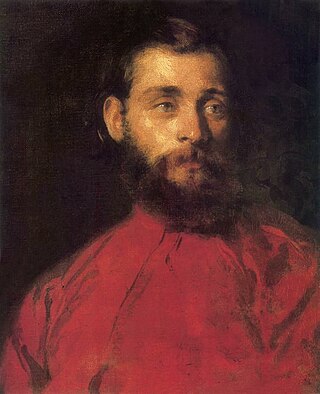 2
Károly Brocky, or Charles Brocky was a Hungarian painter.
2
Károly Brocky, or Charles Brocky was a Hungarian painter.
Vasile Nicolescu
 2
Vasile Nicolescu a fost un poet, eseist și traducător român.
2
Vasile Nicolescu a fost un poet, eseist și traducător român.